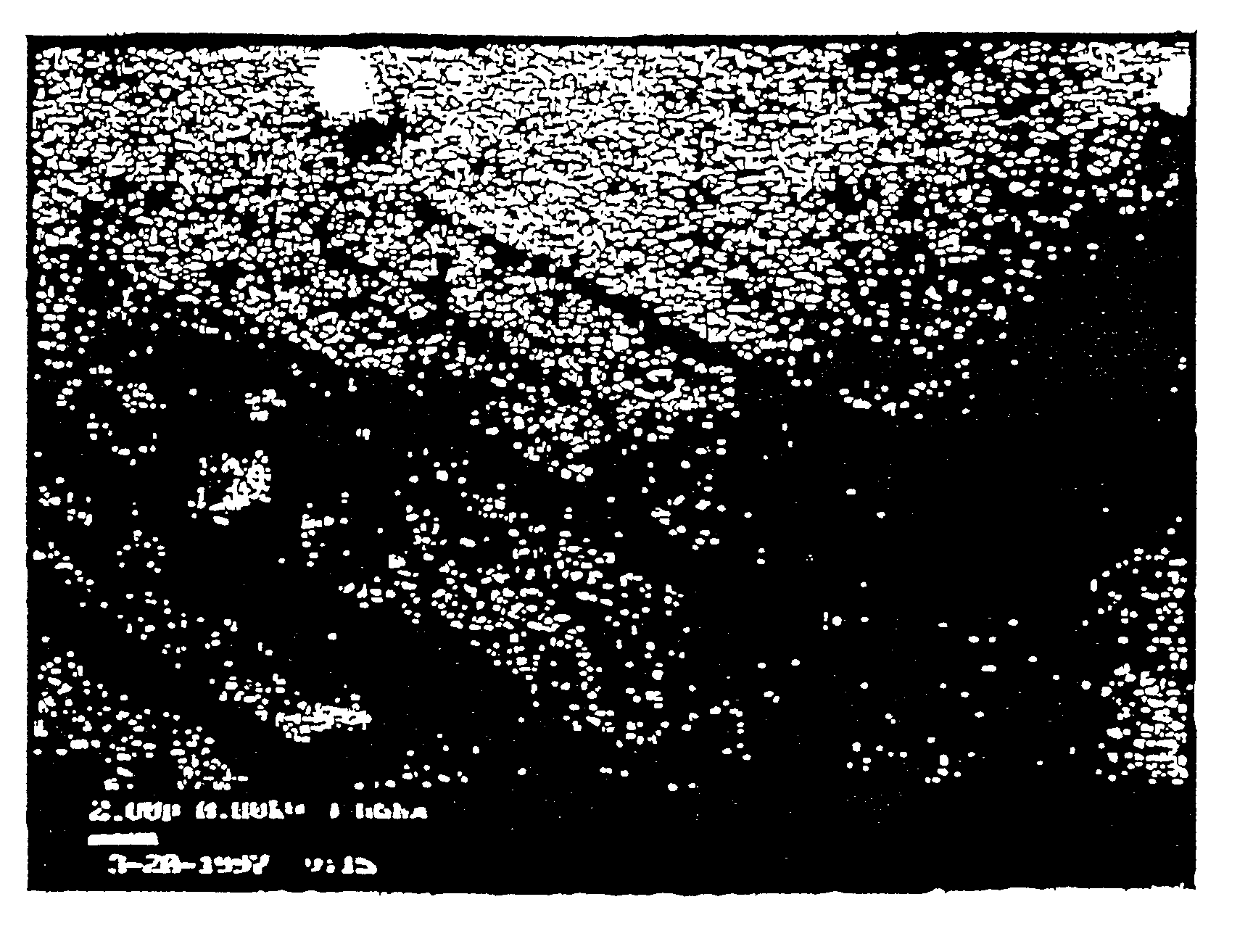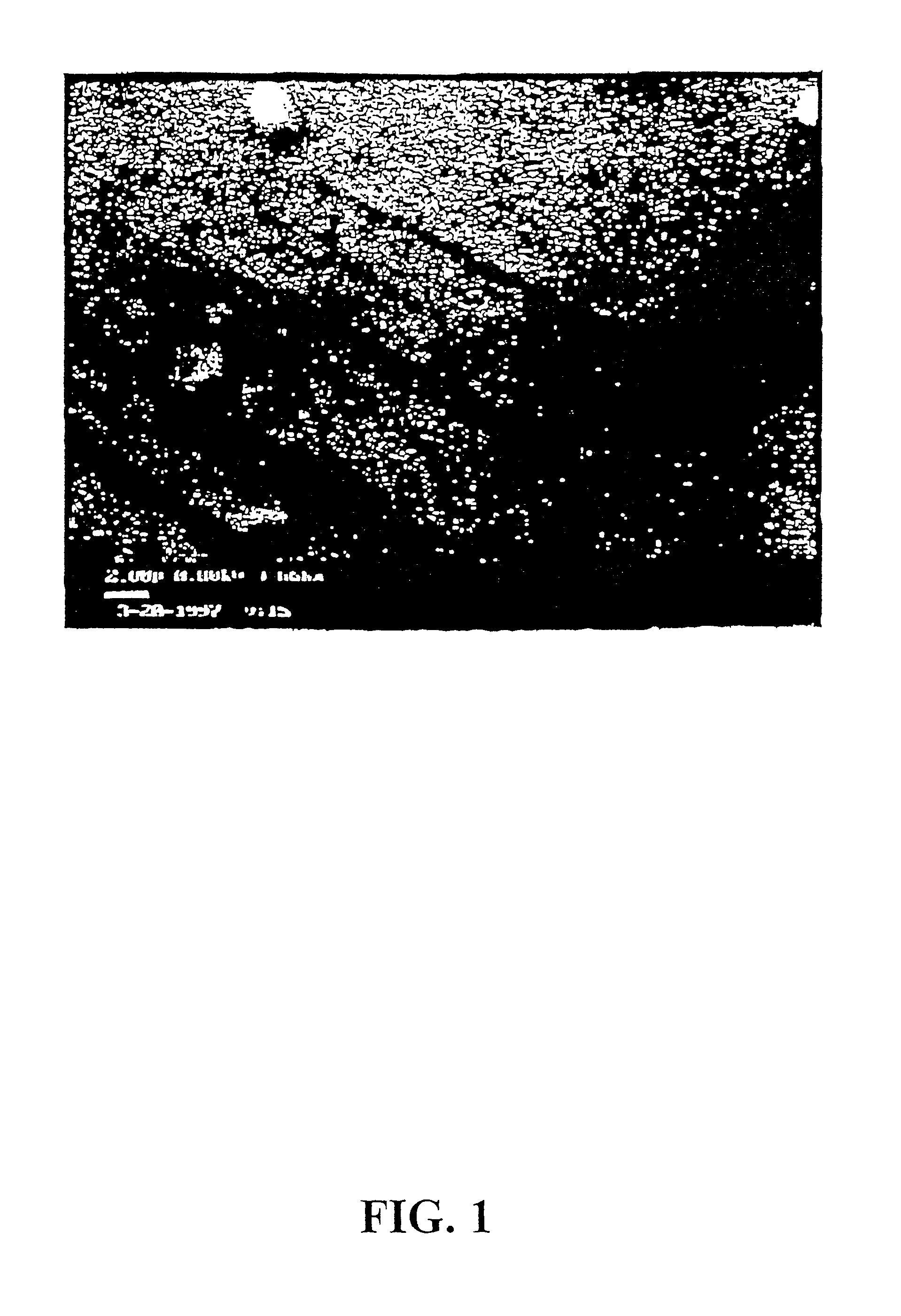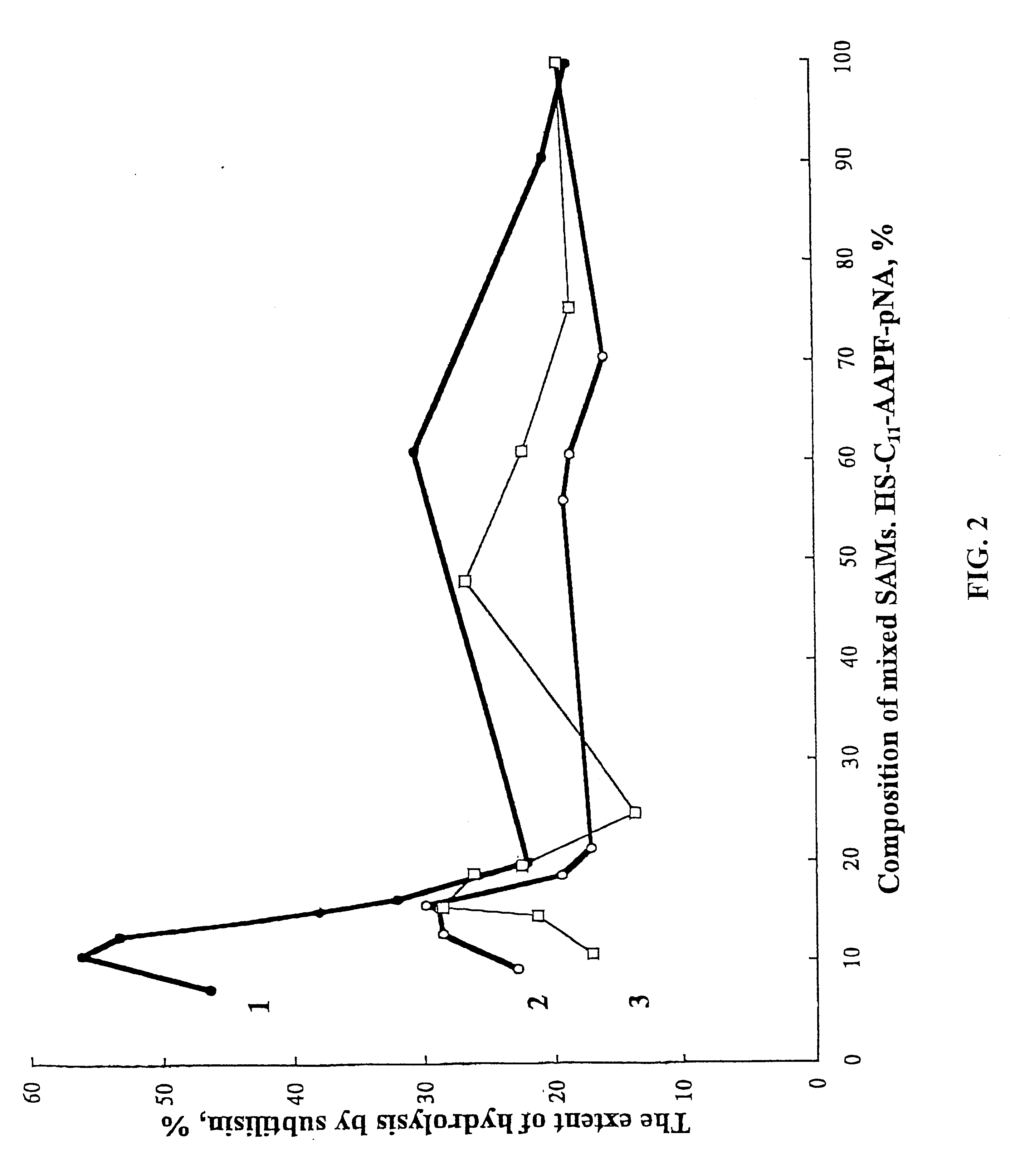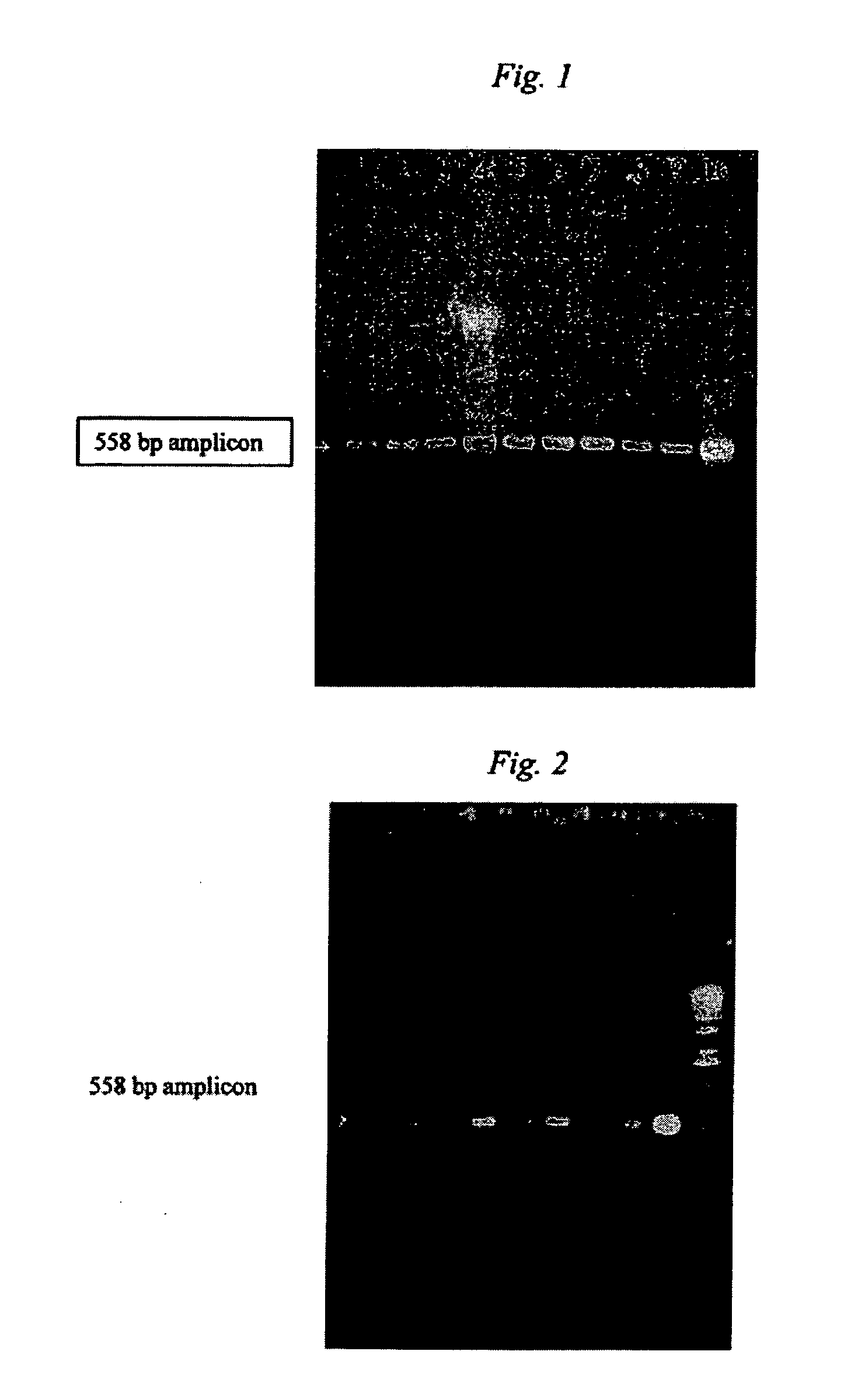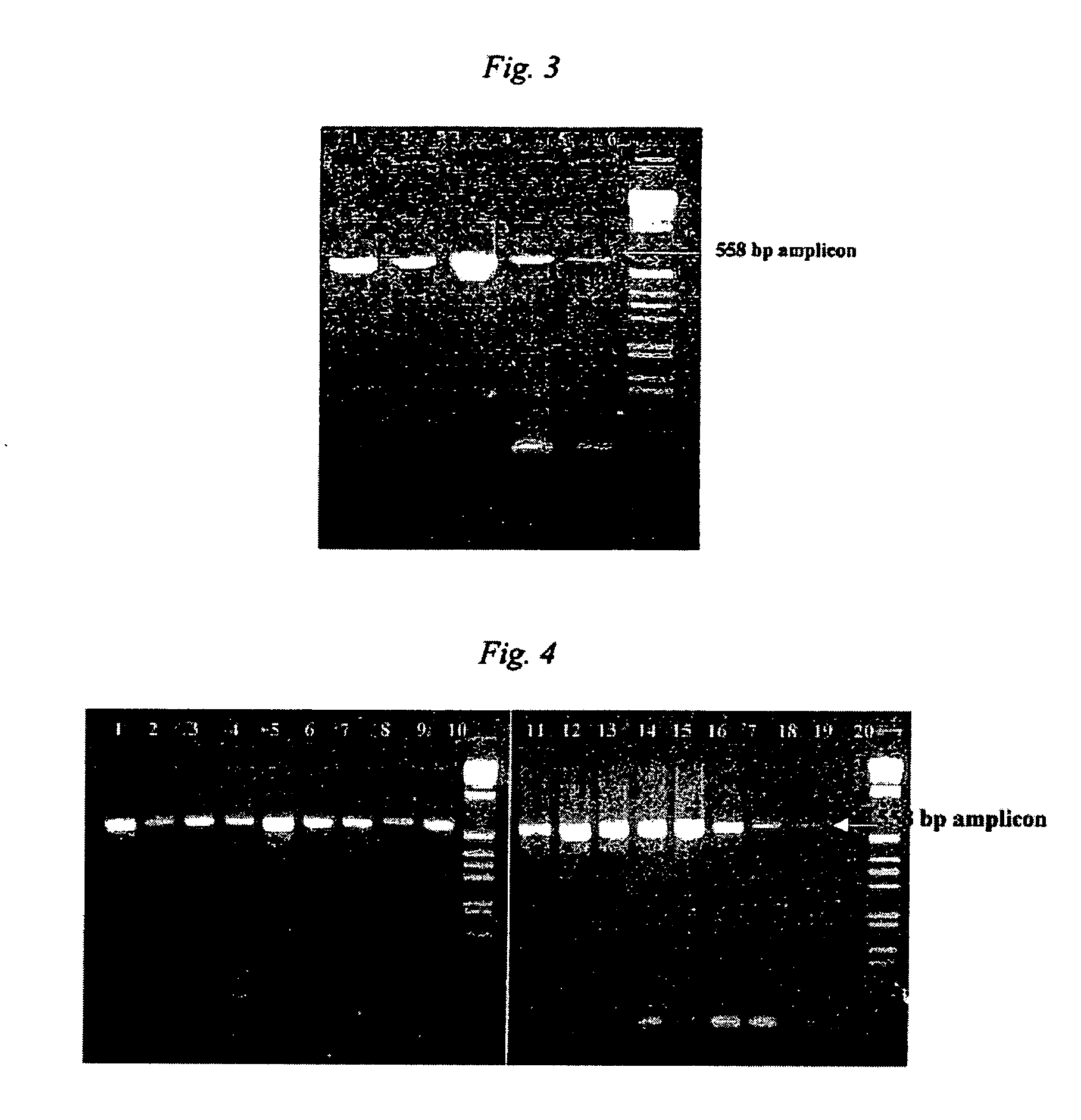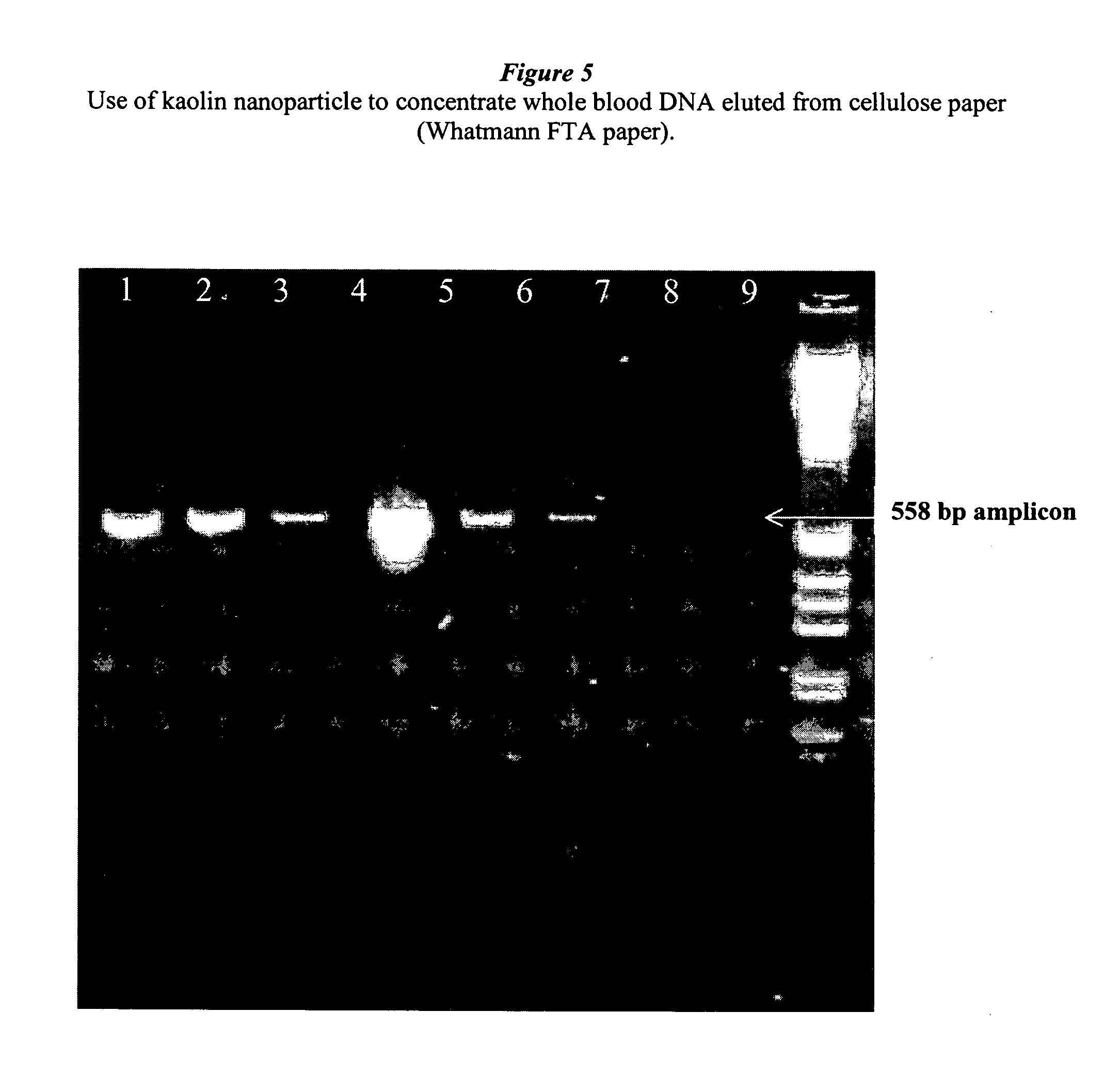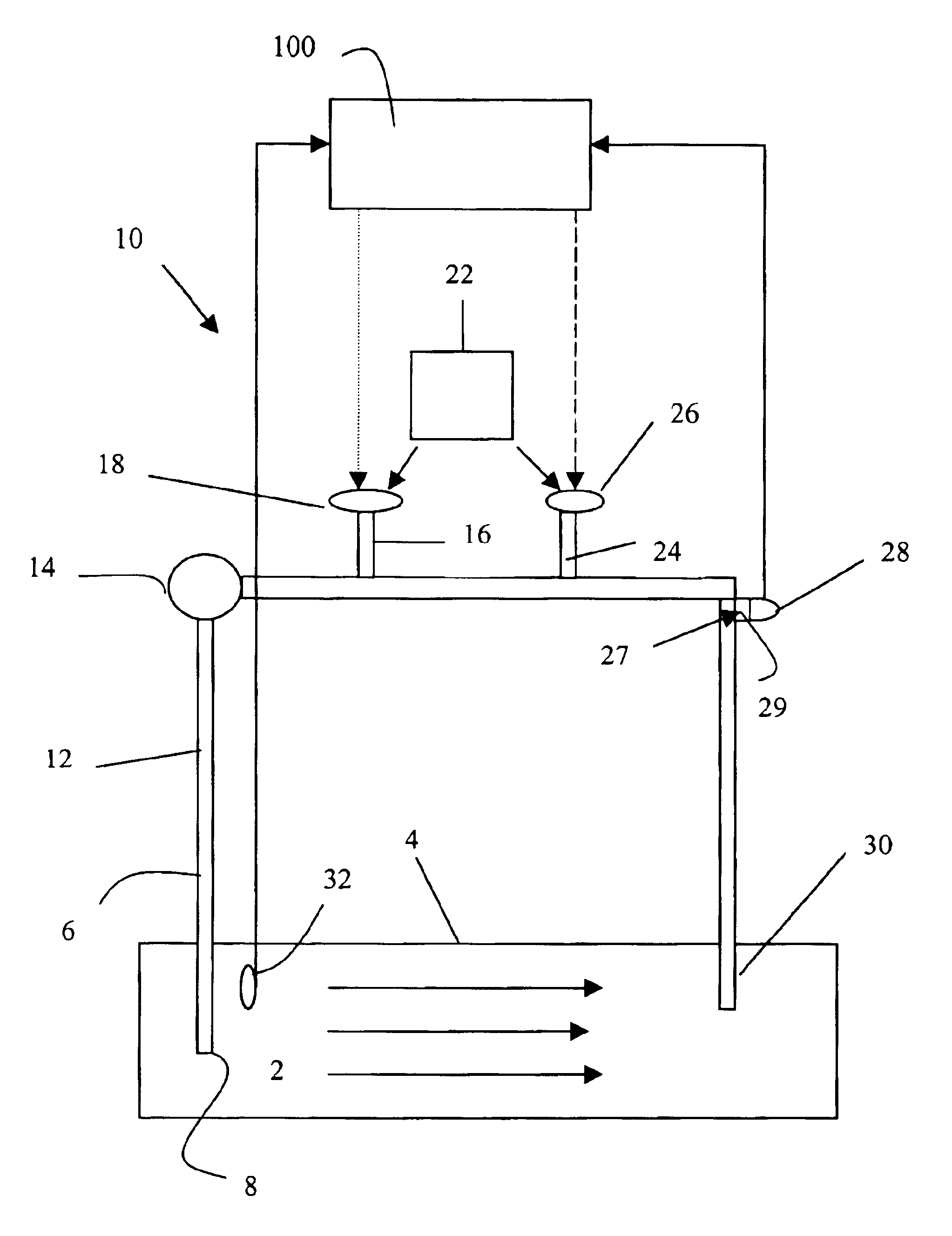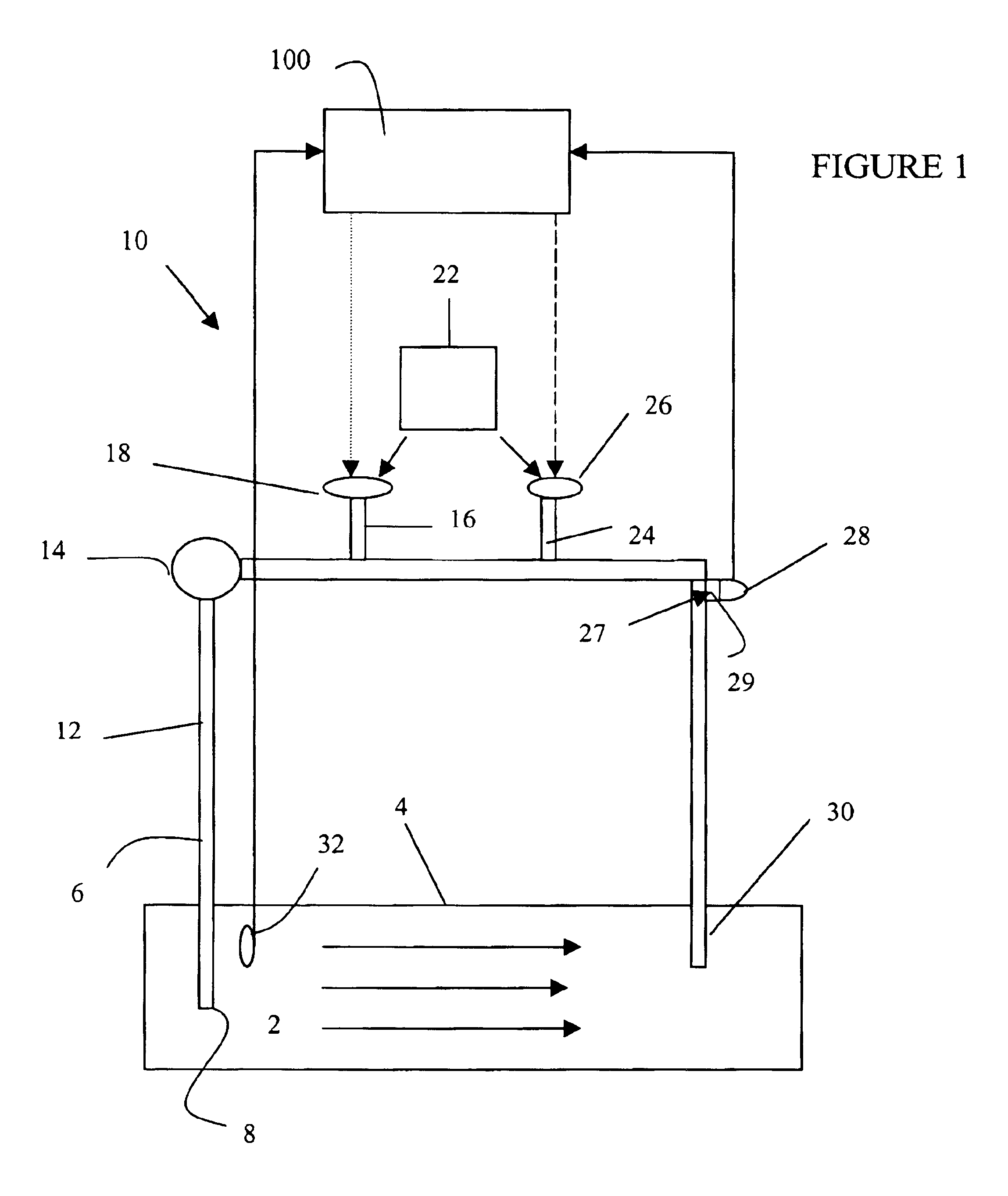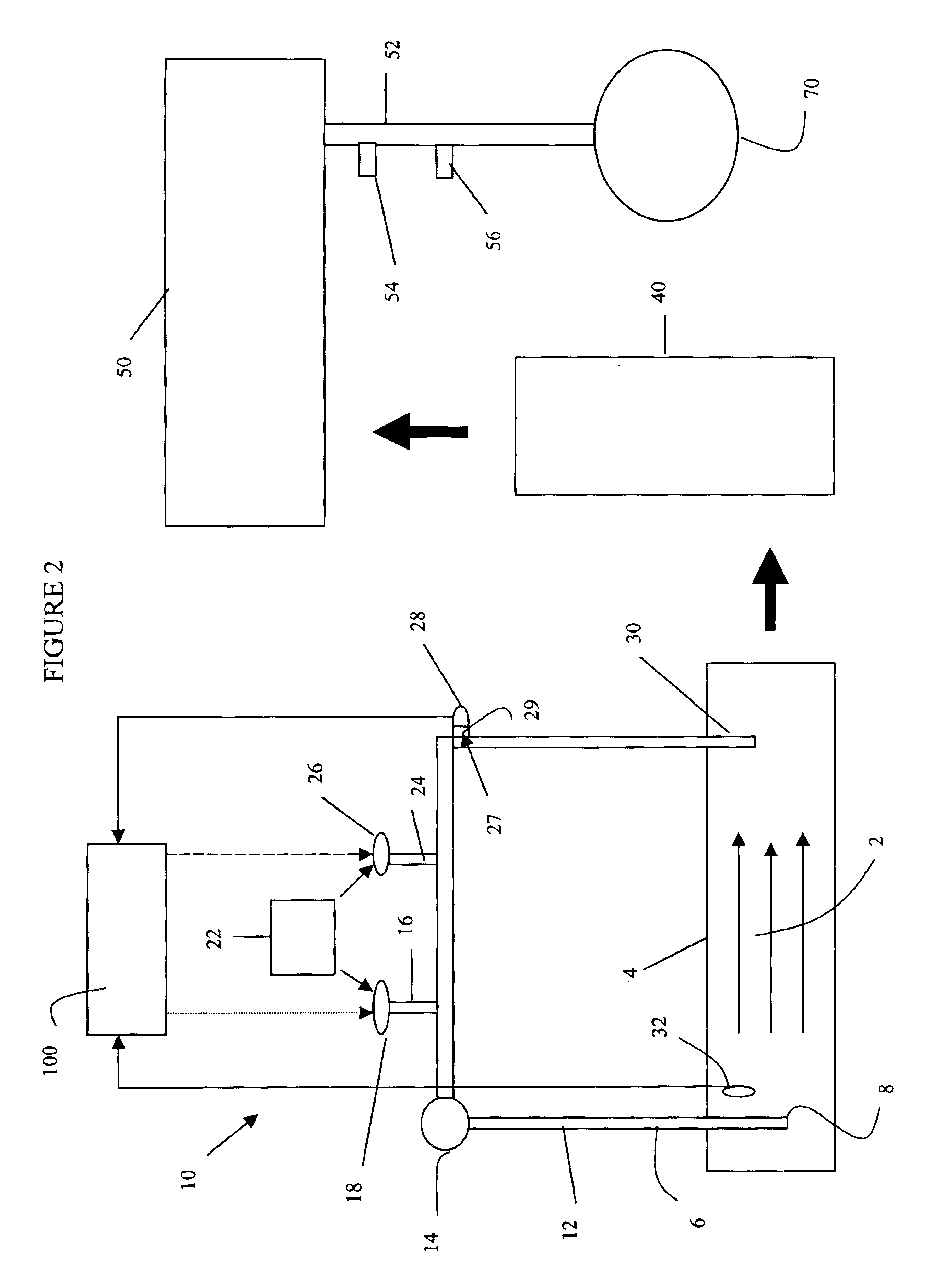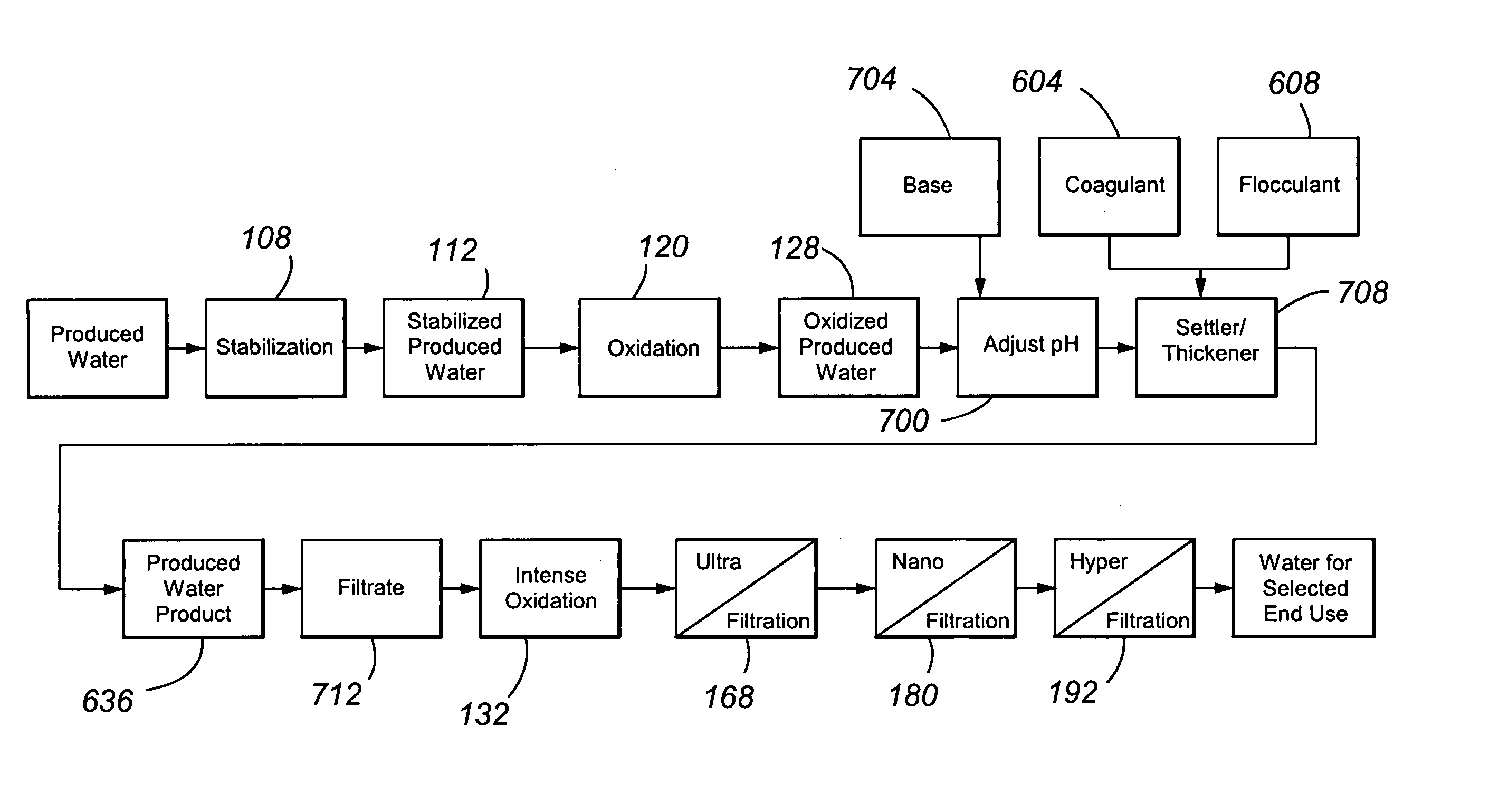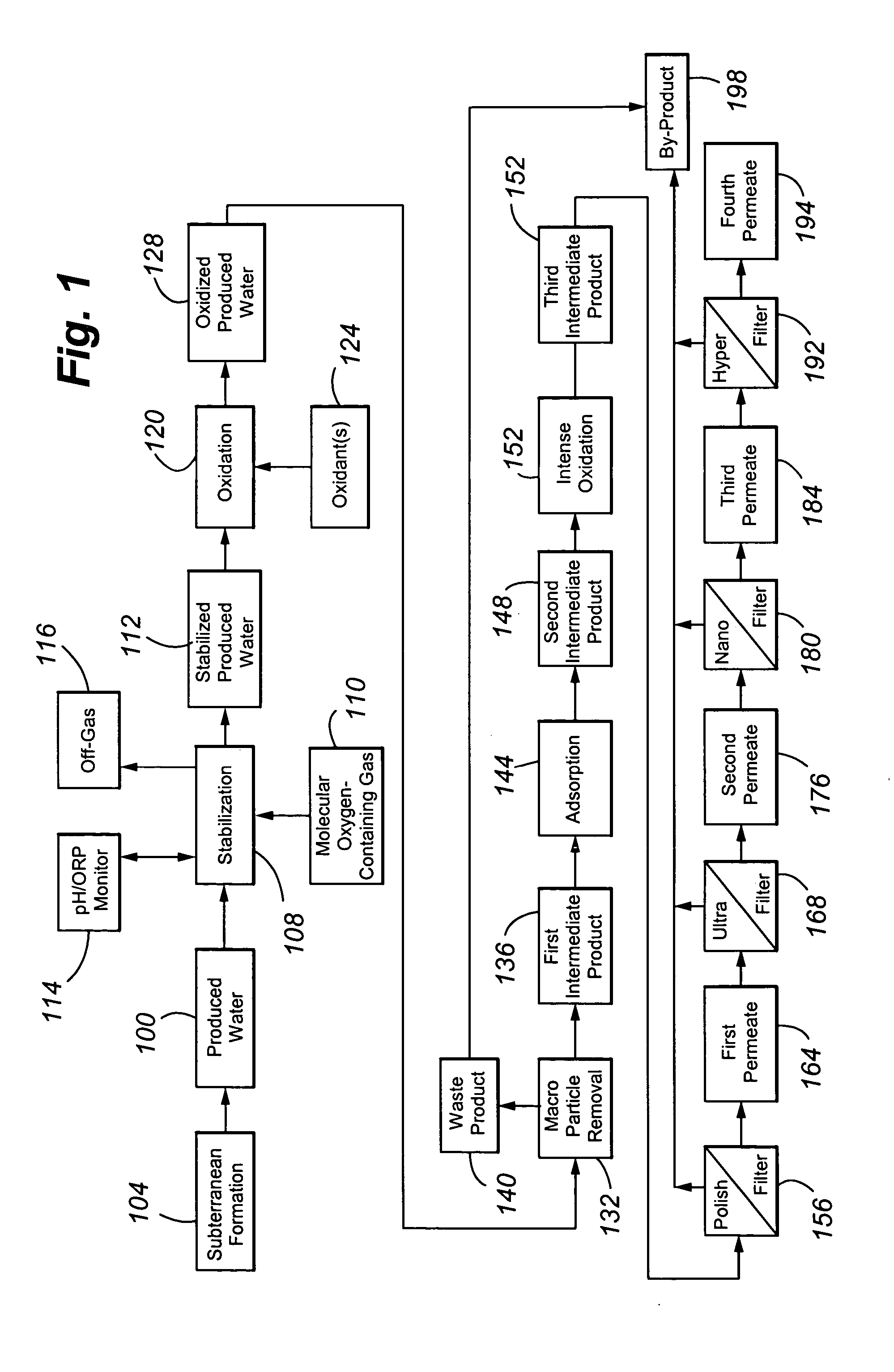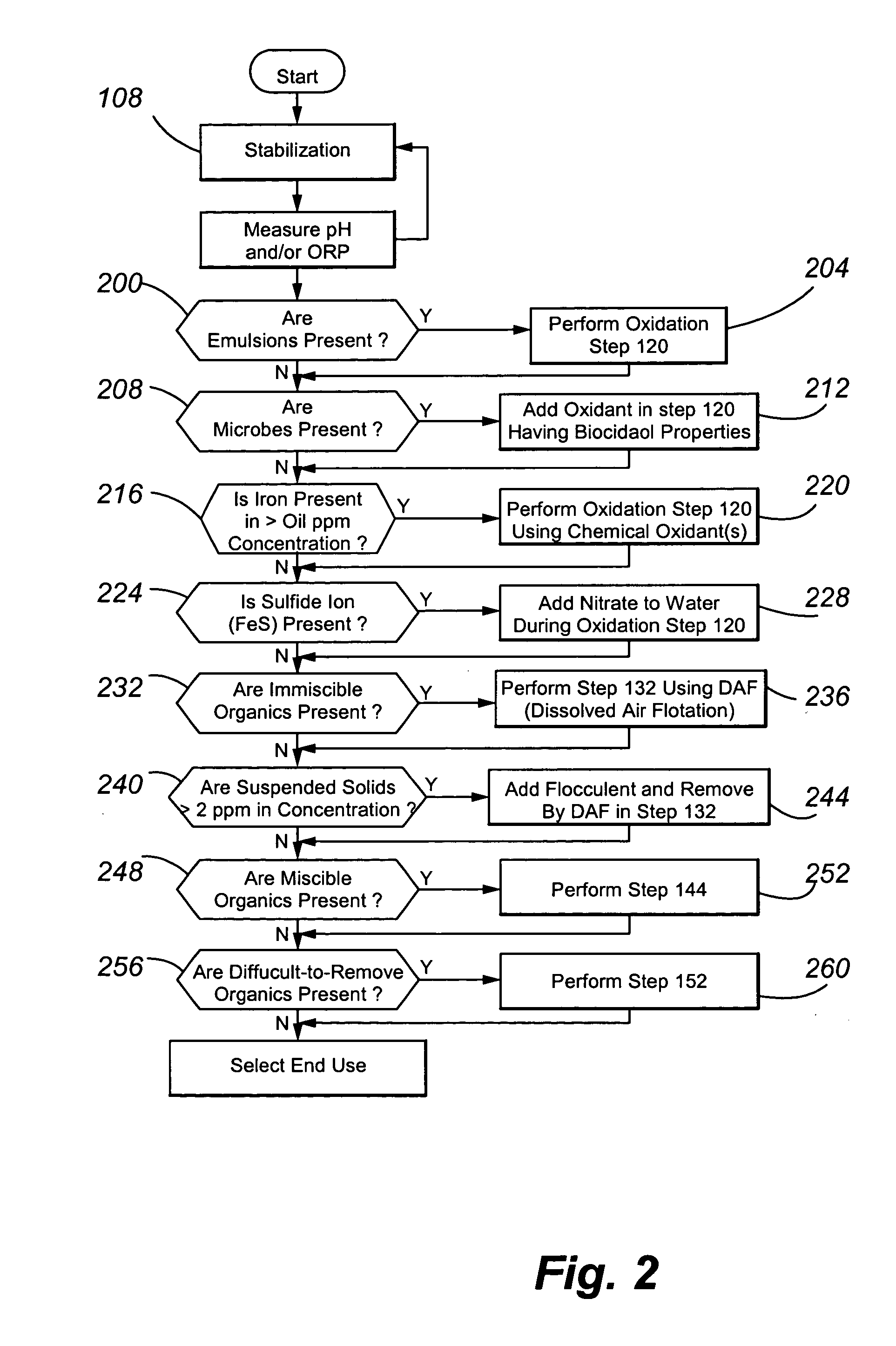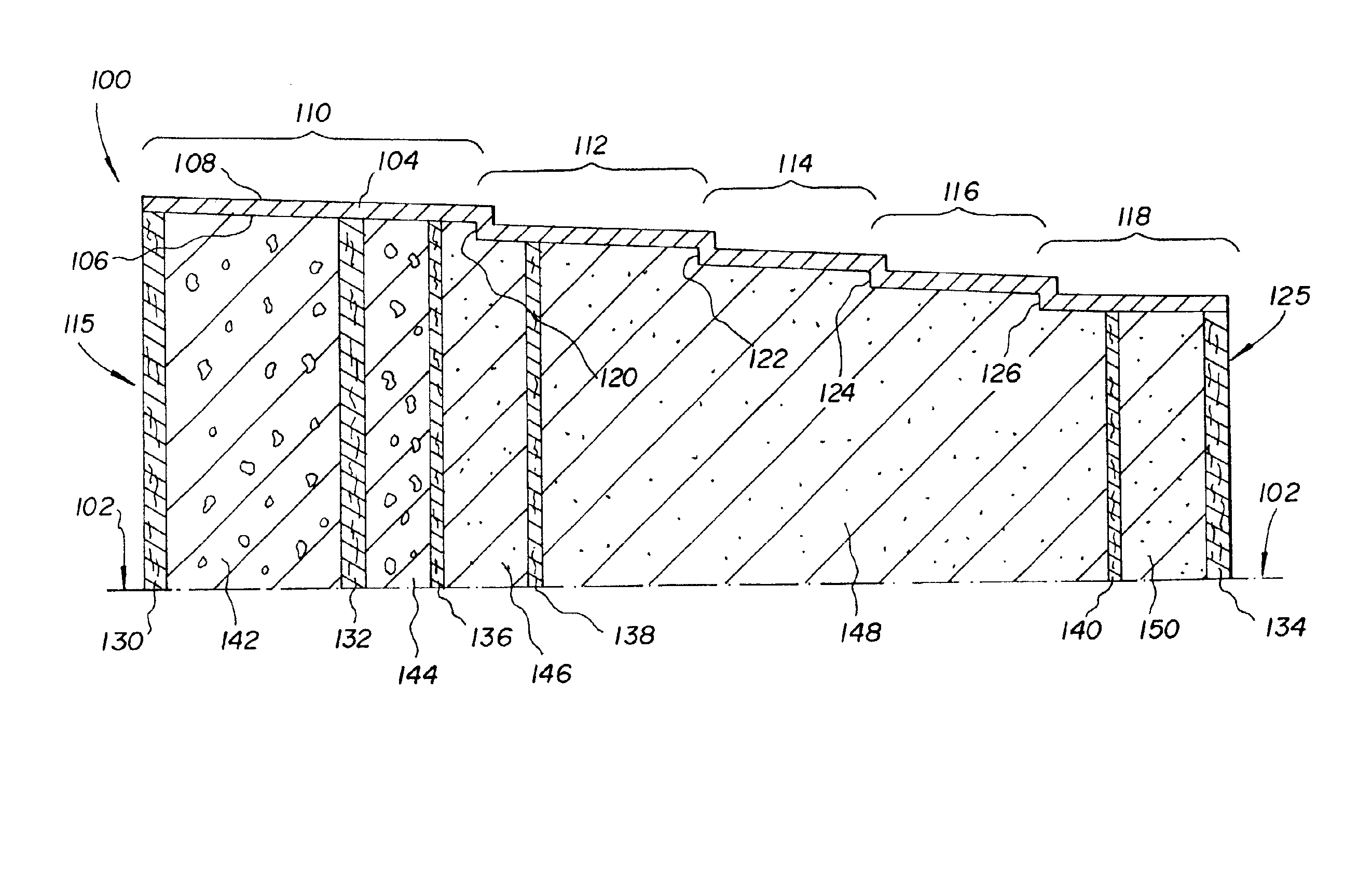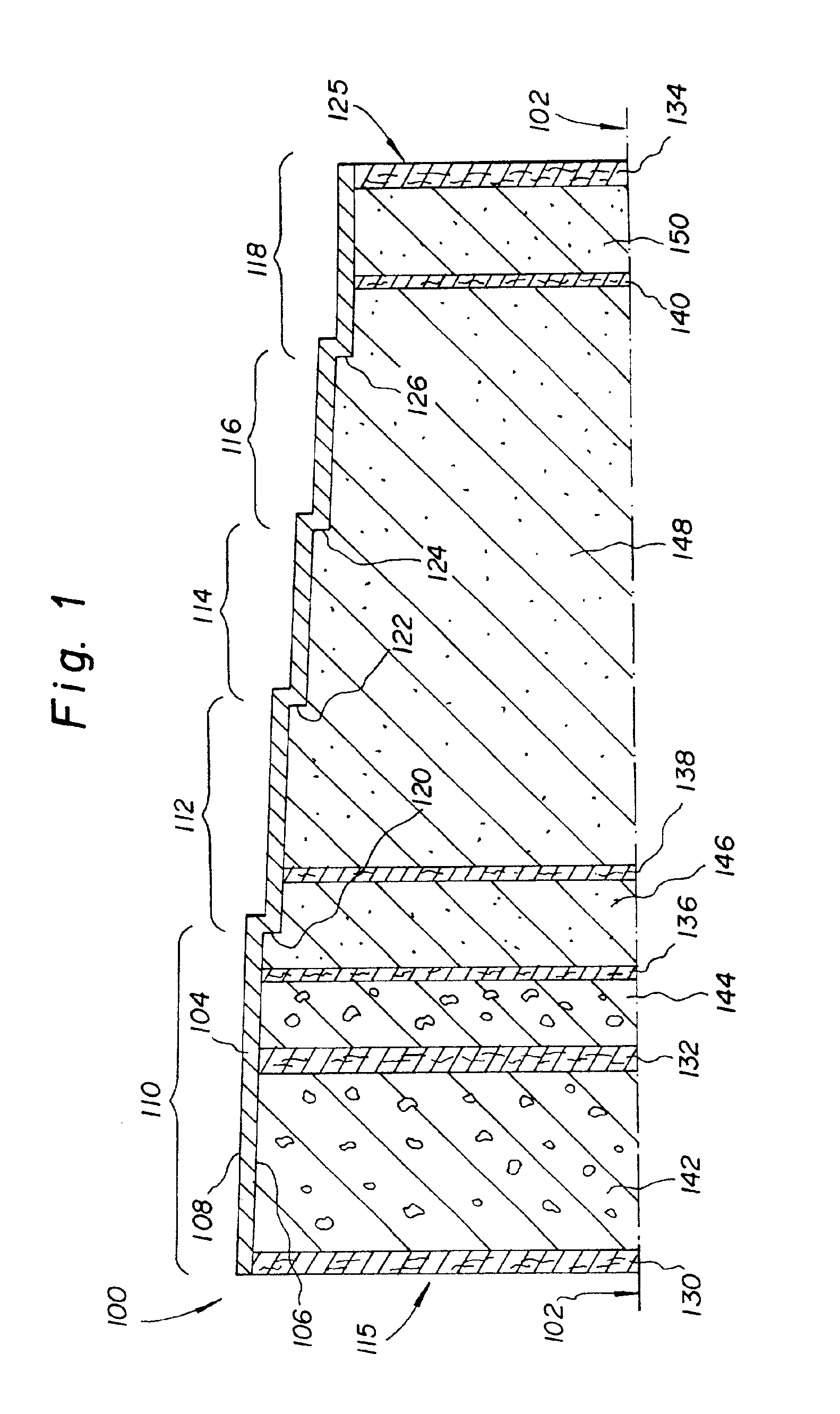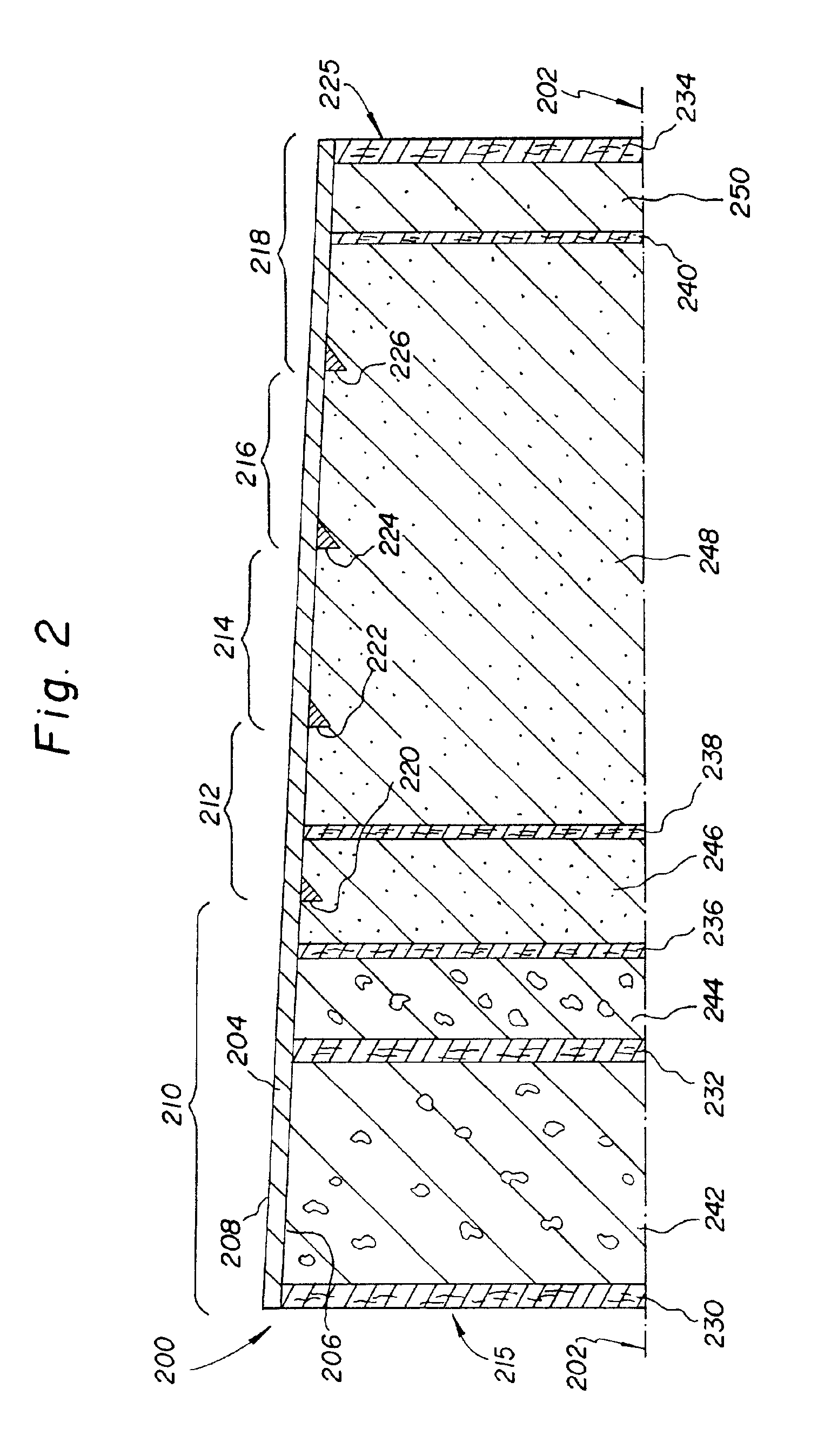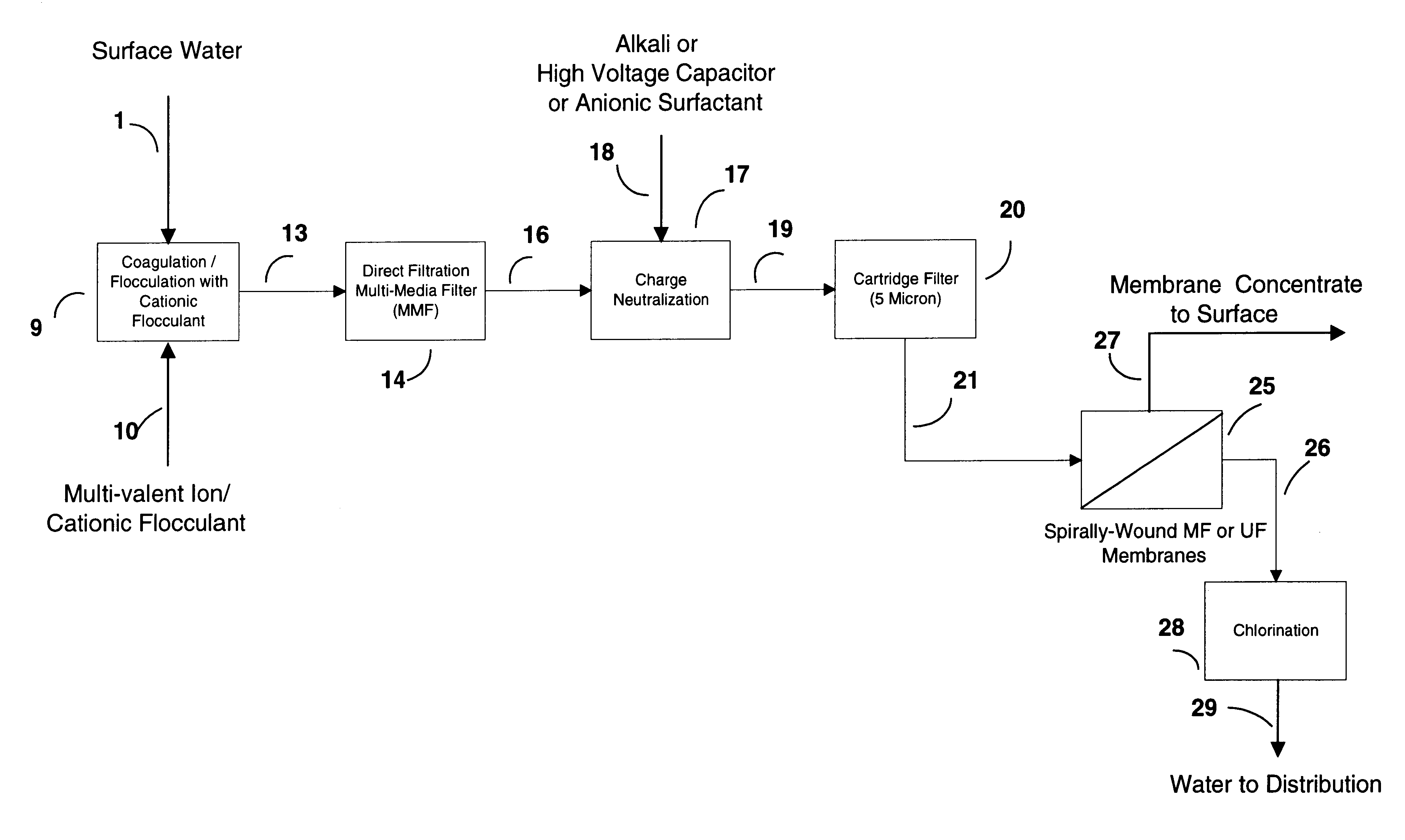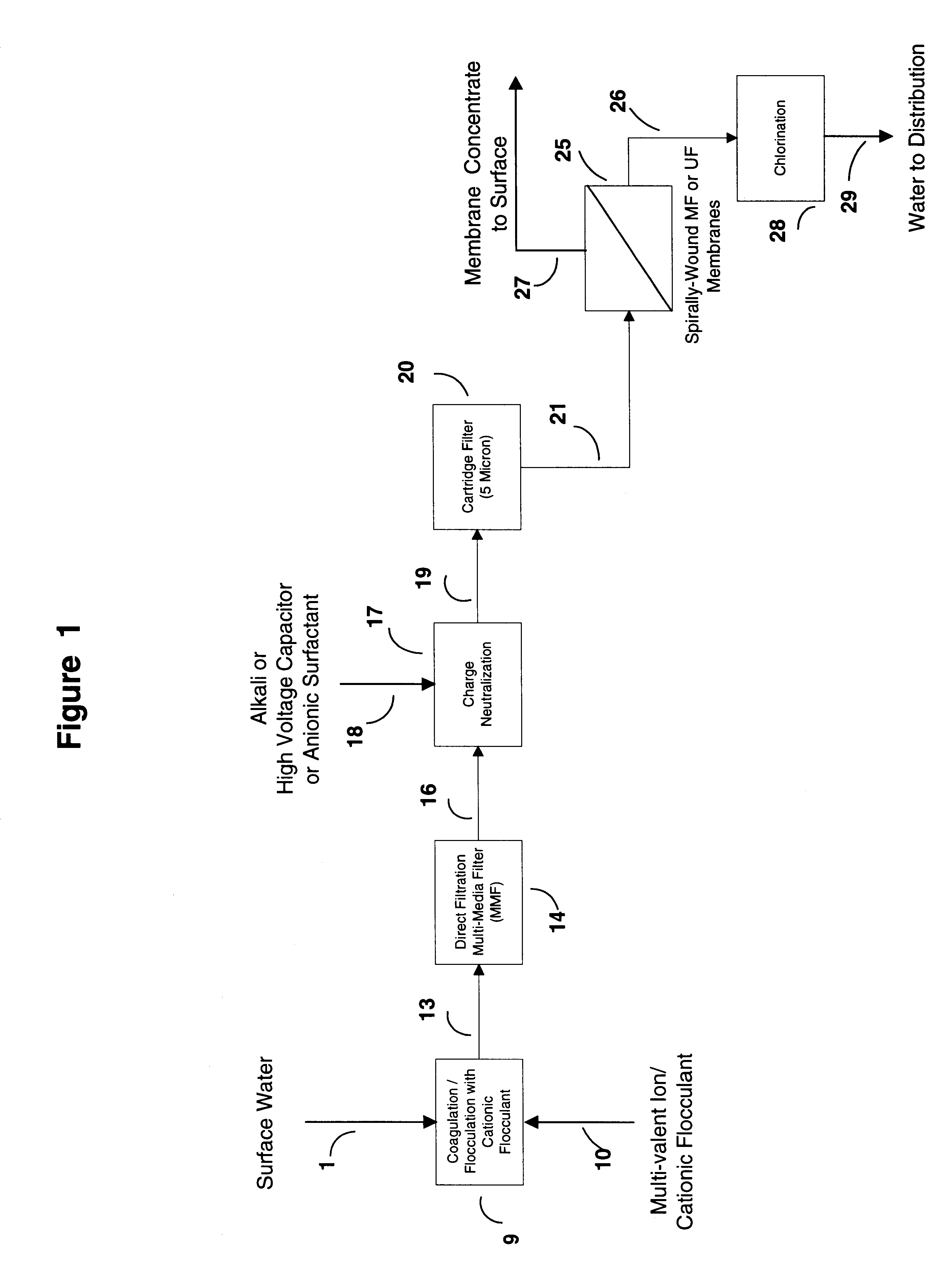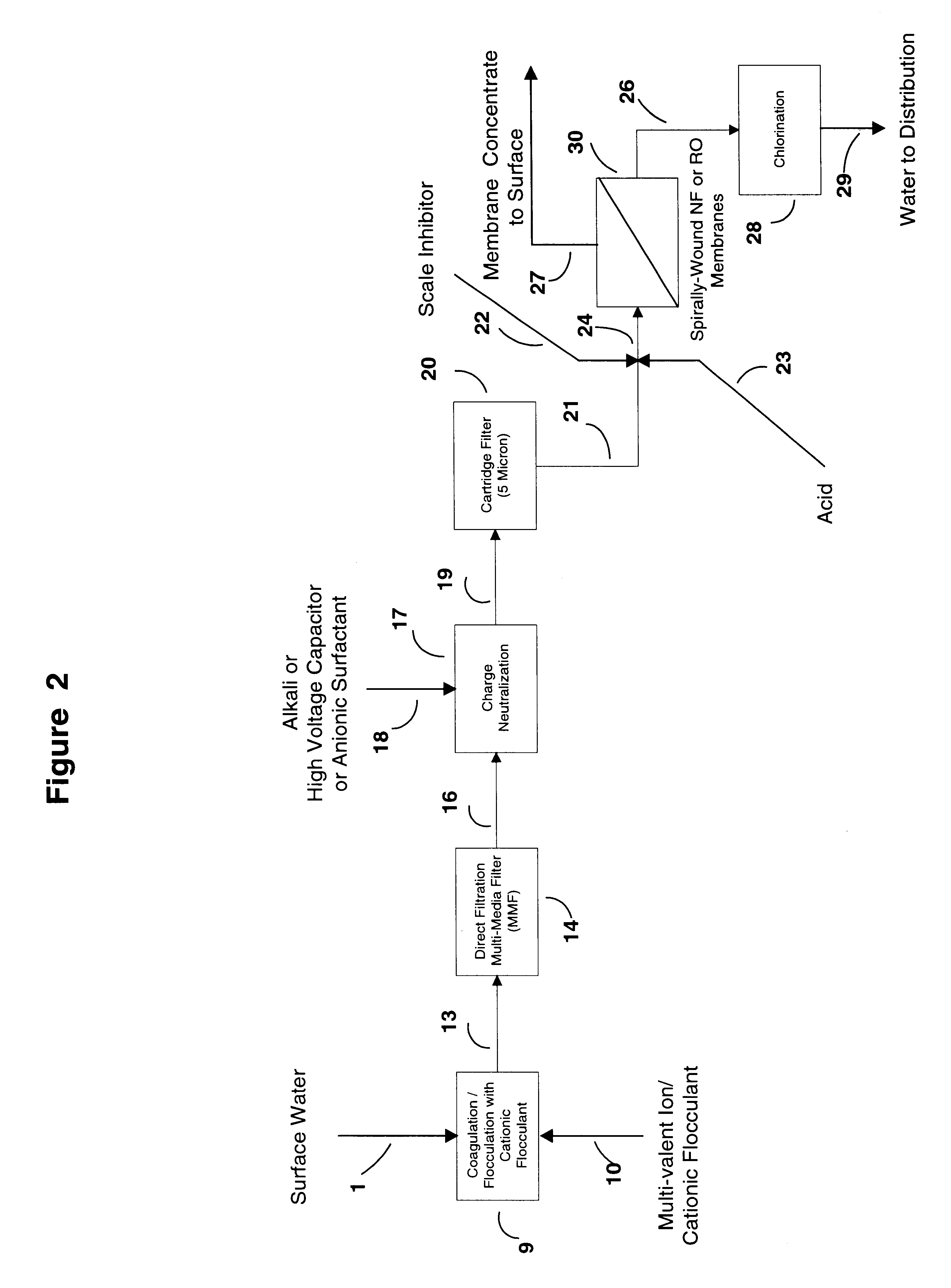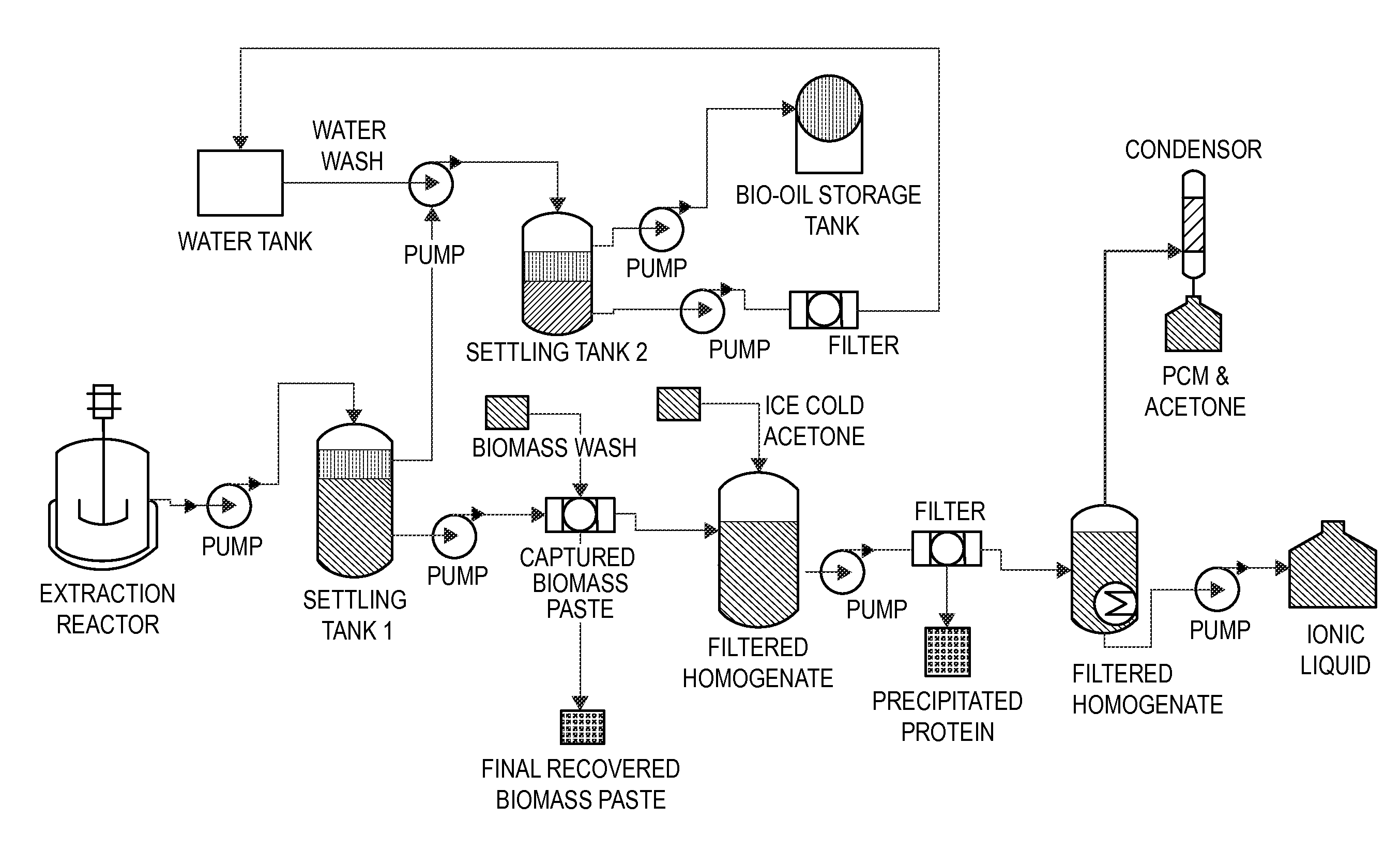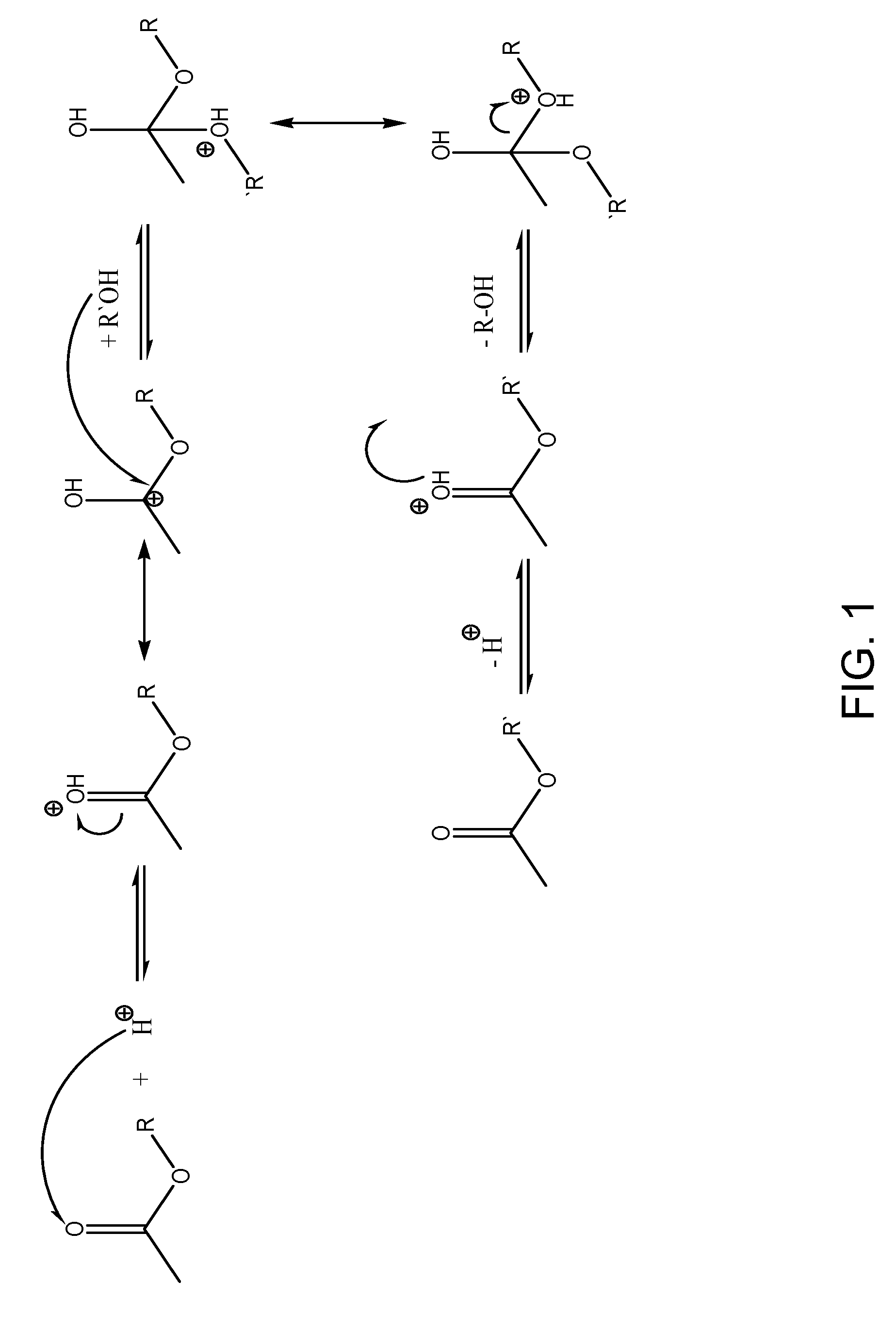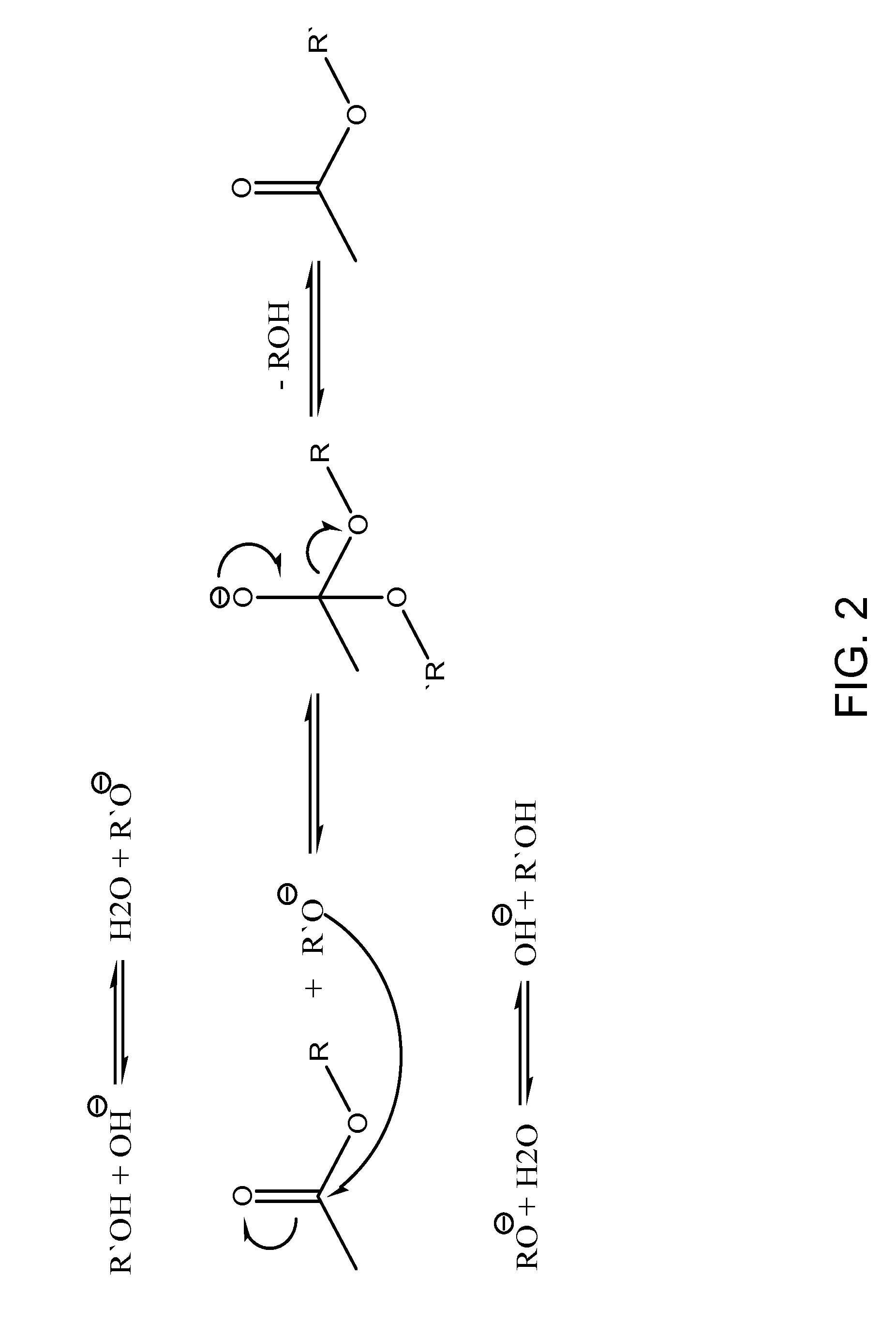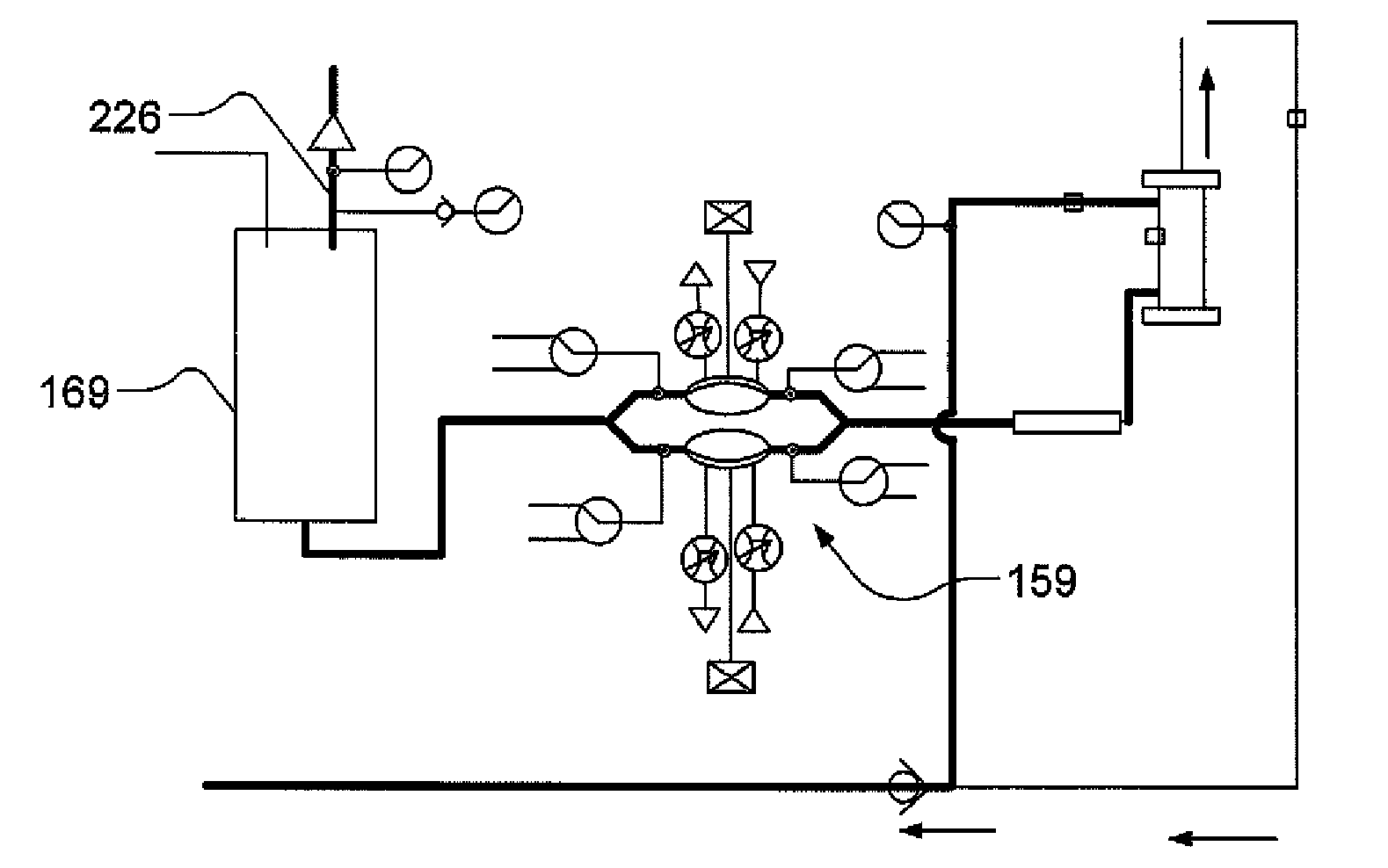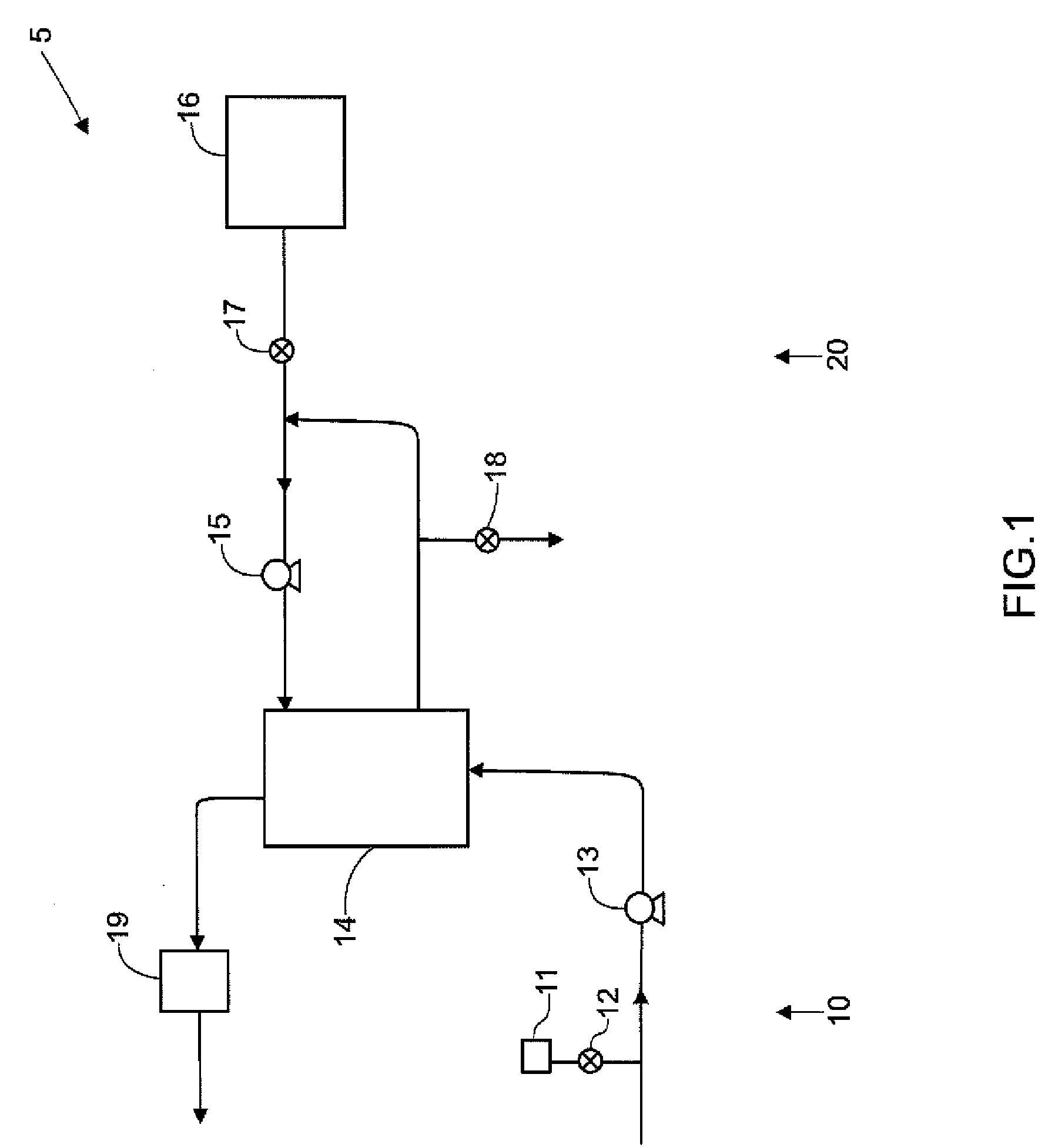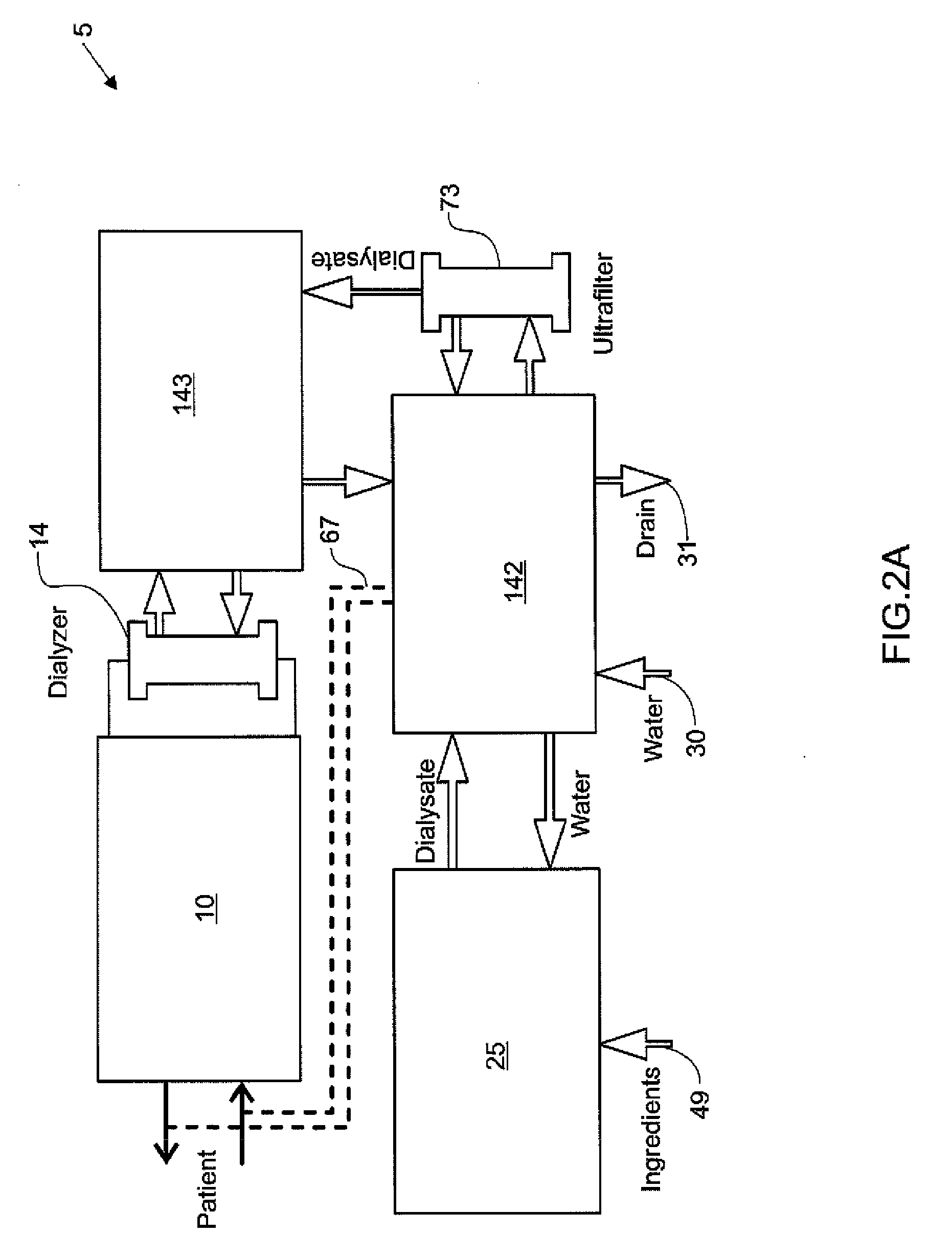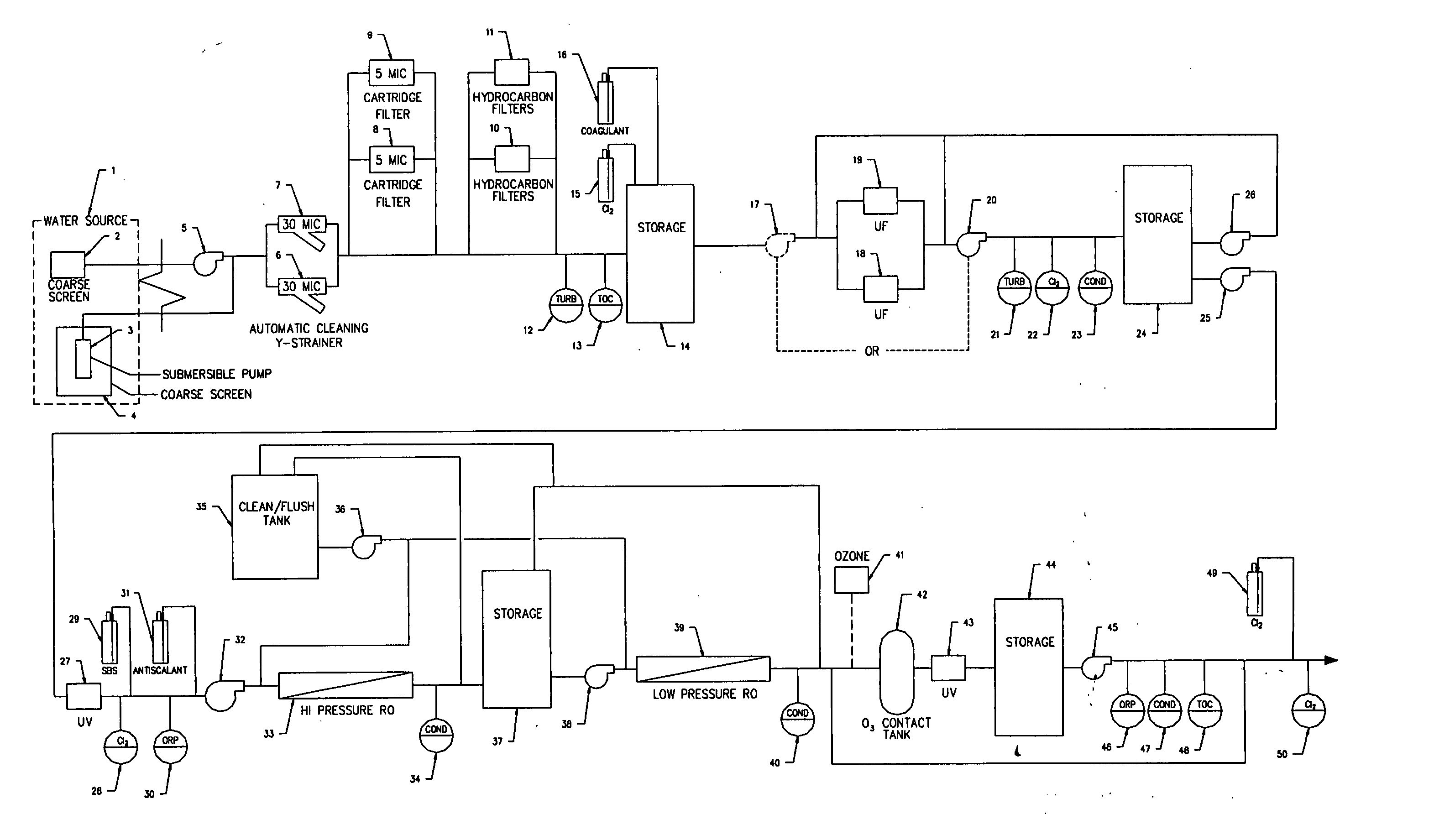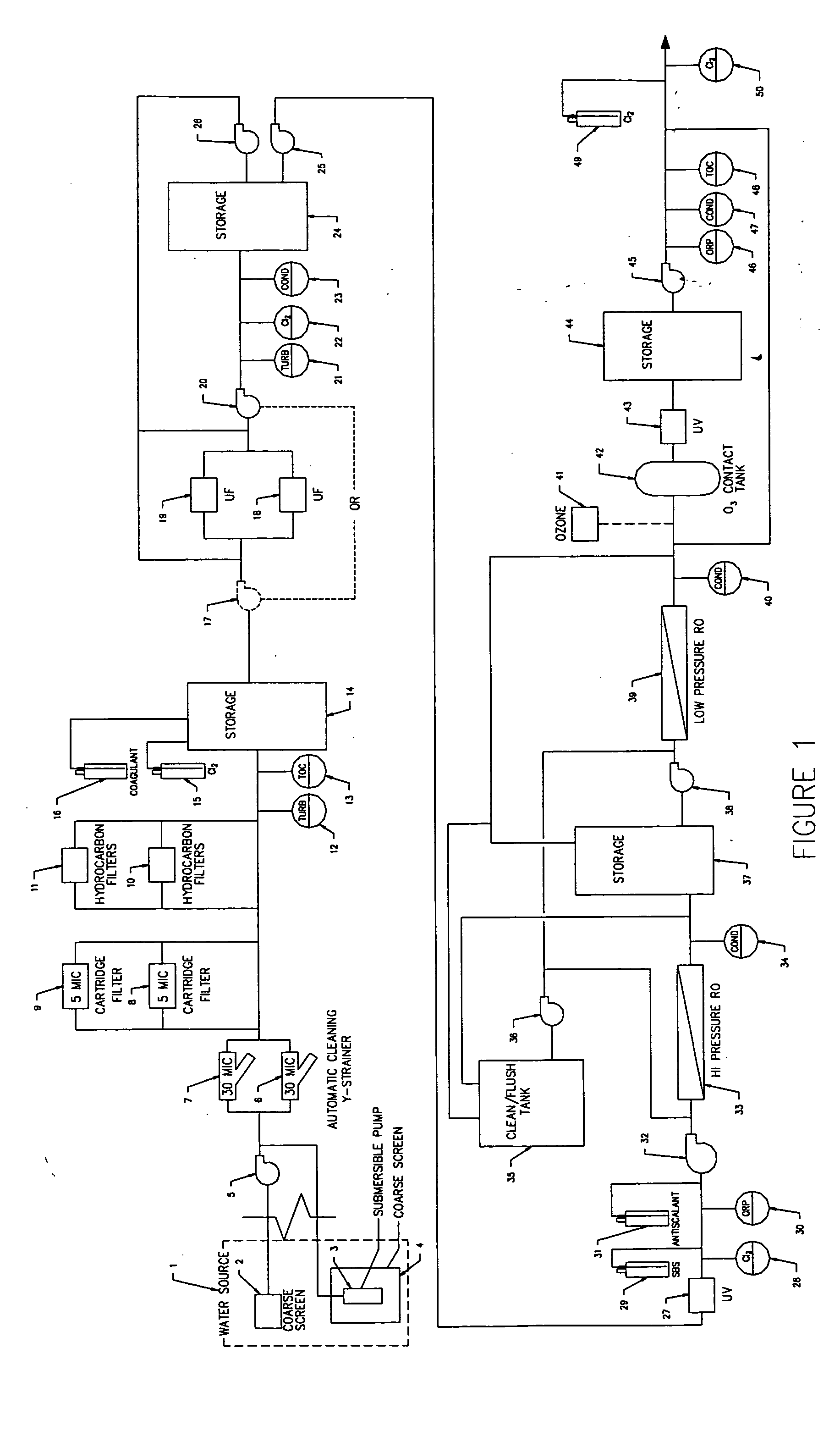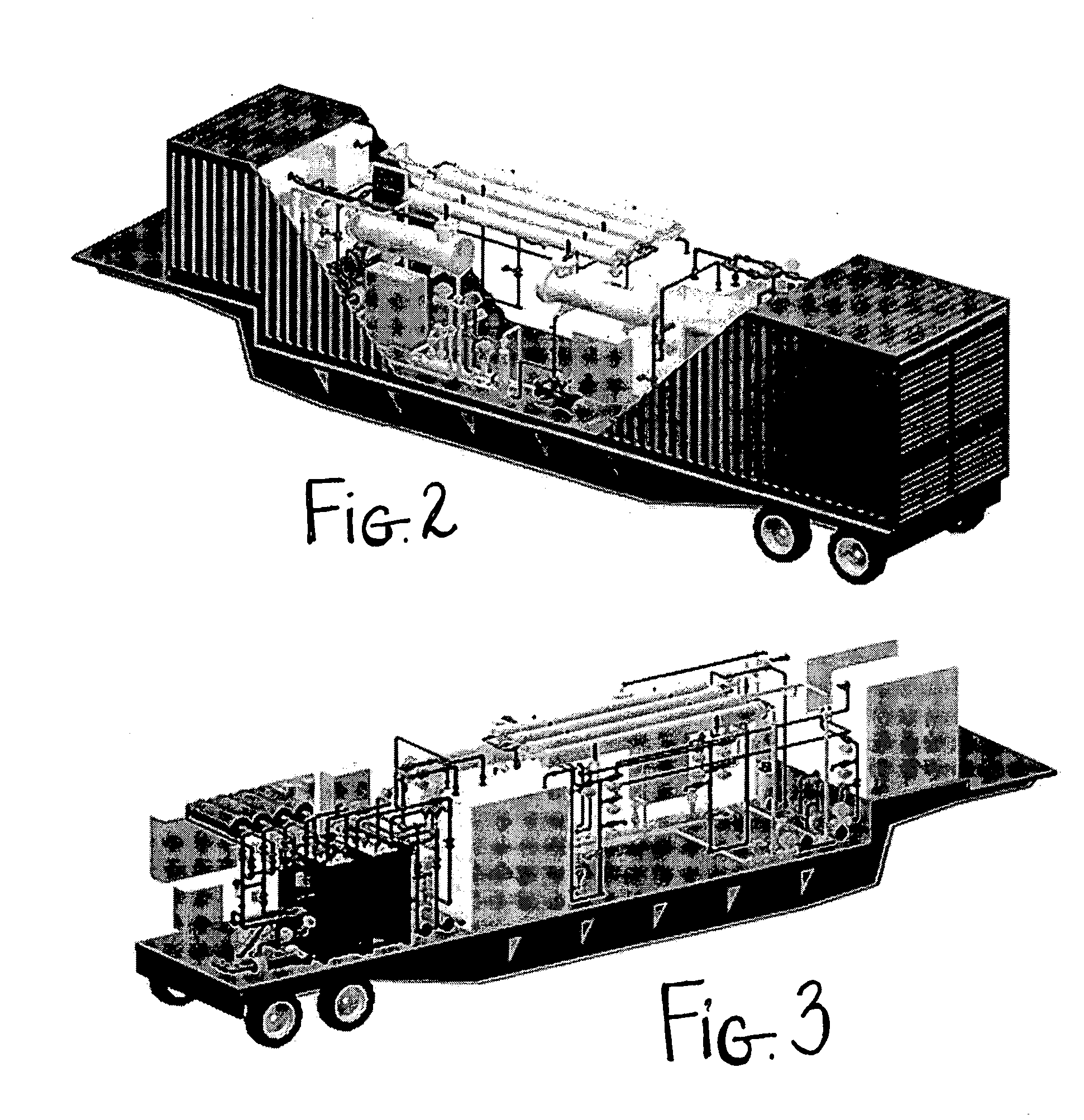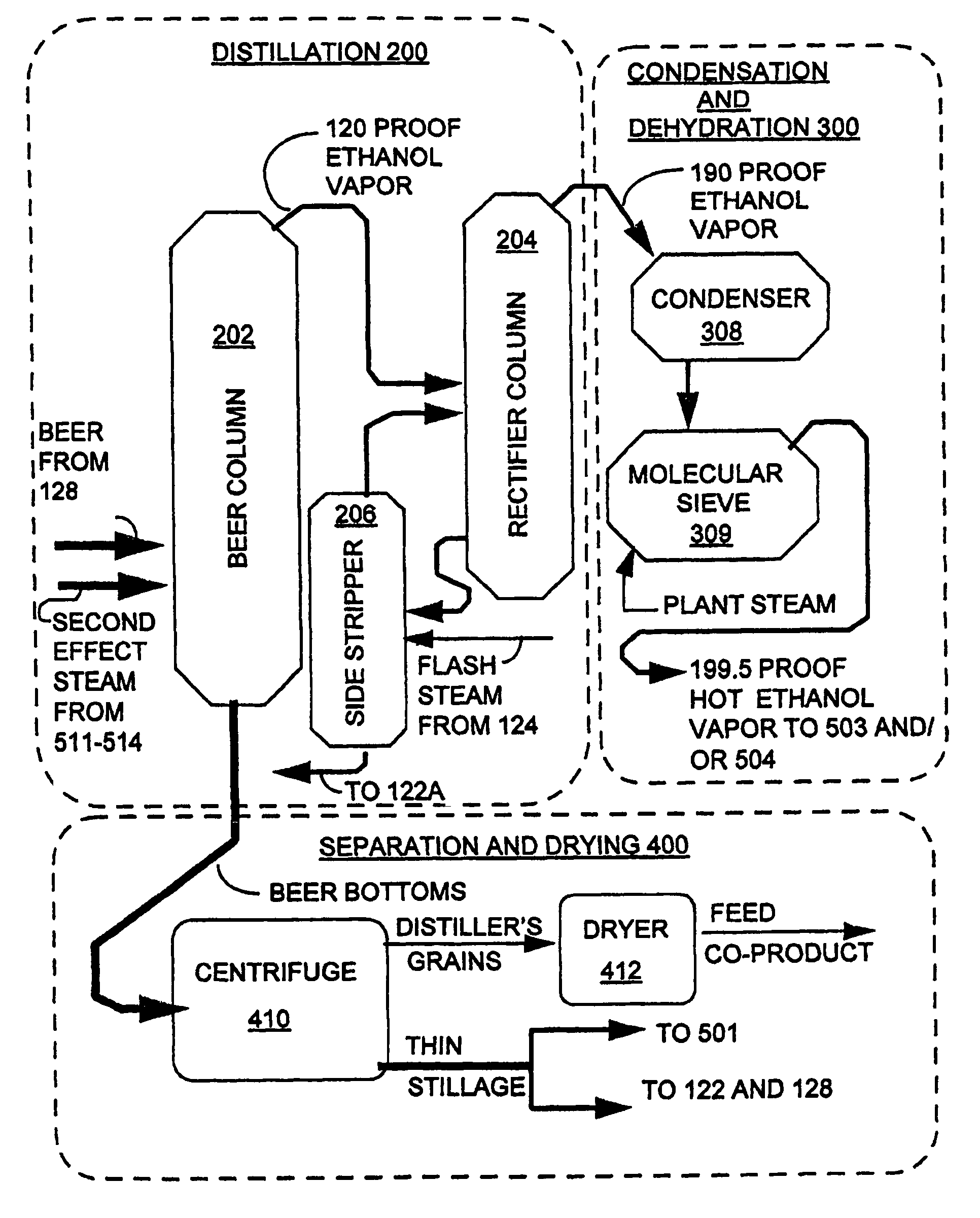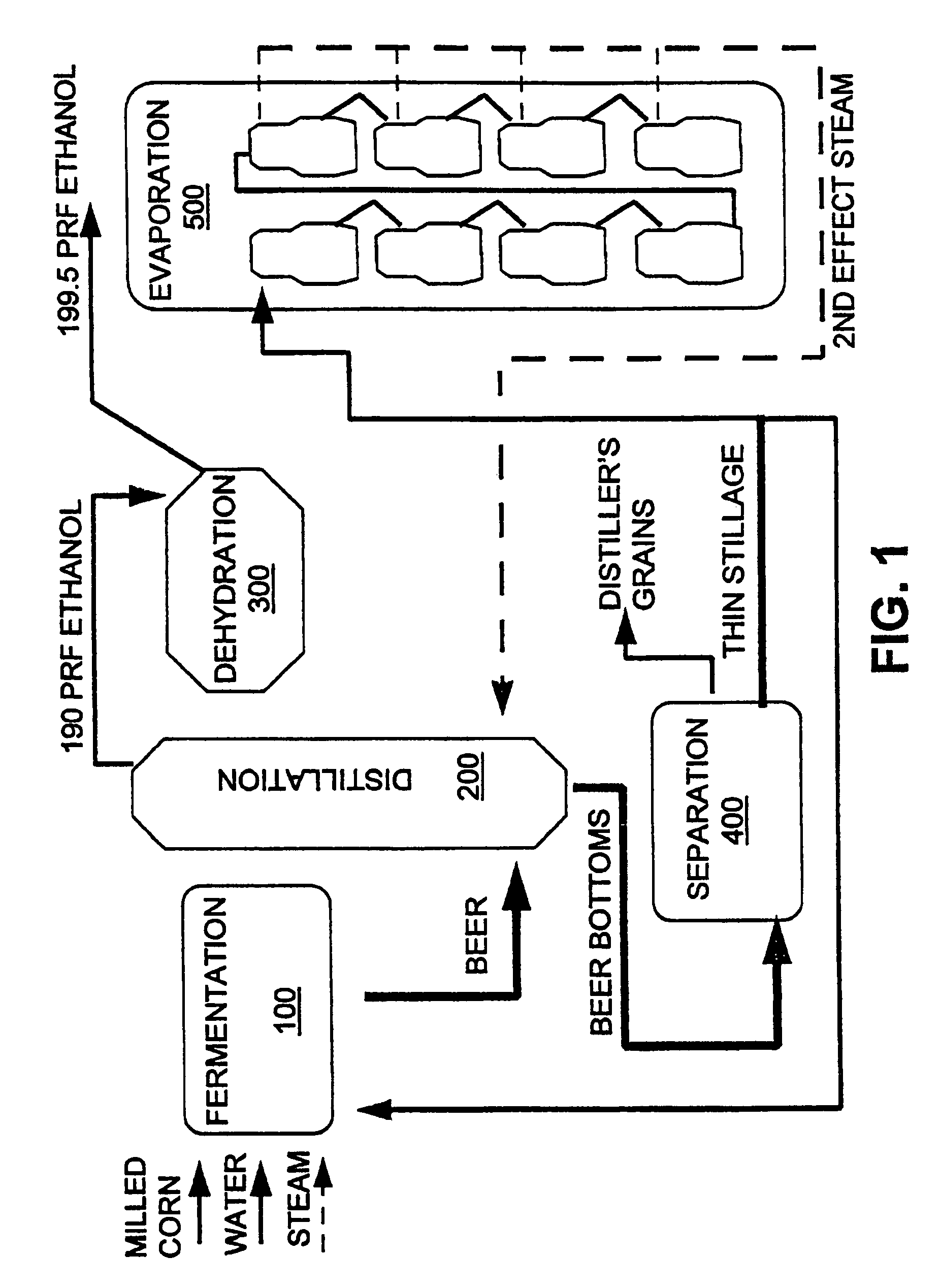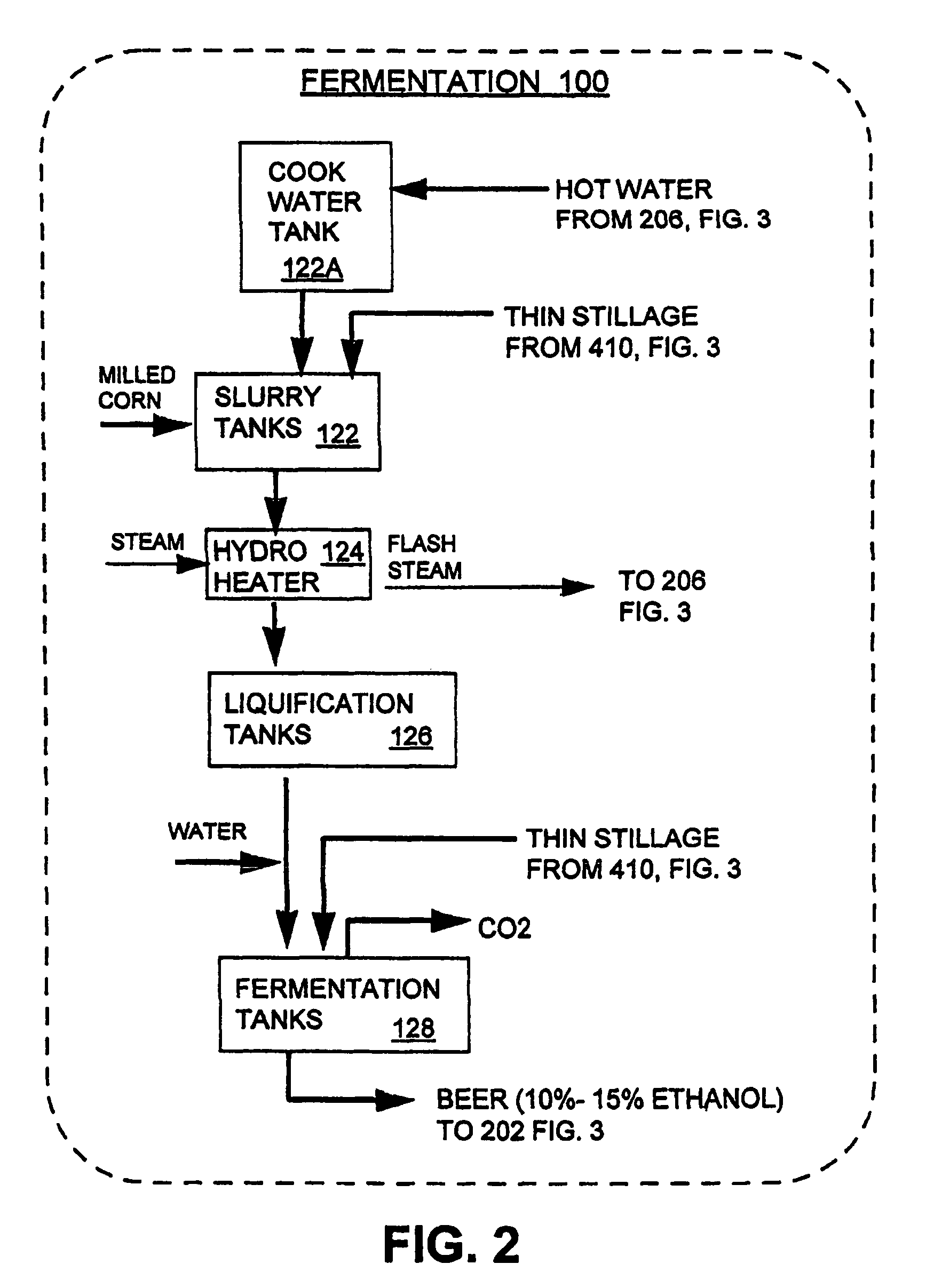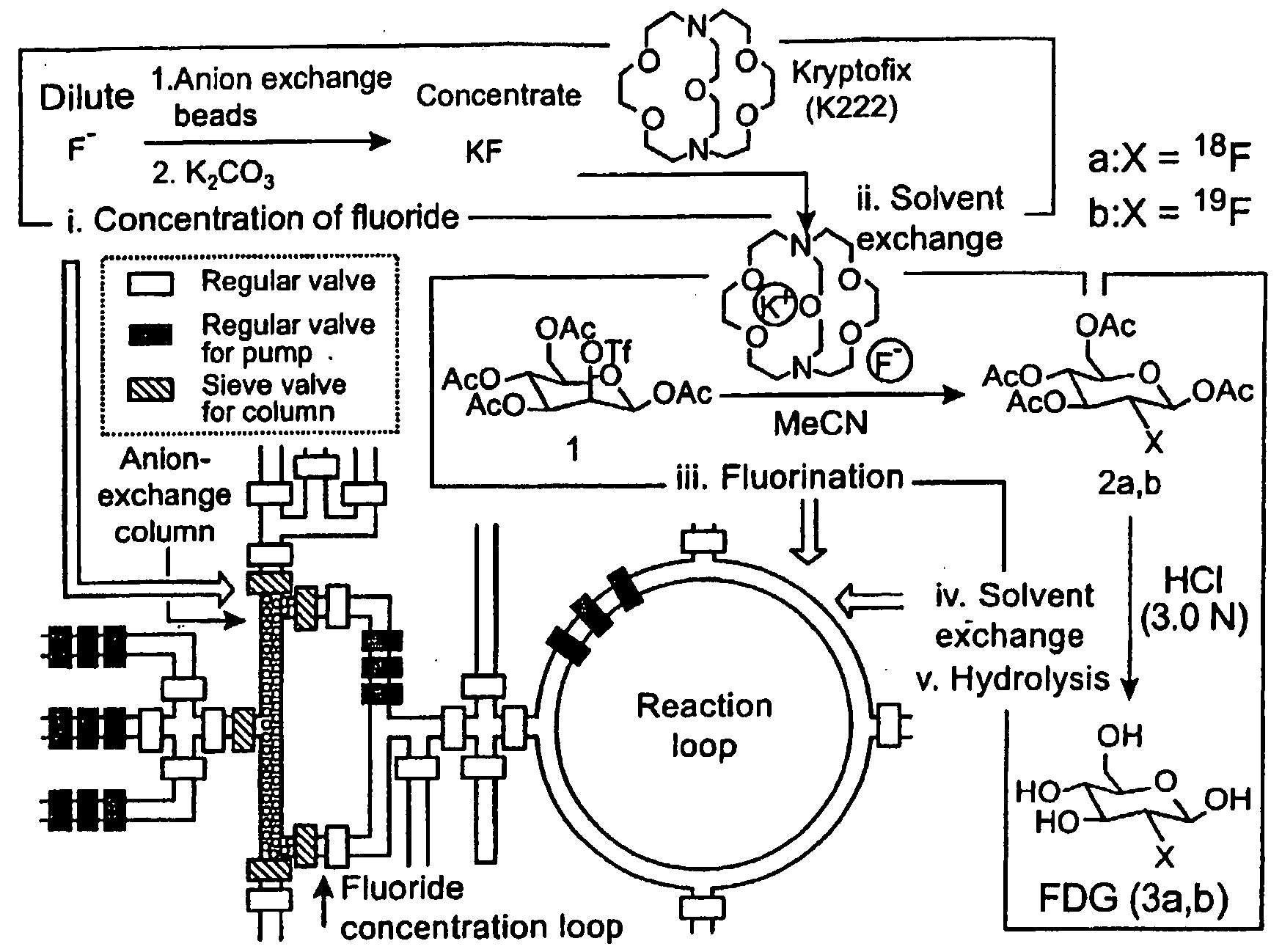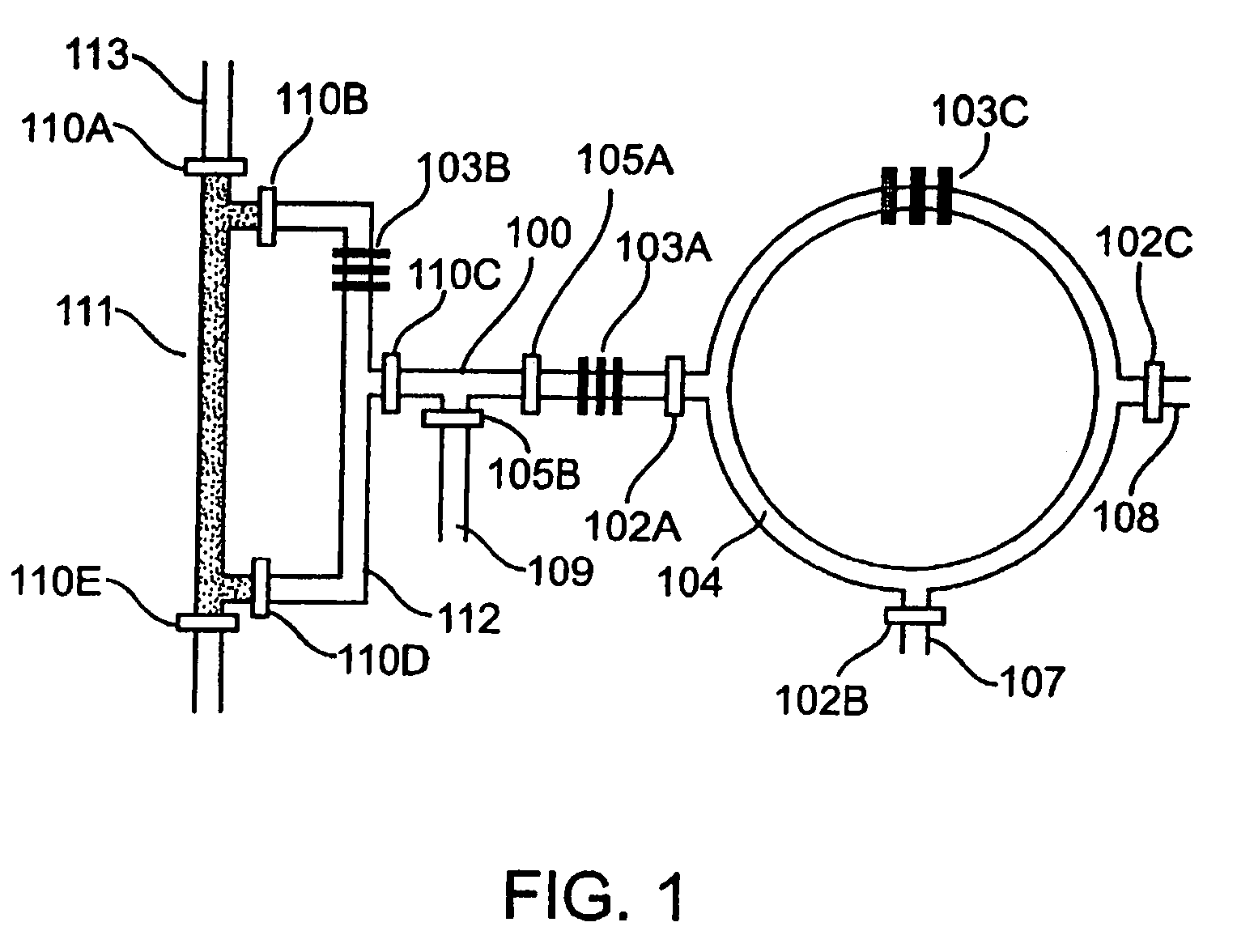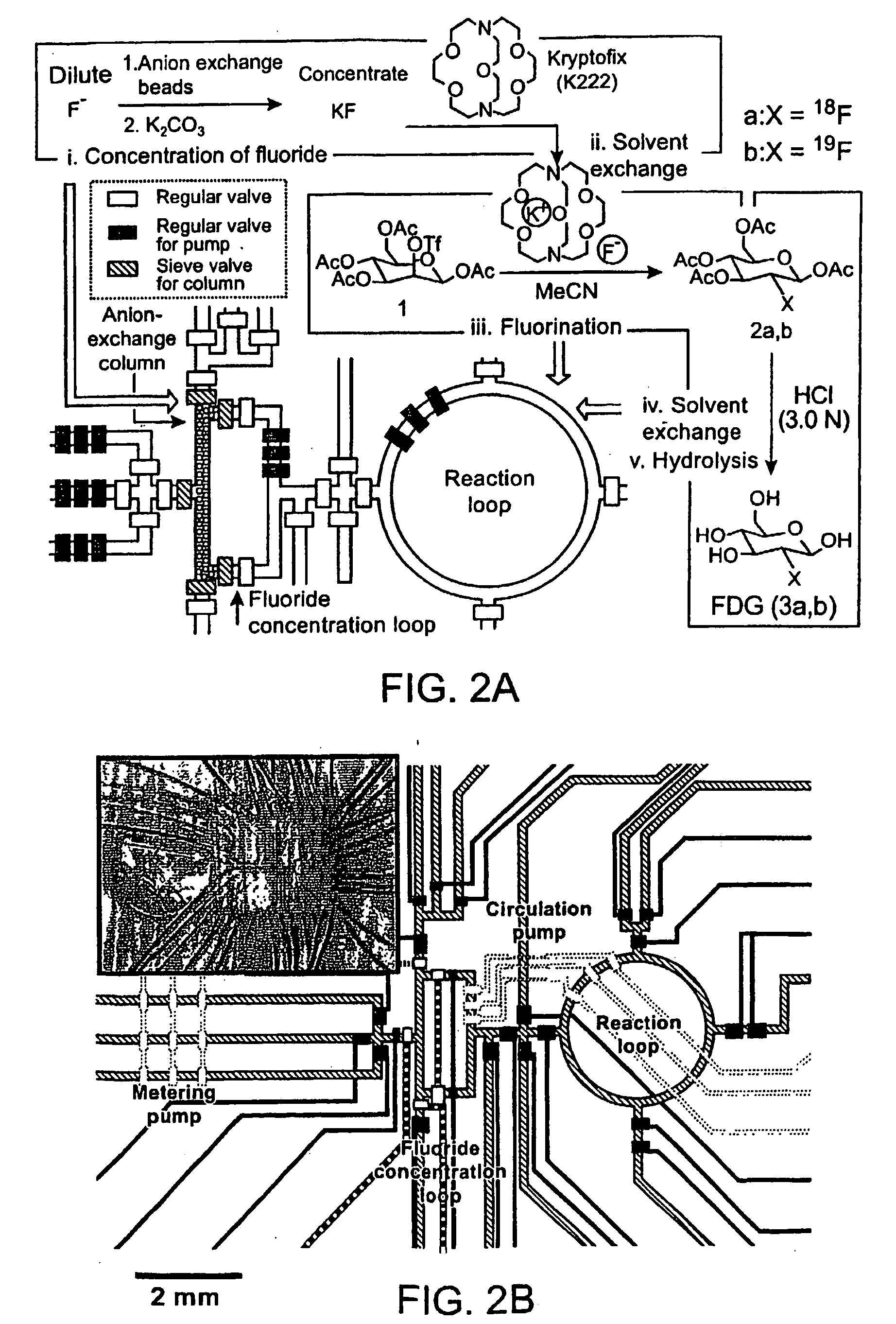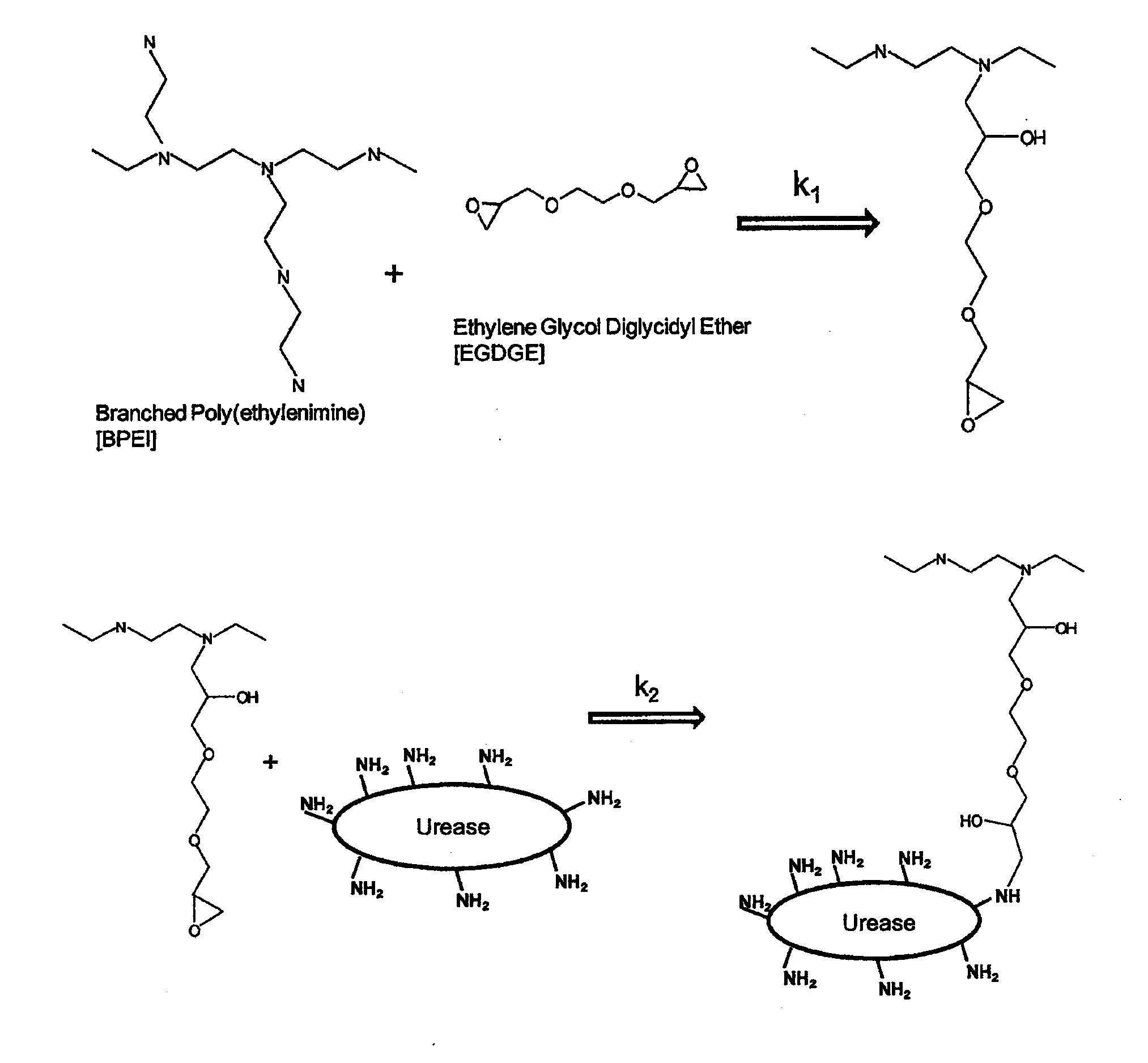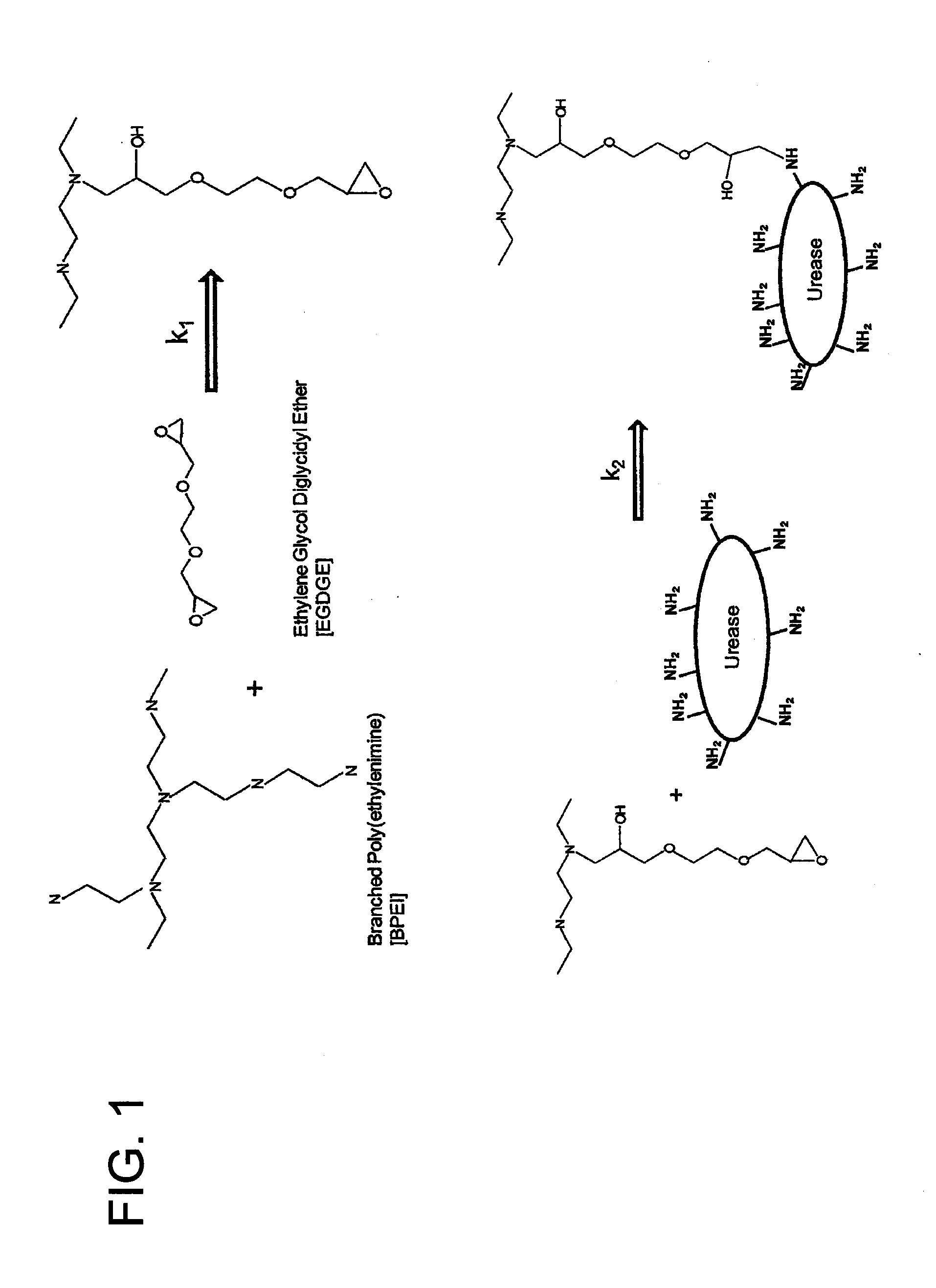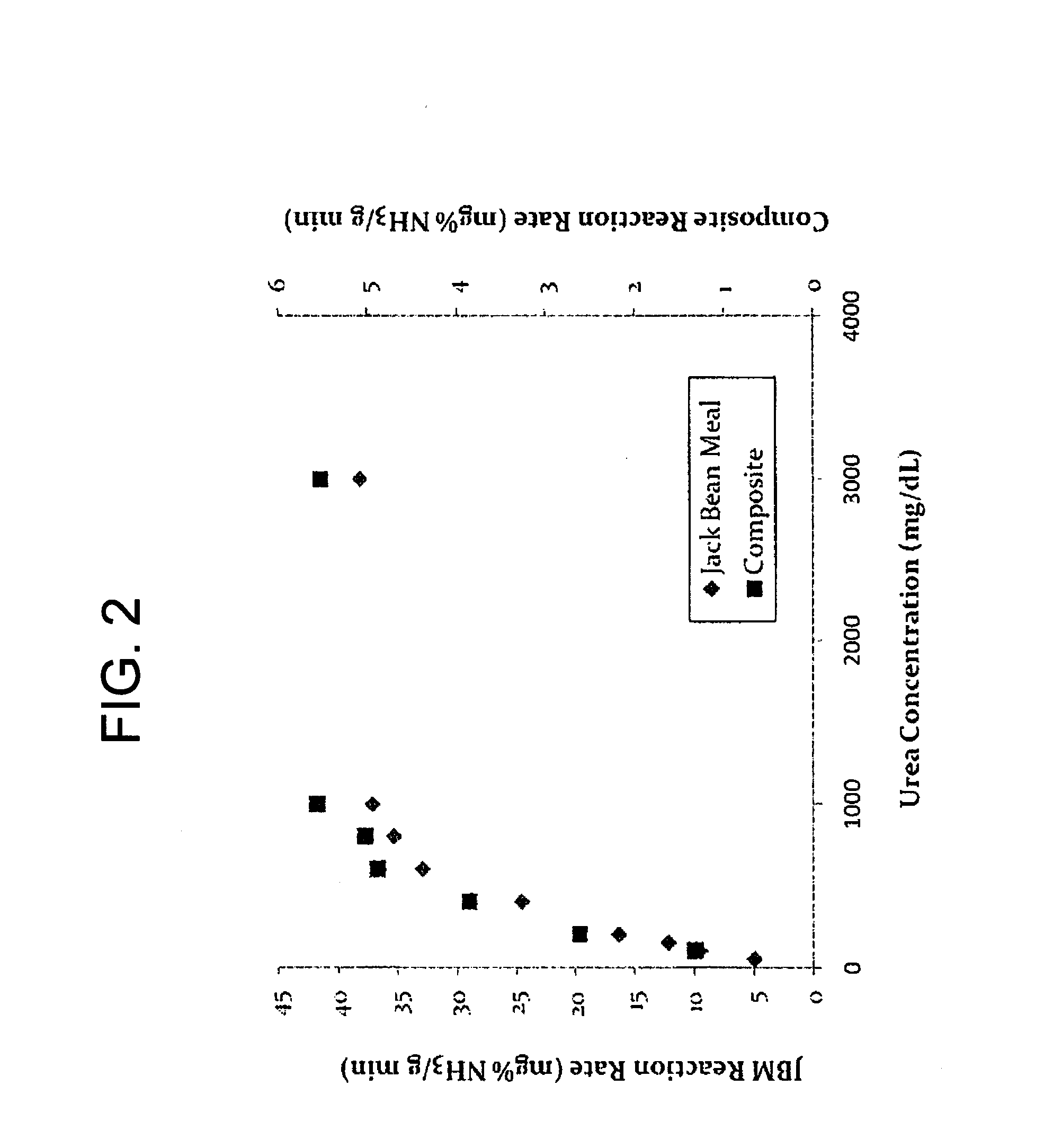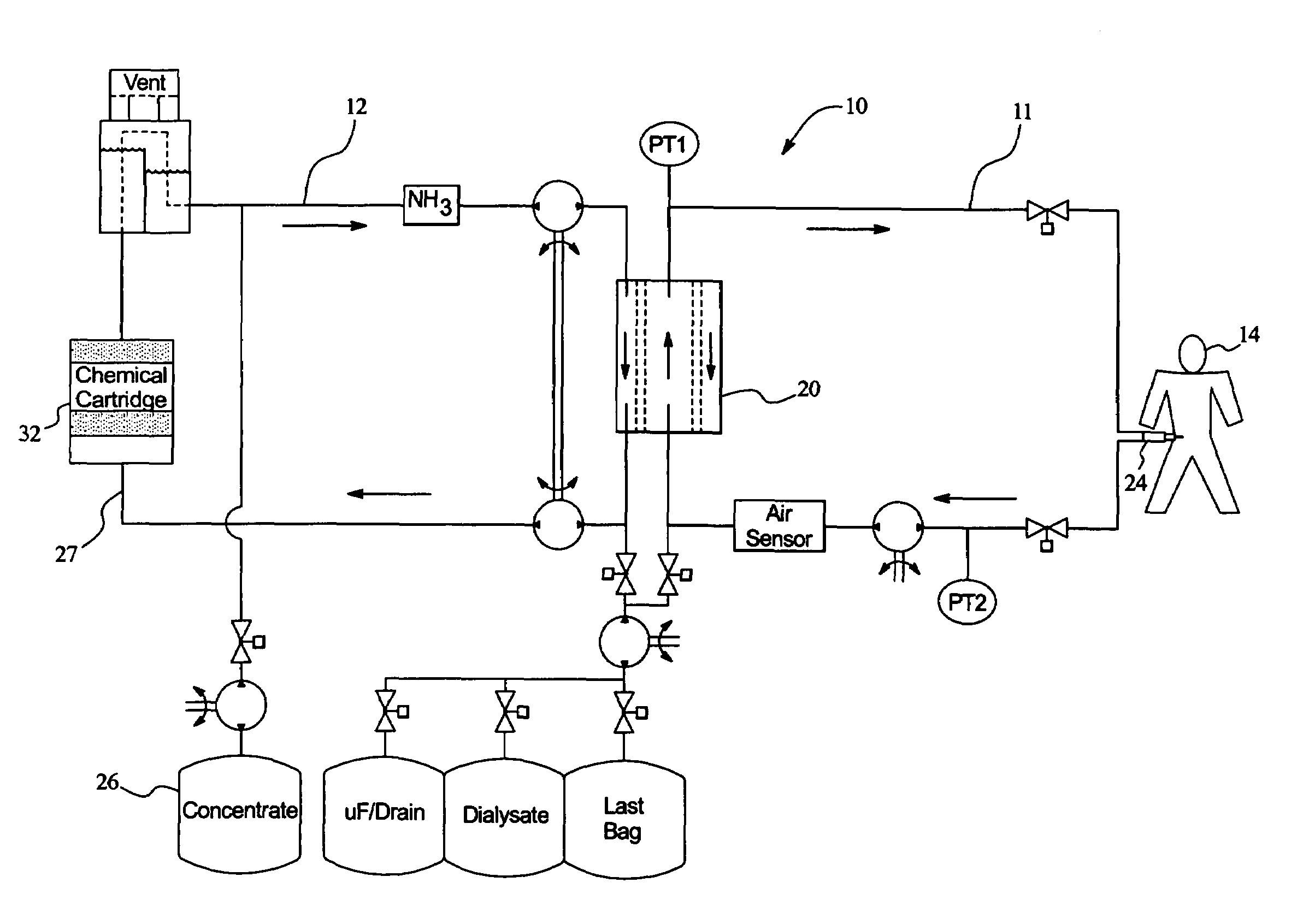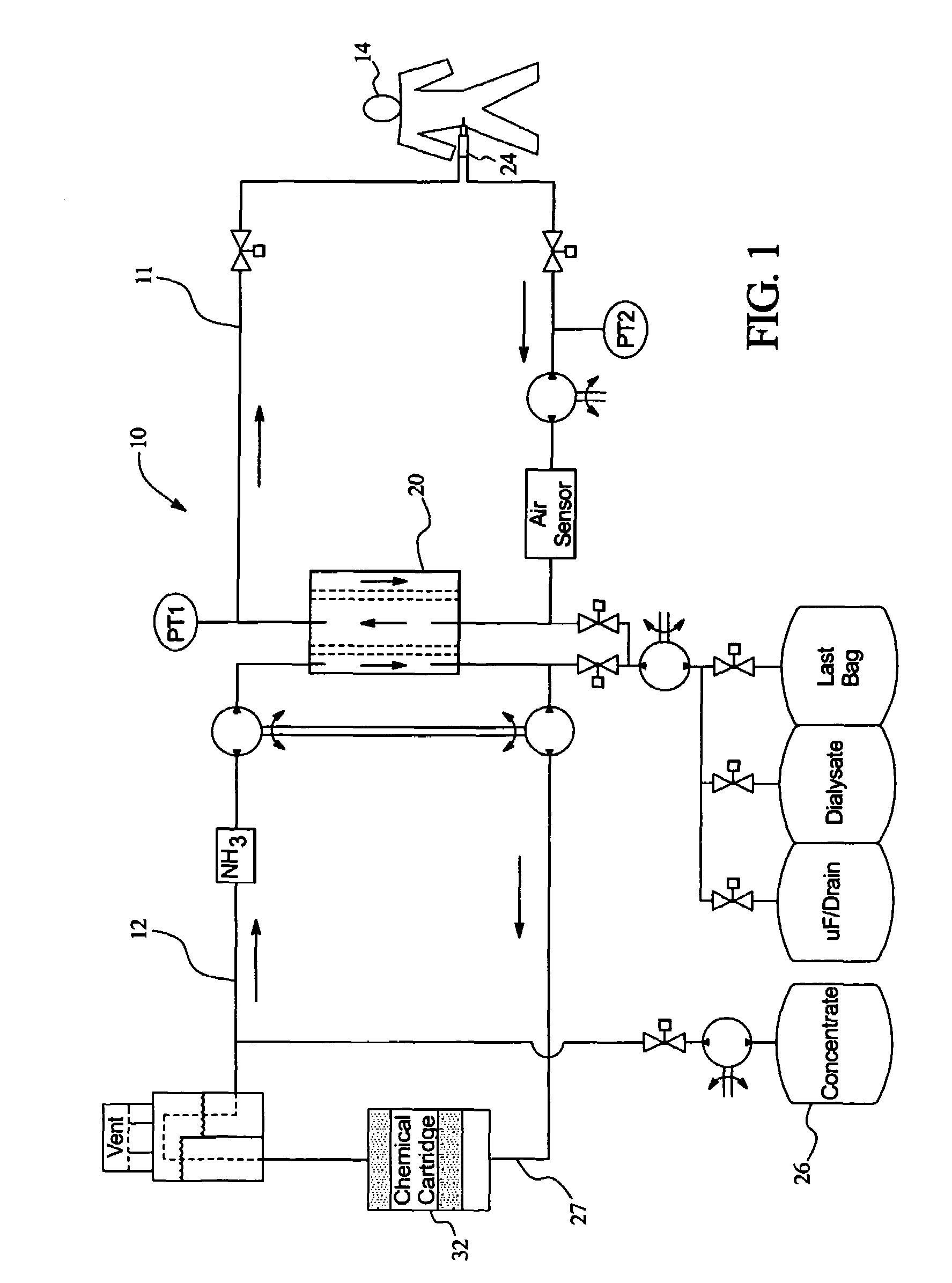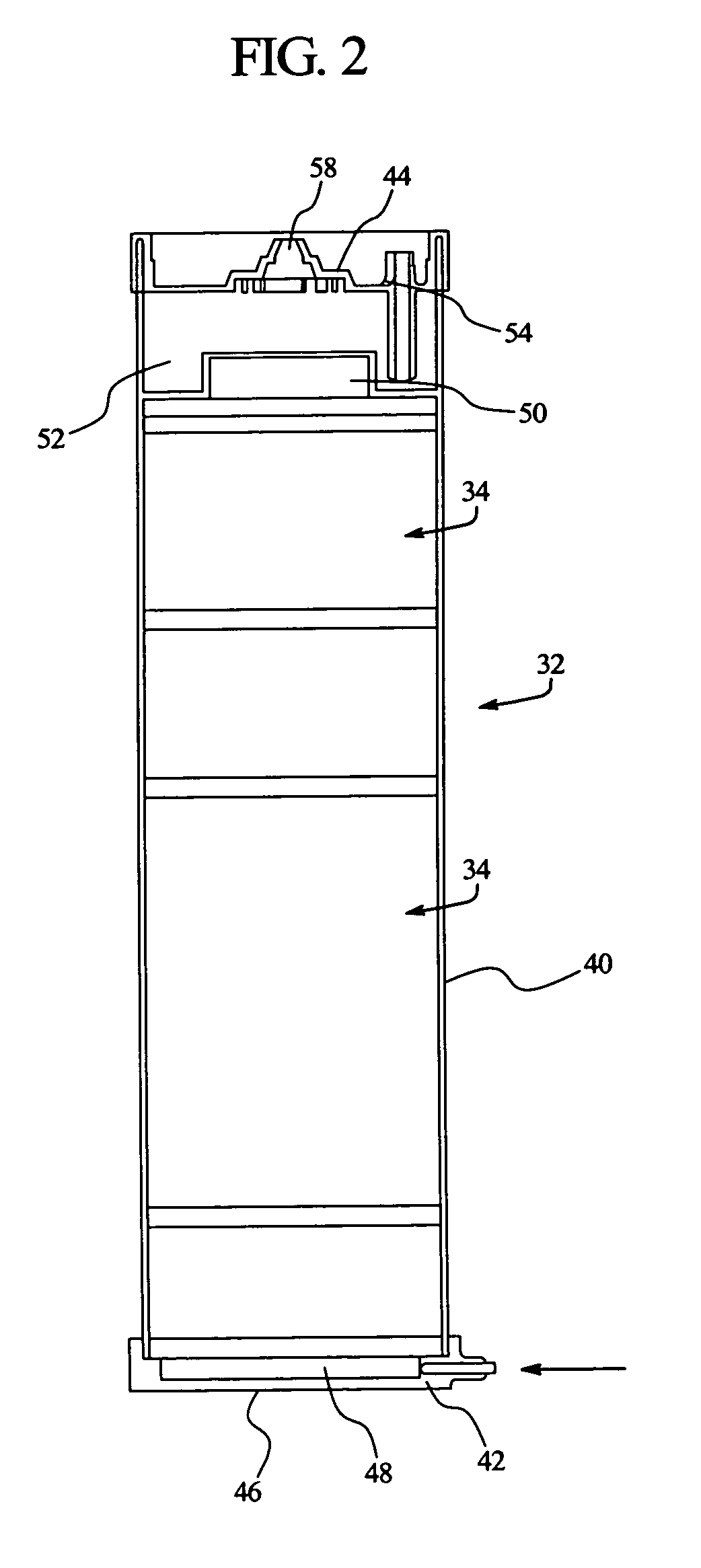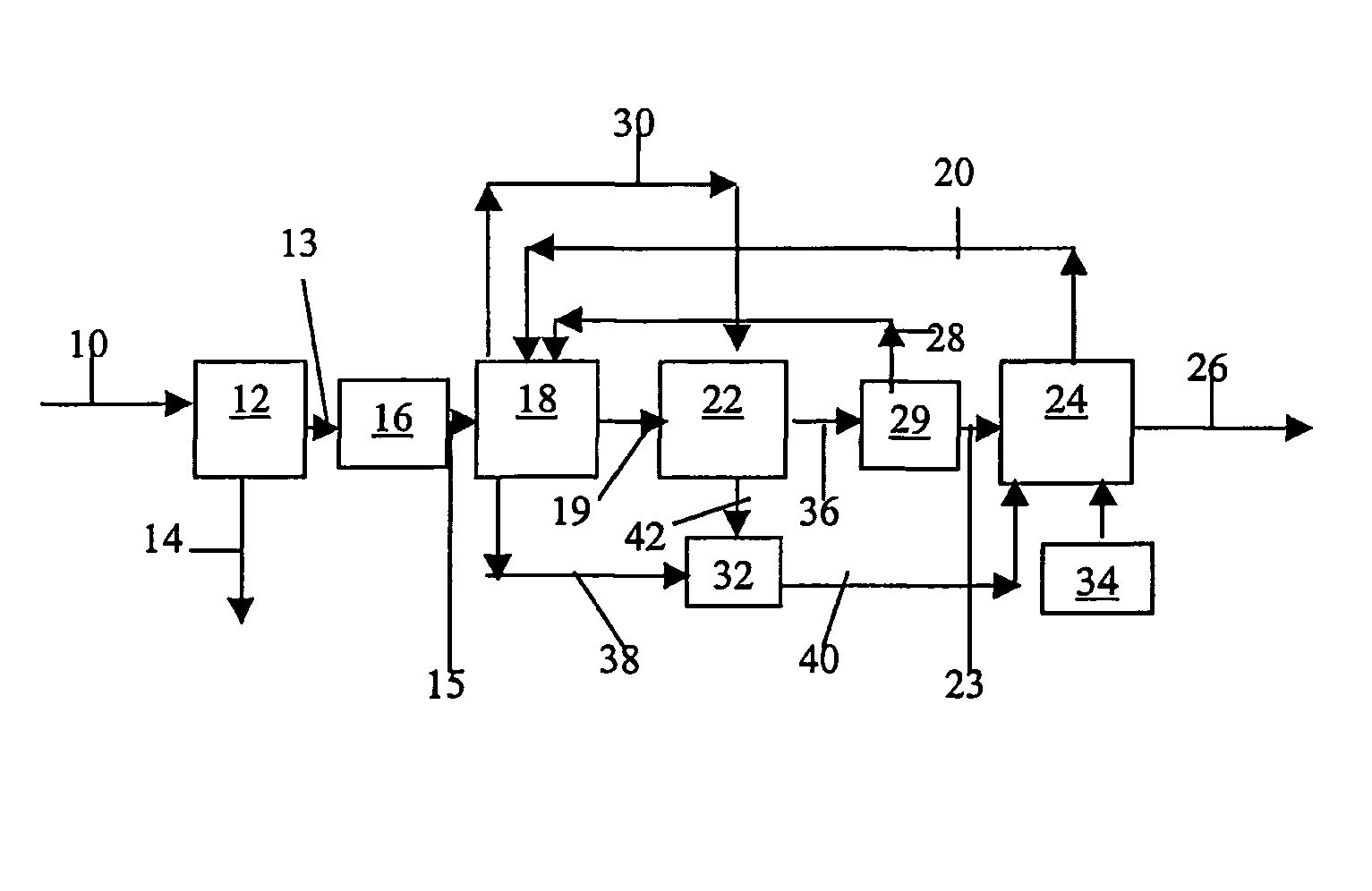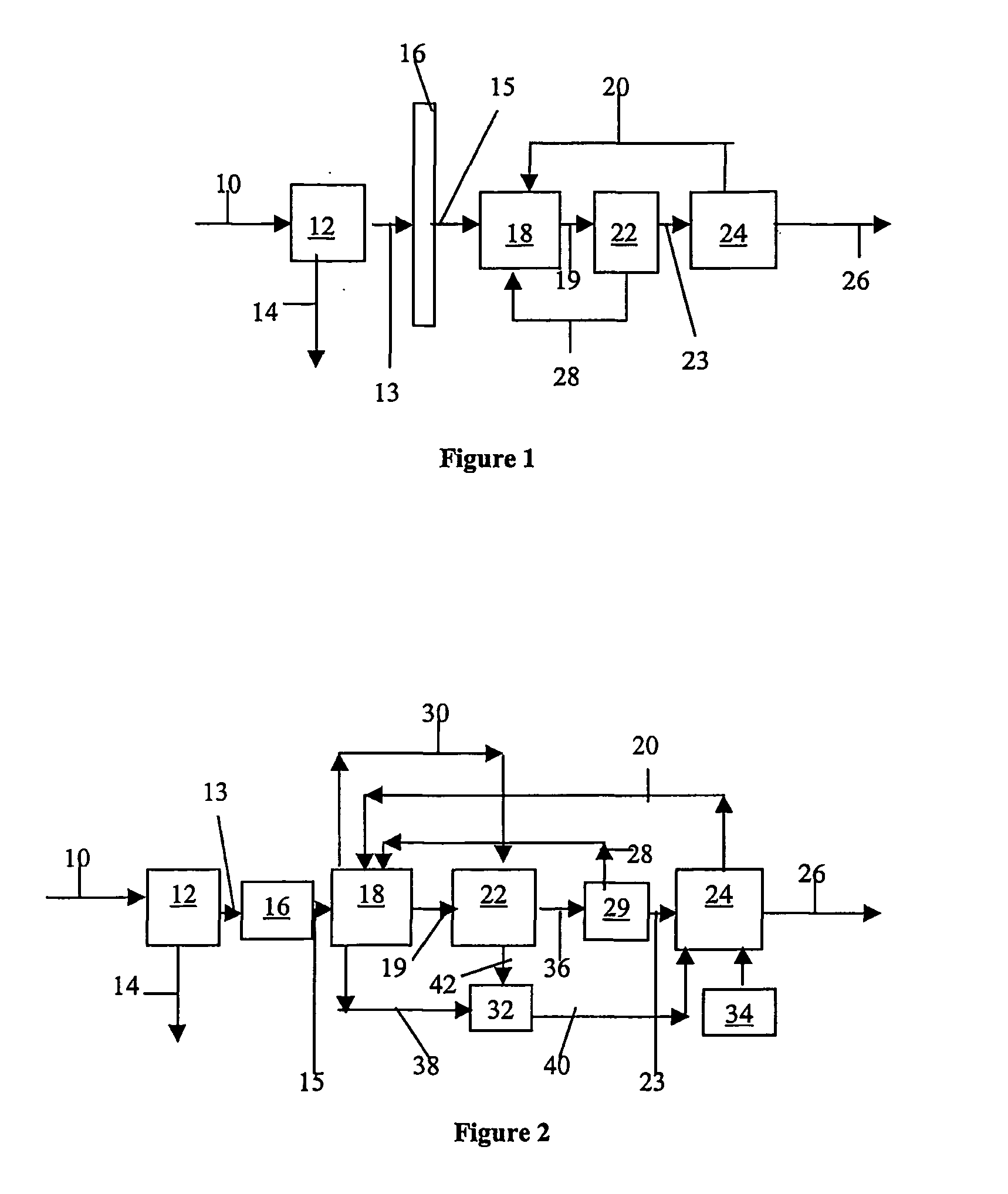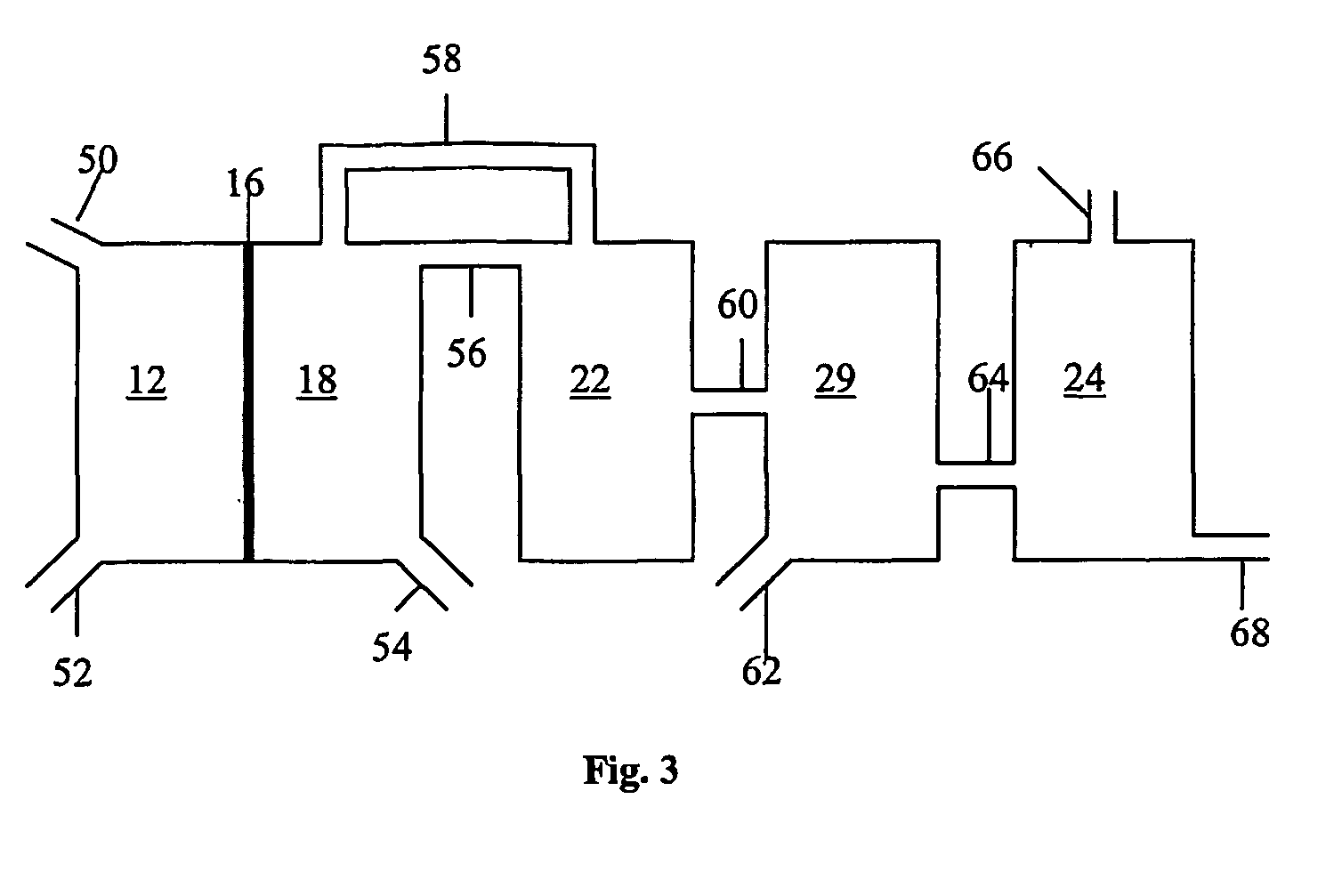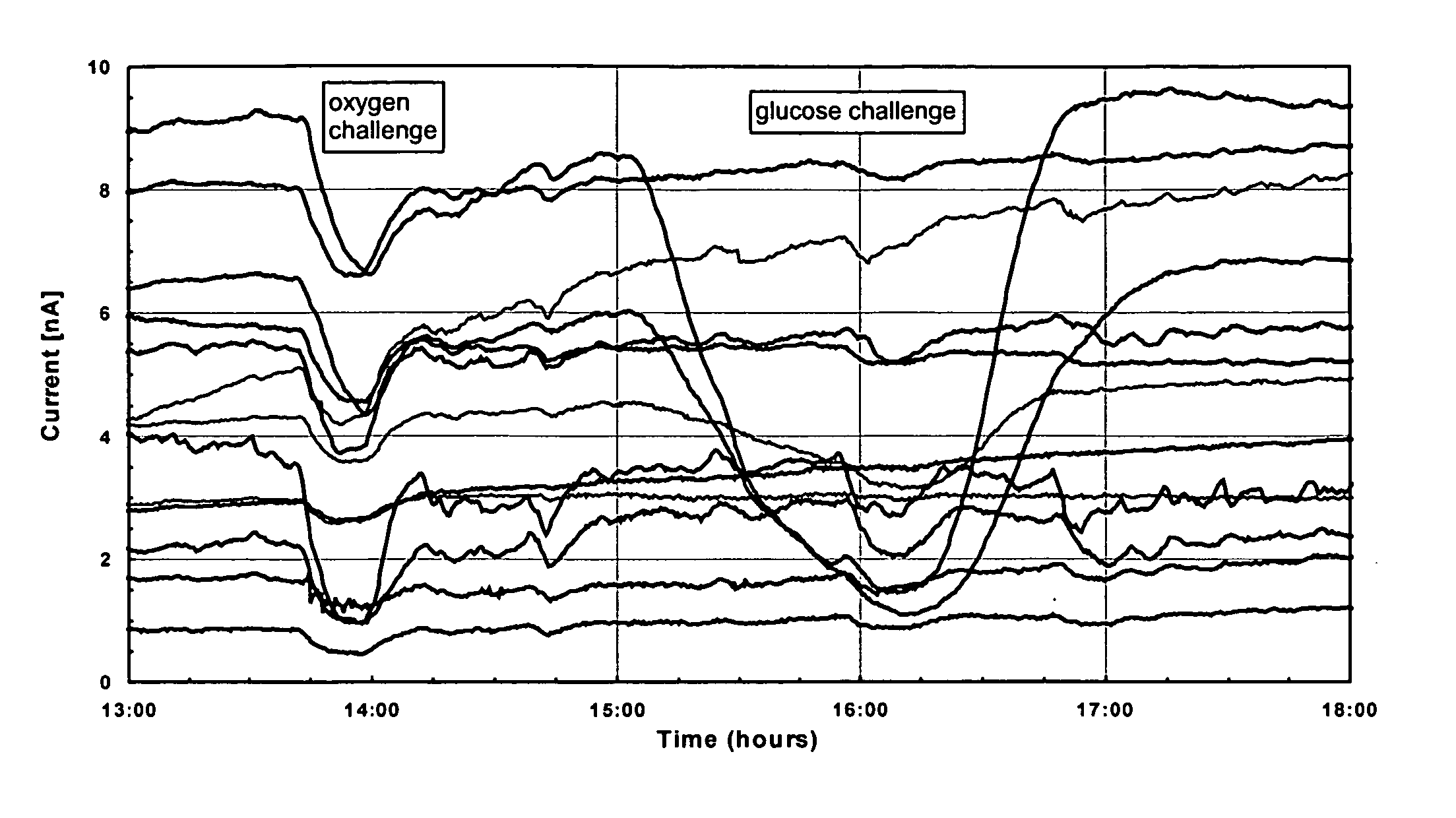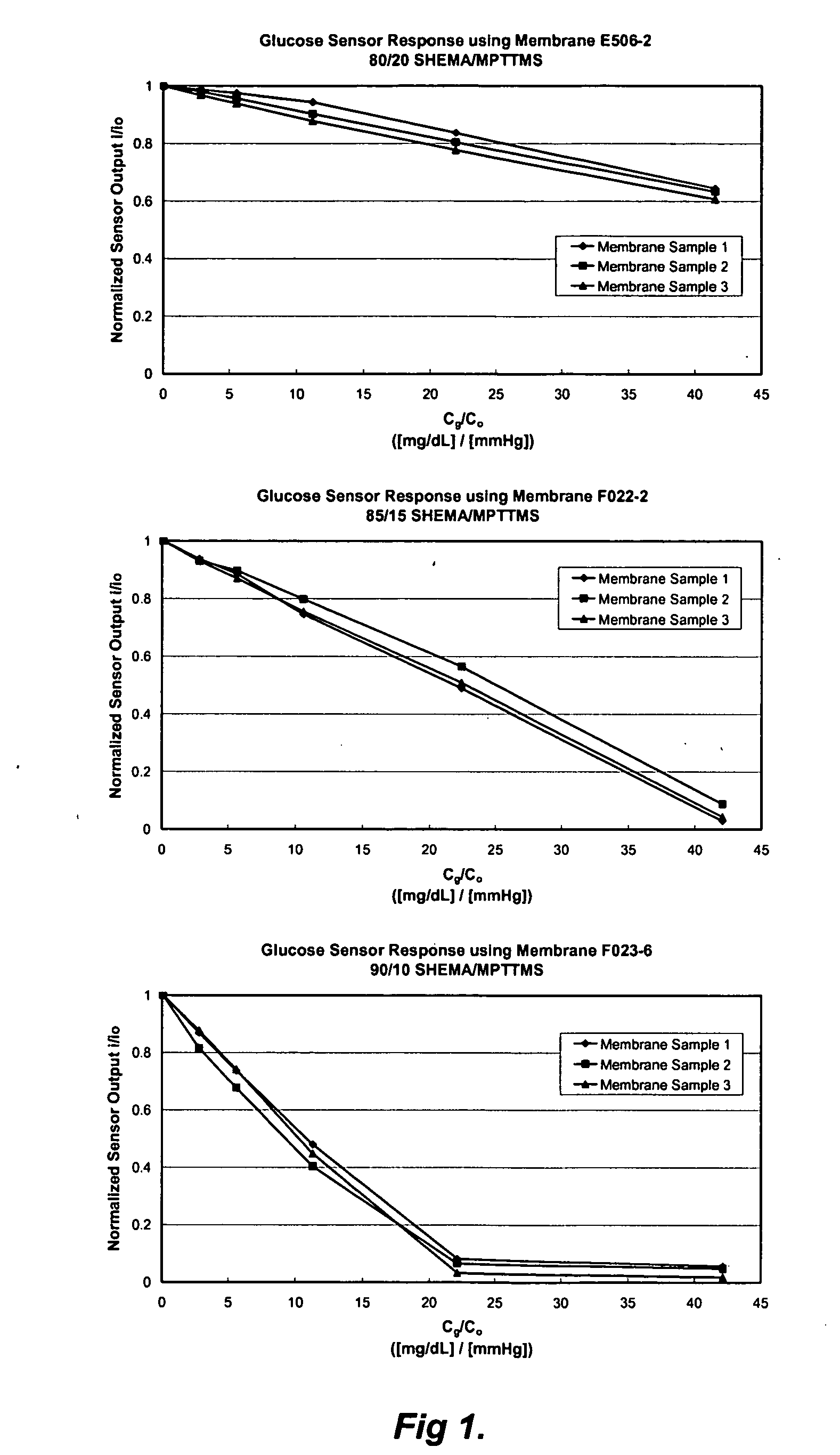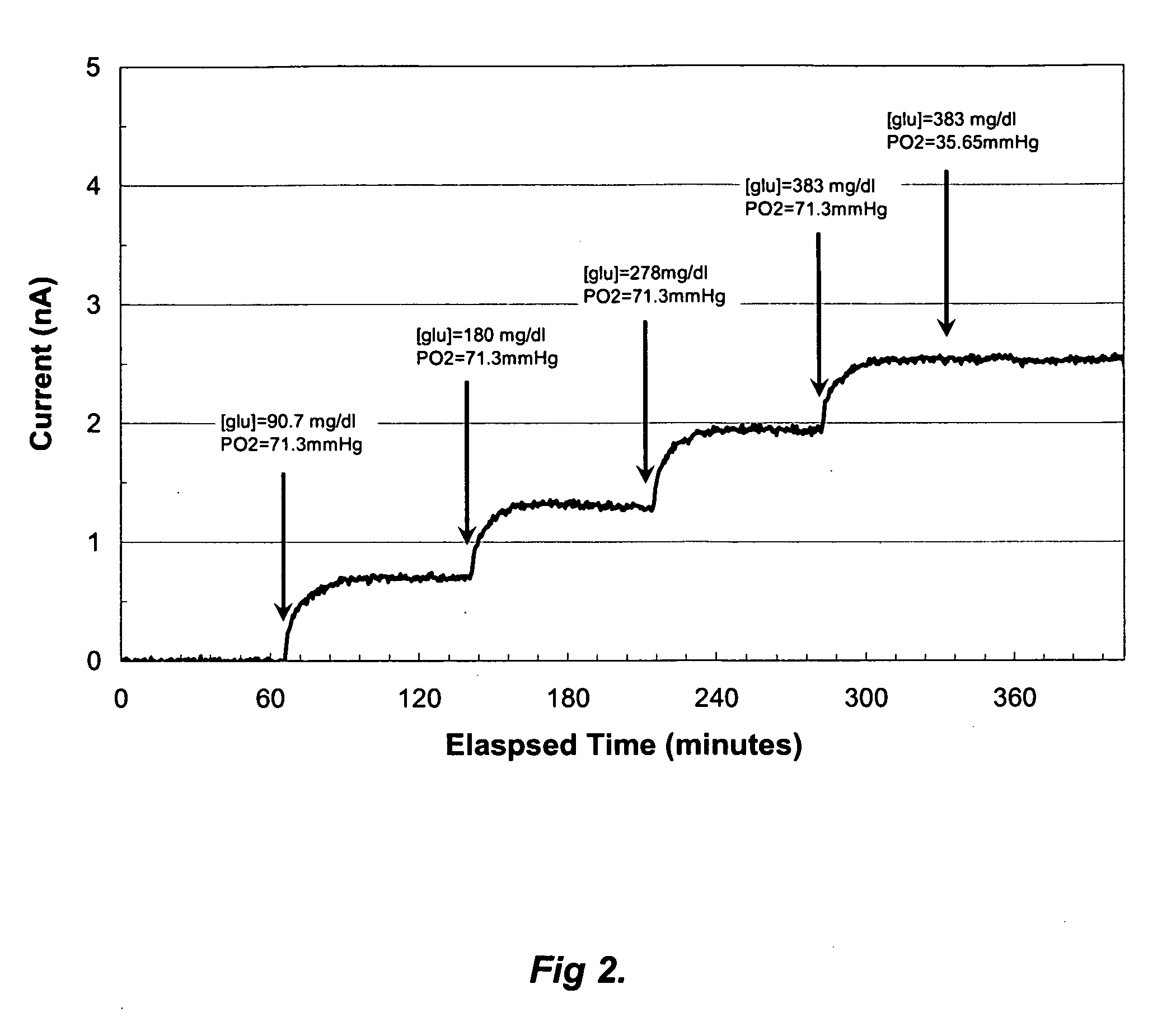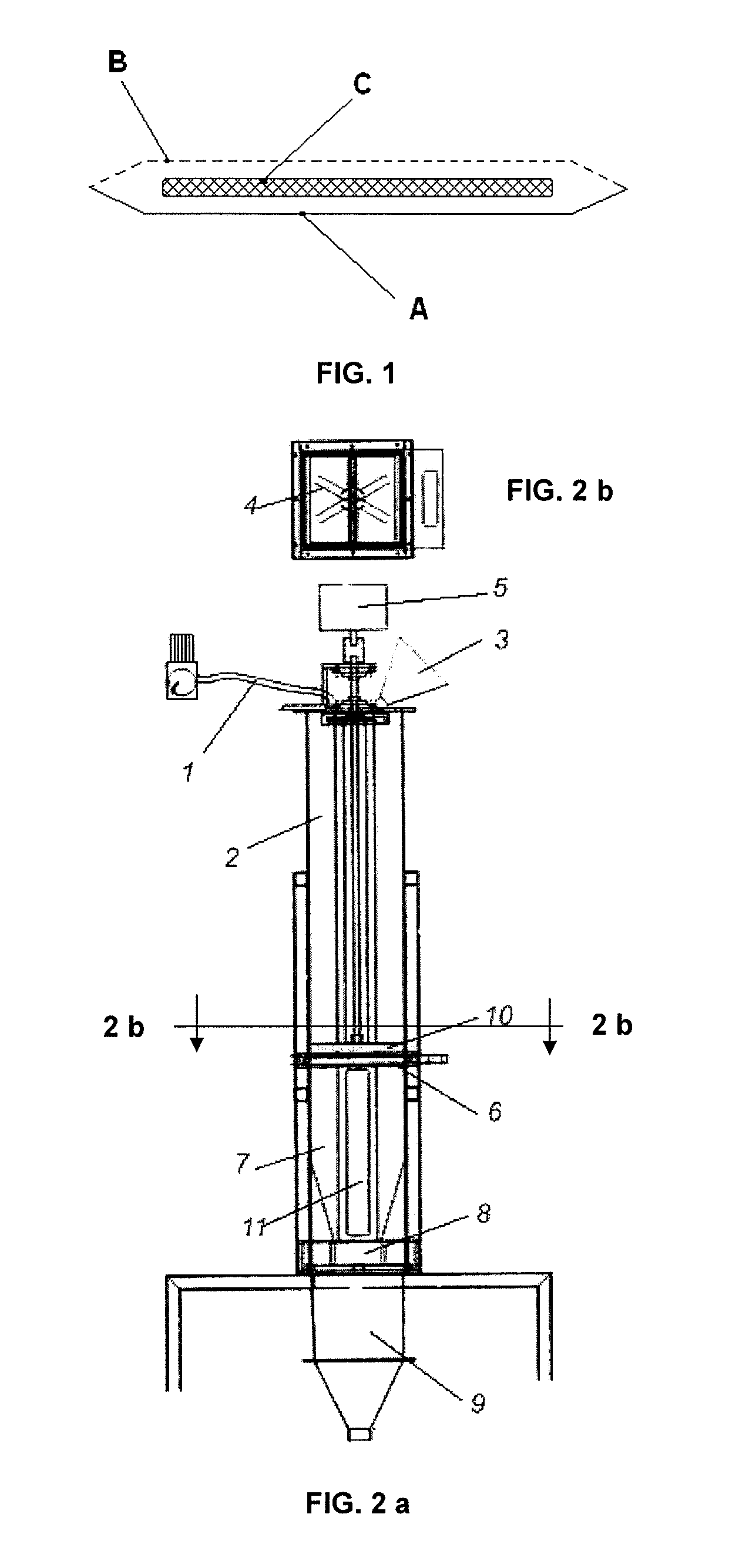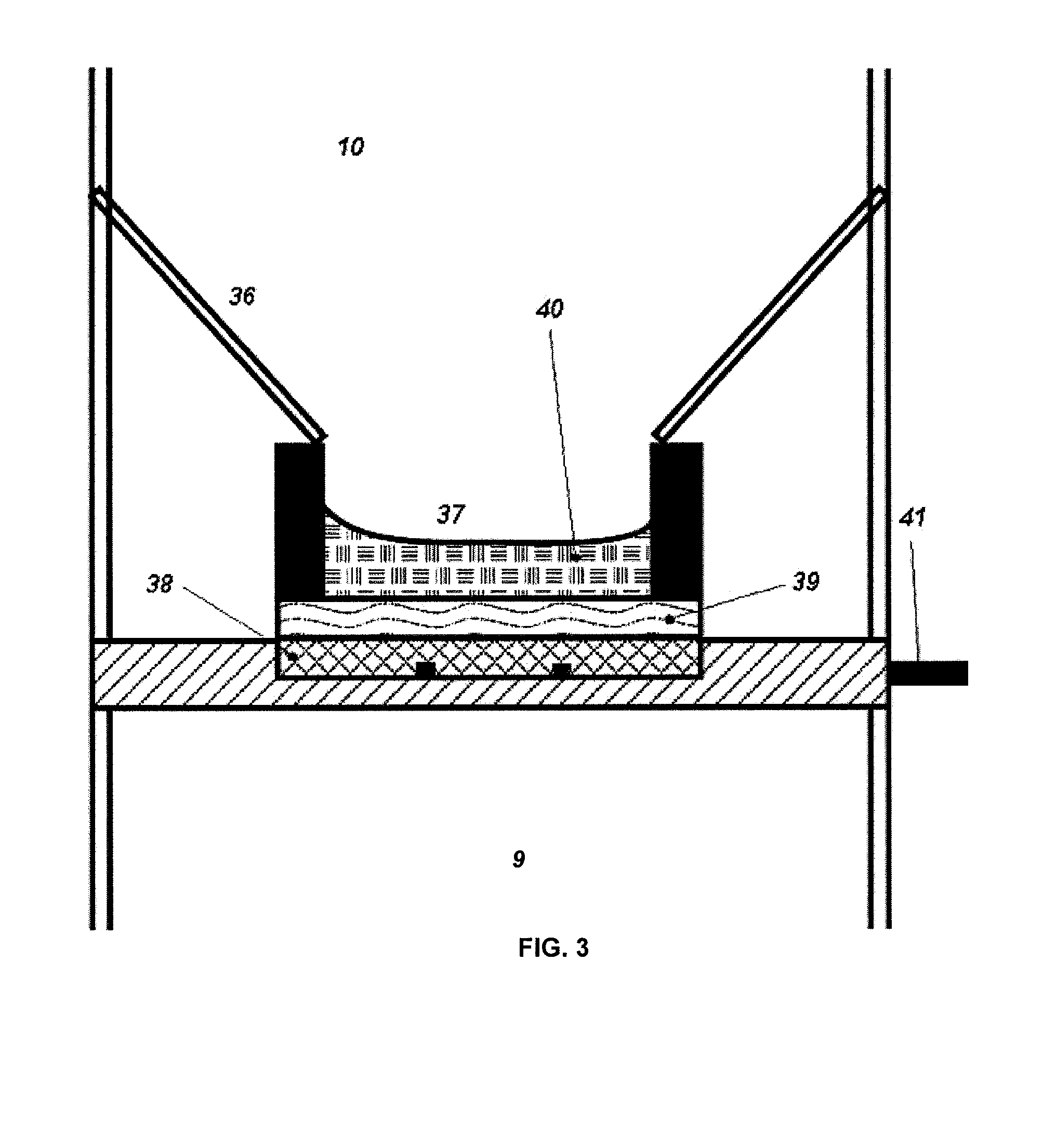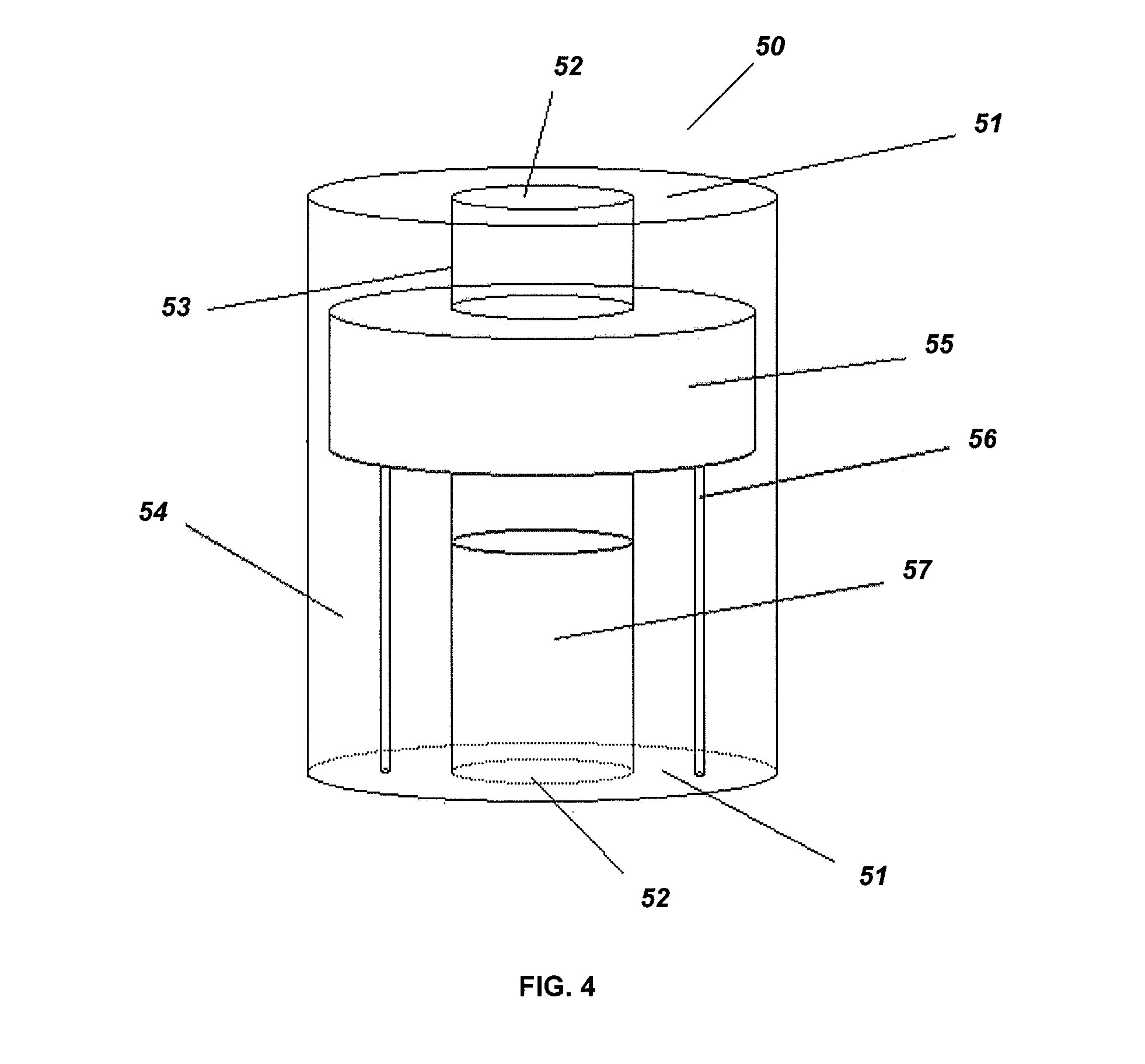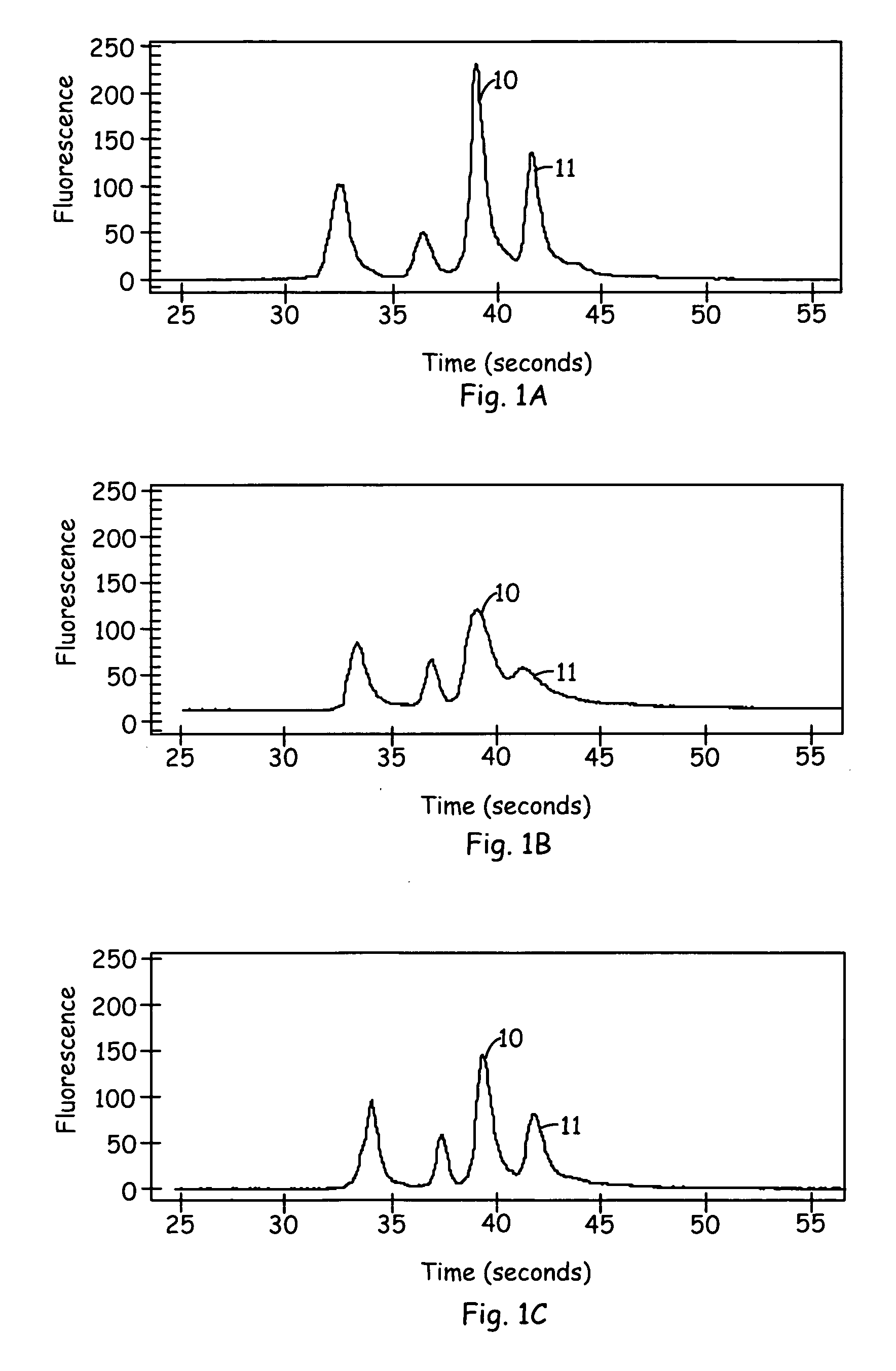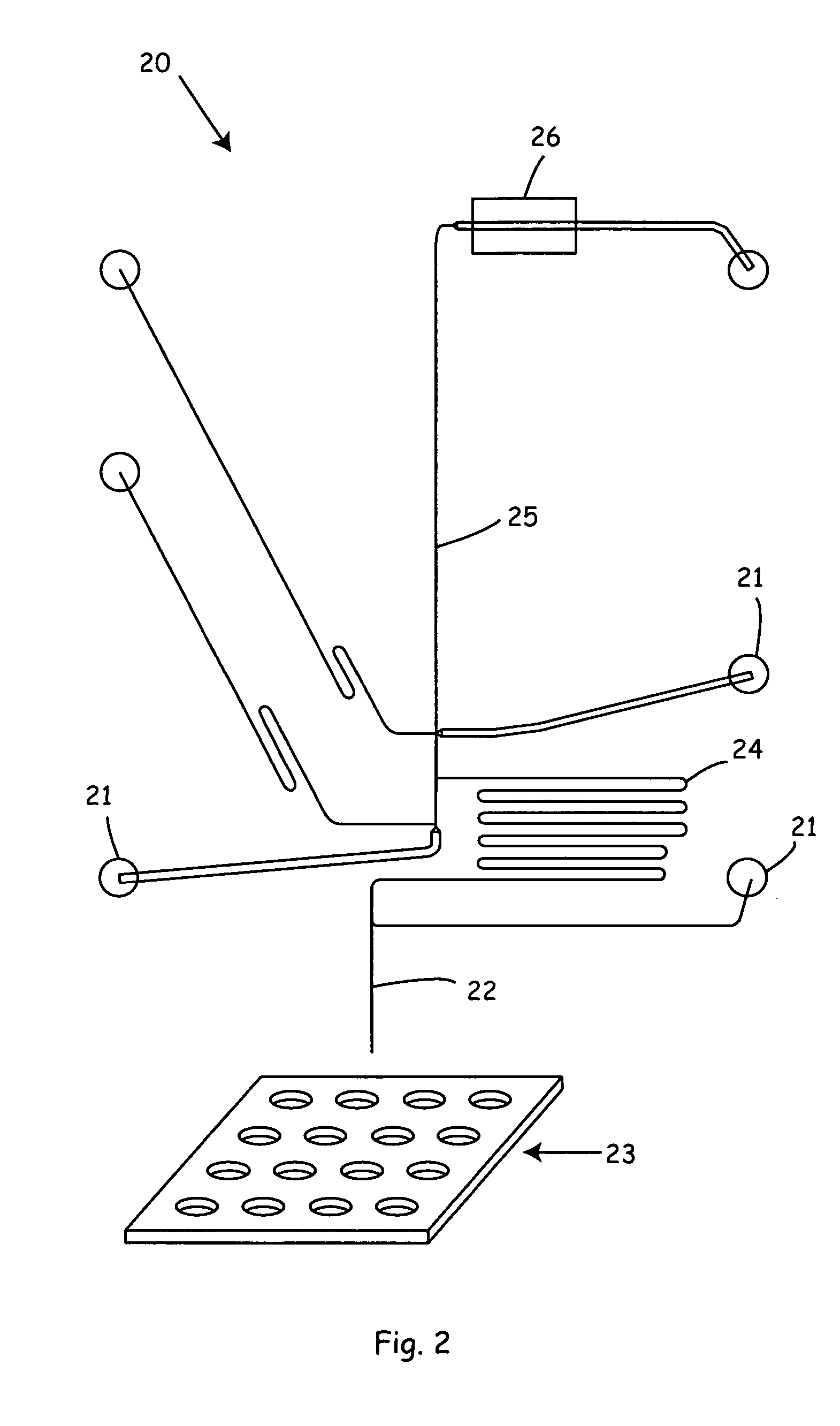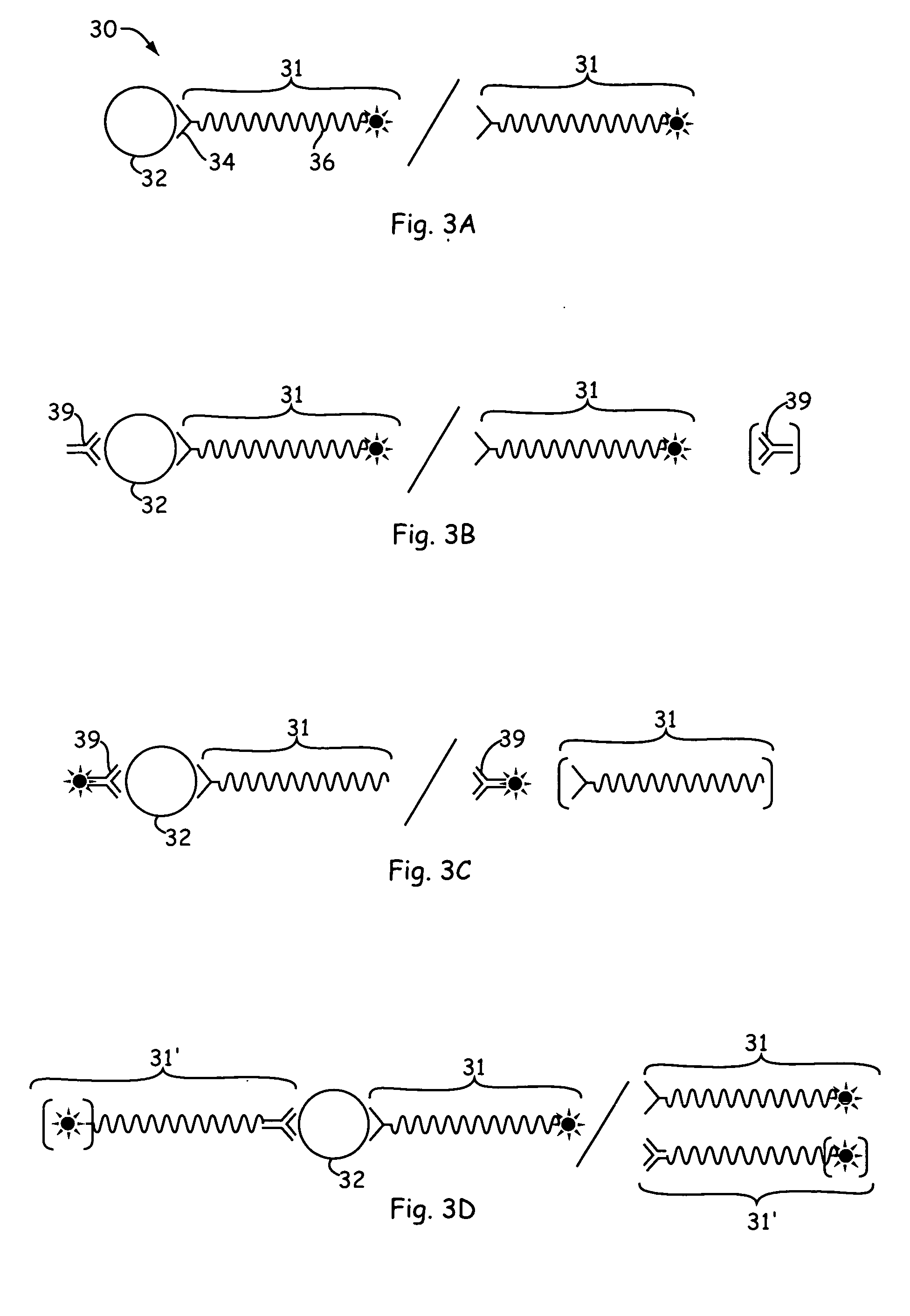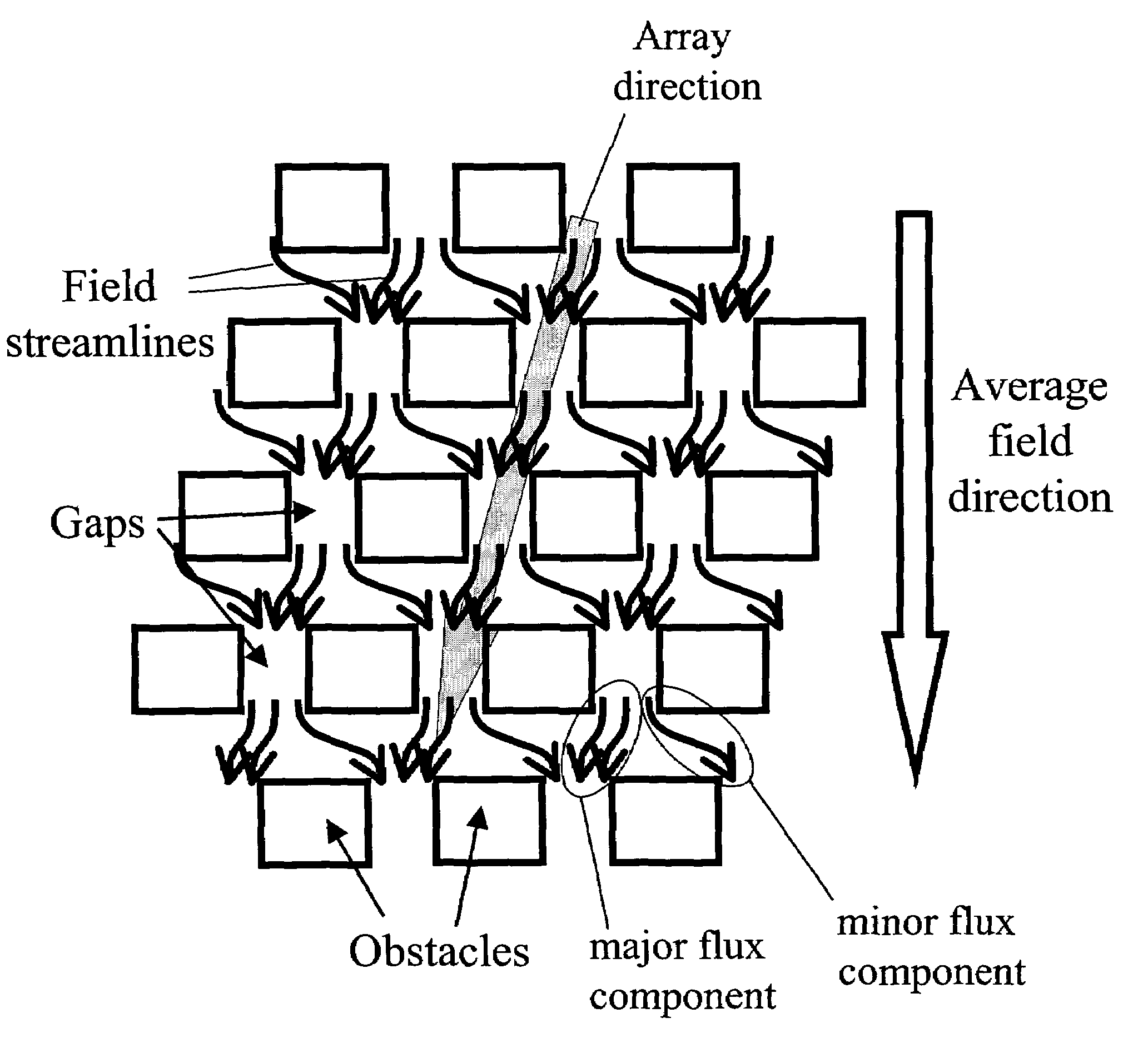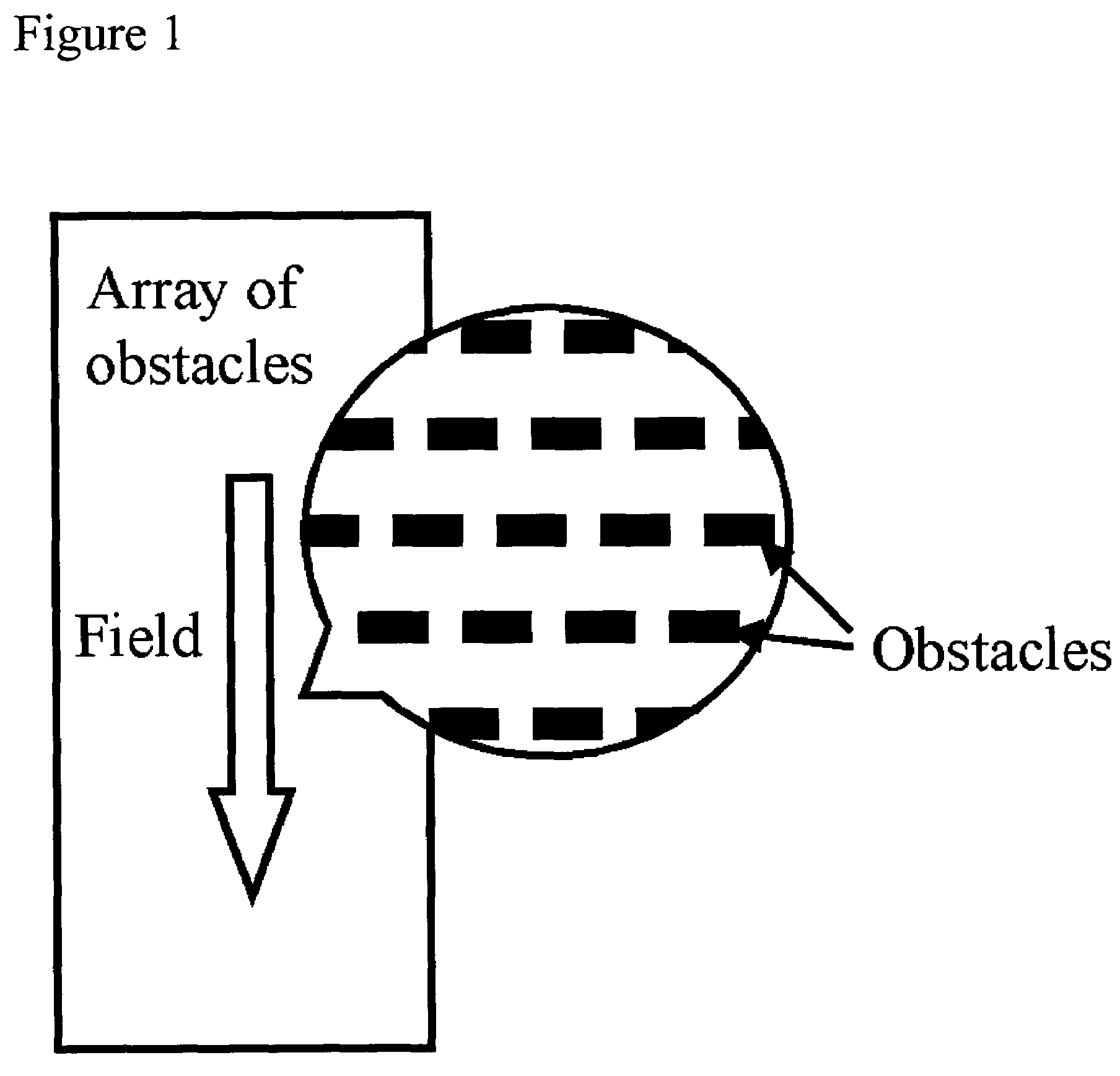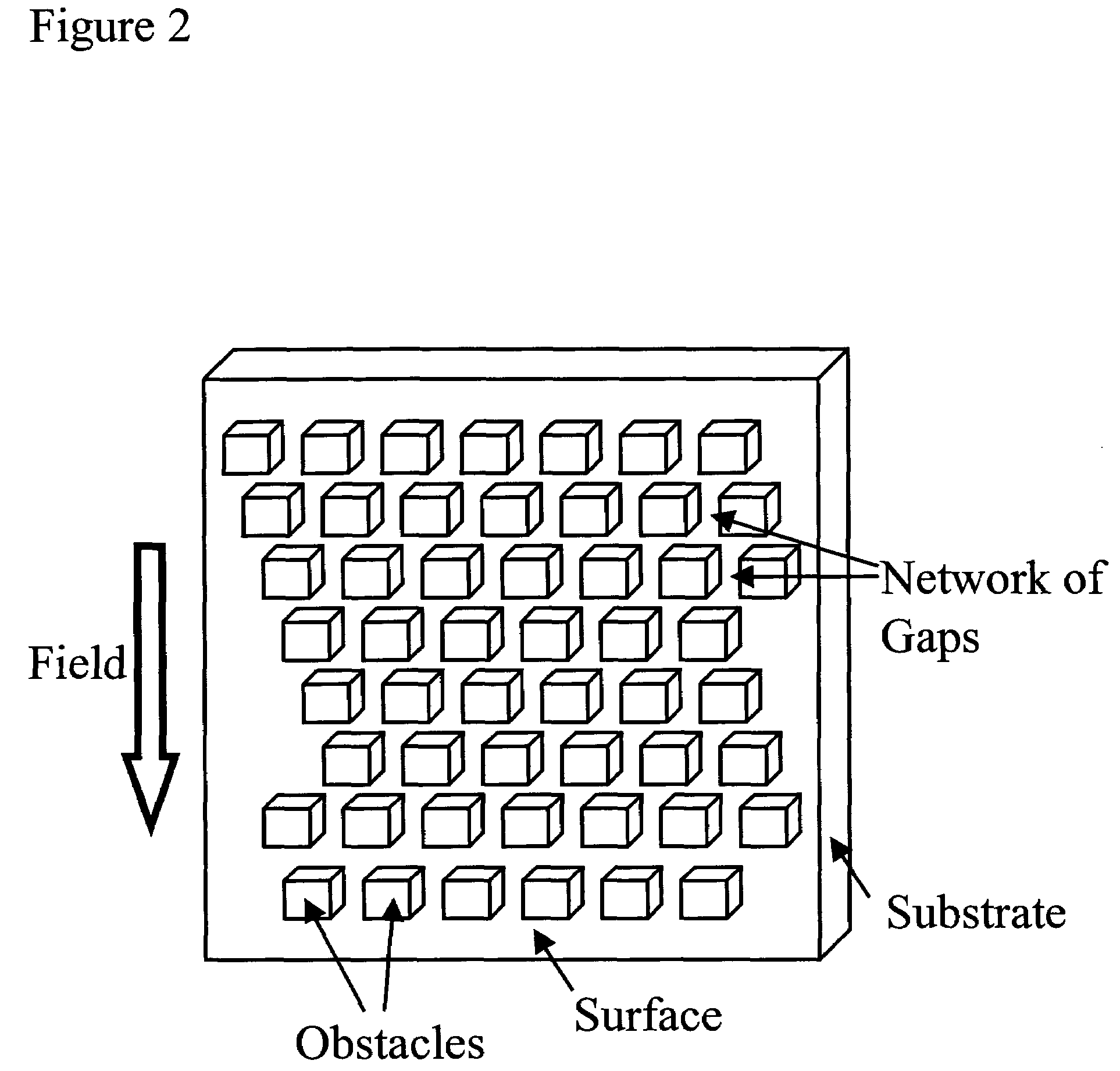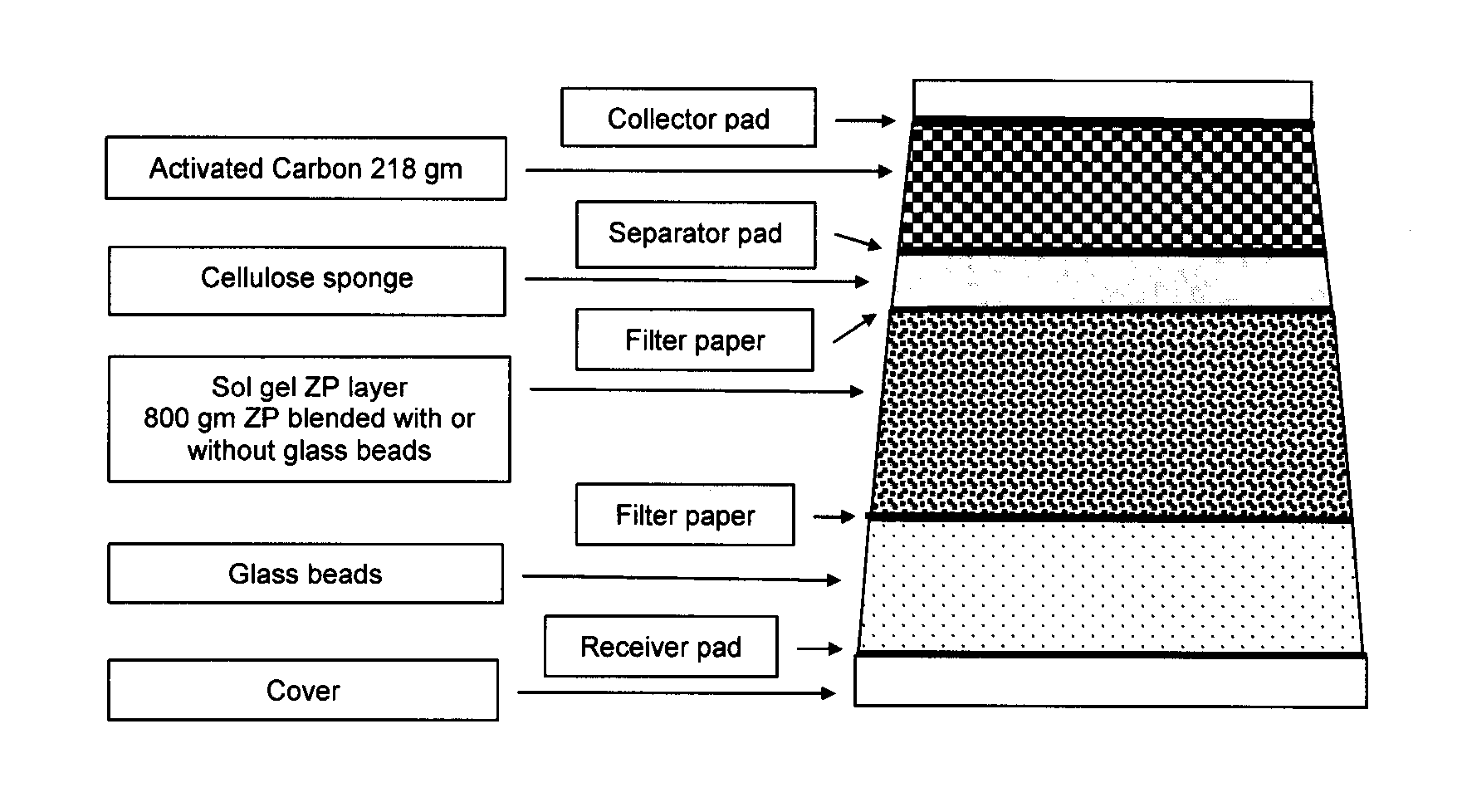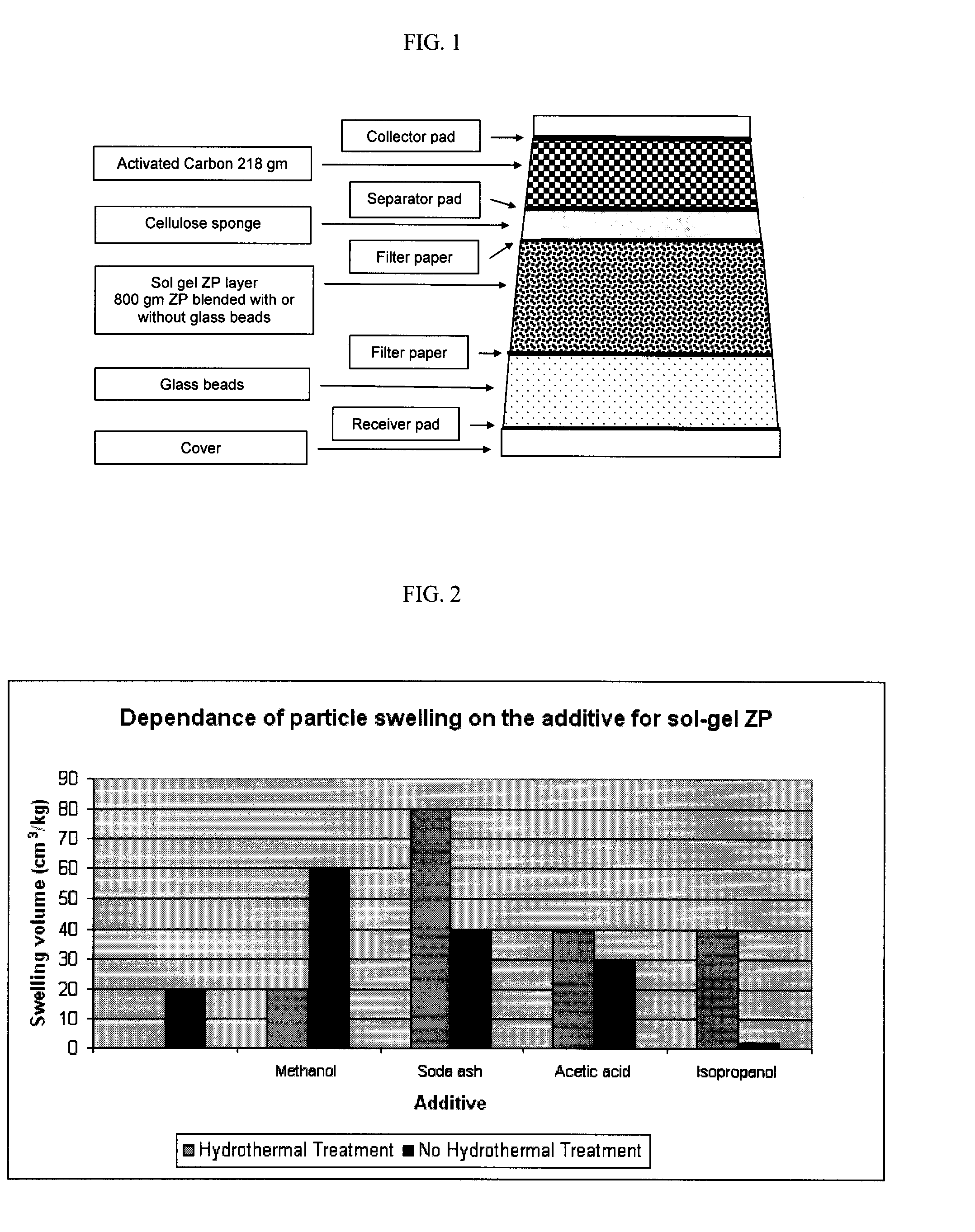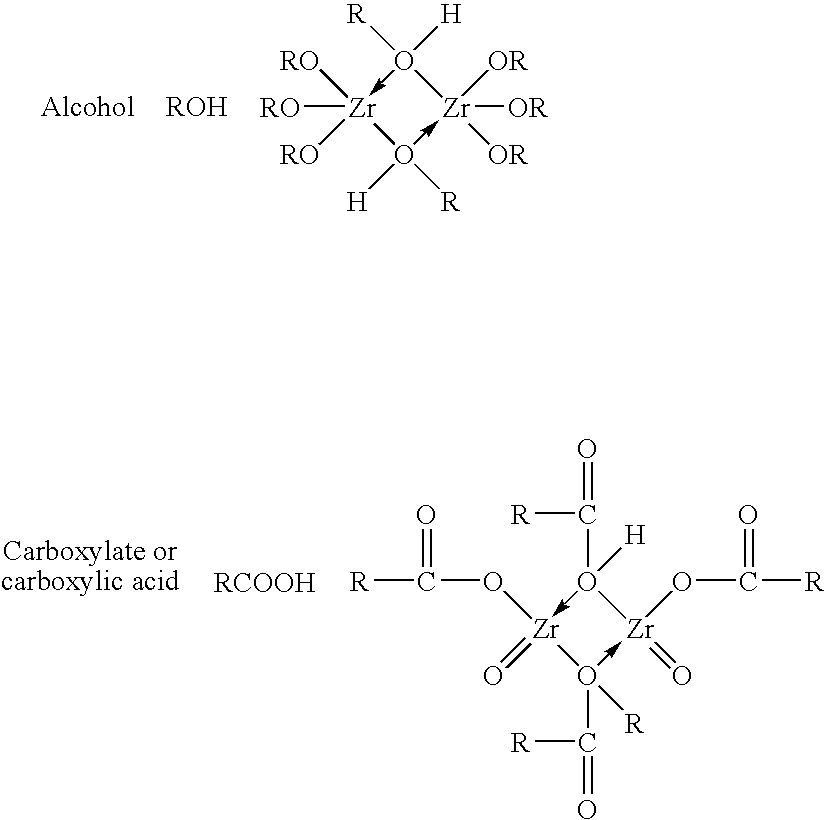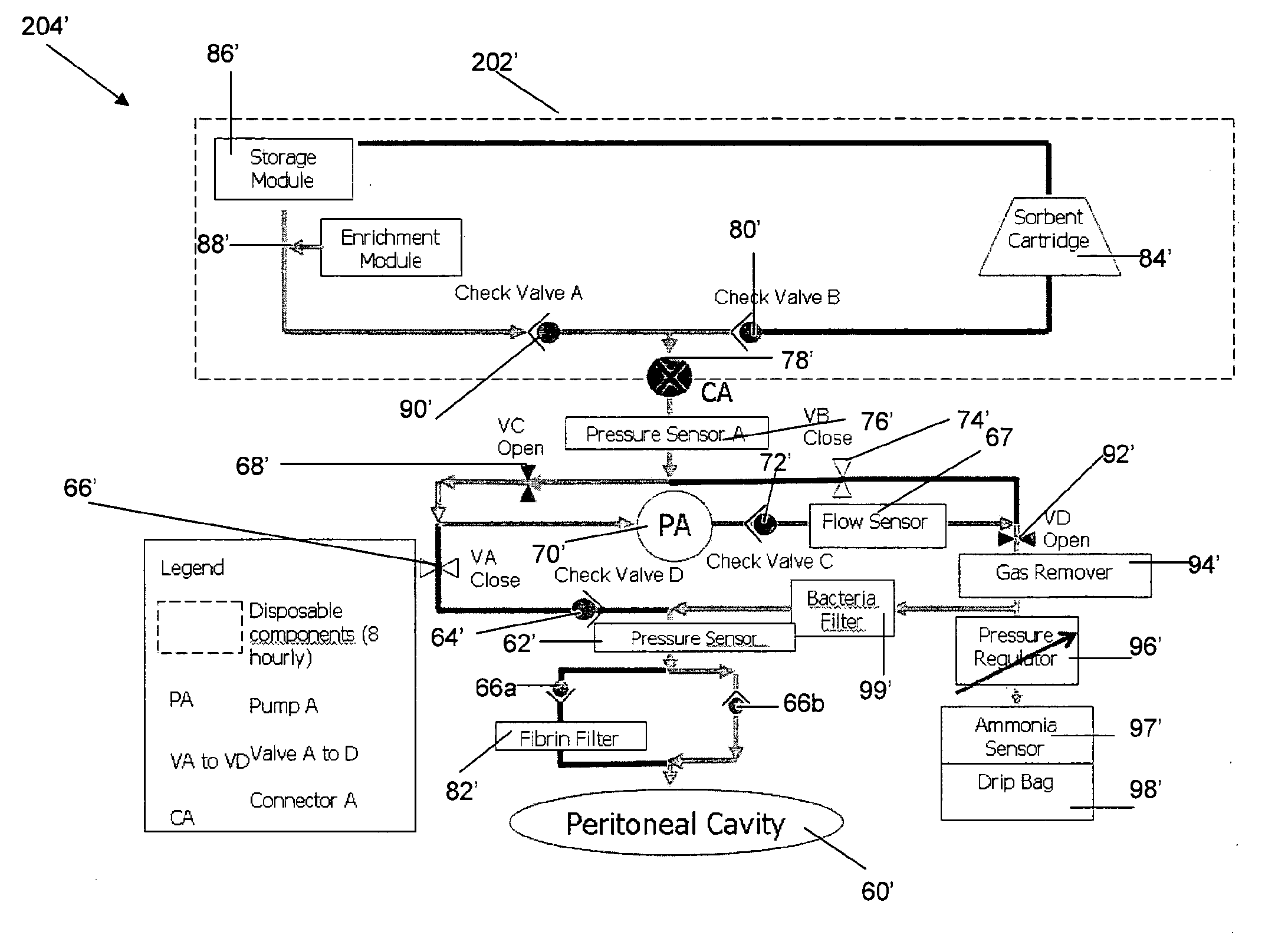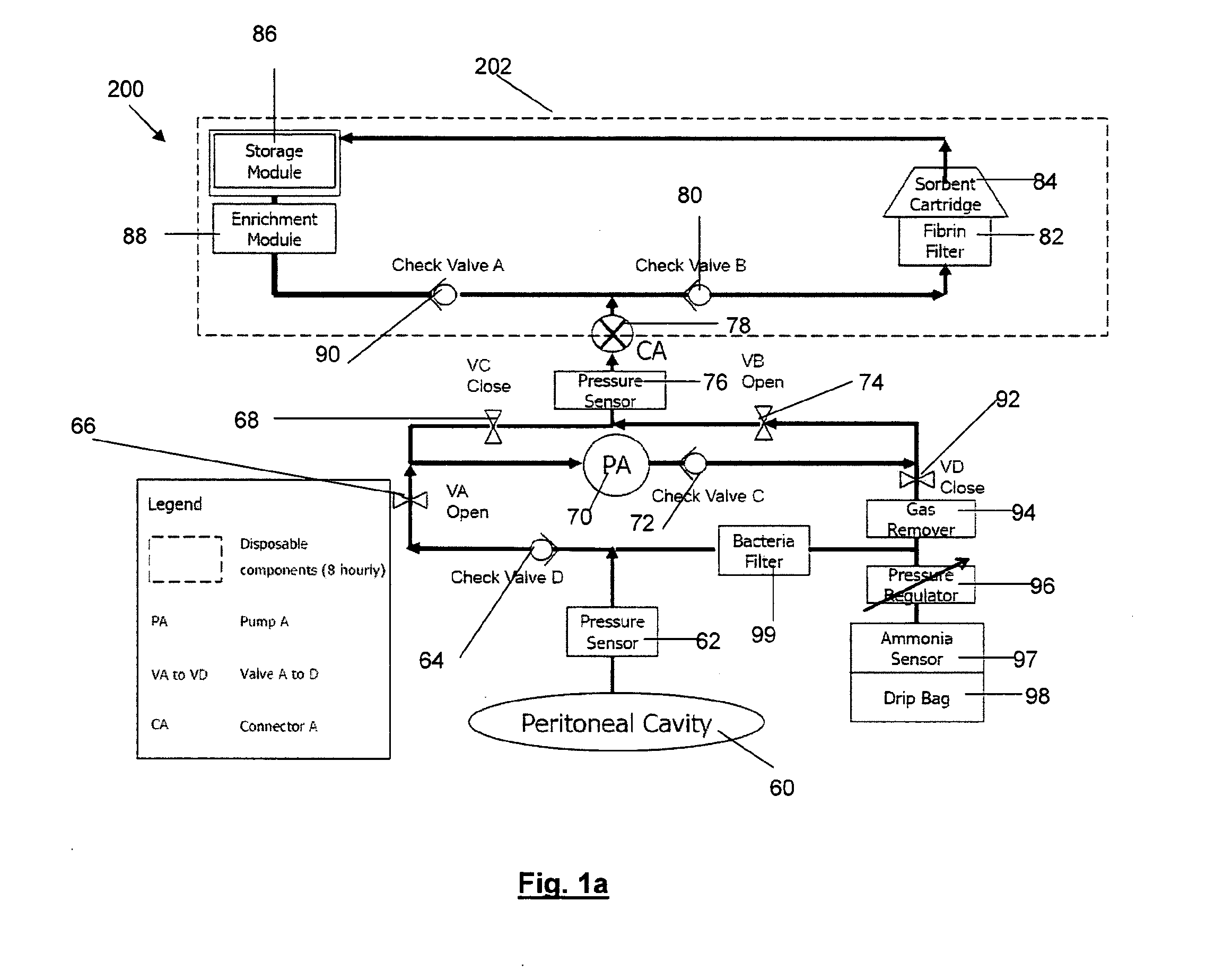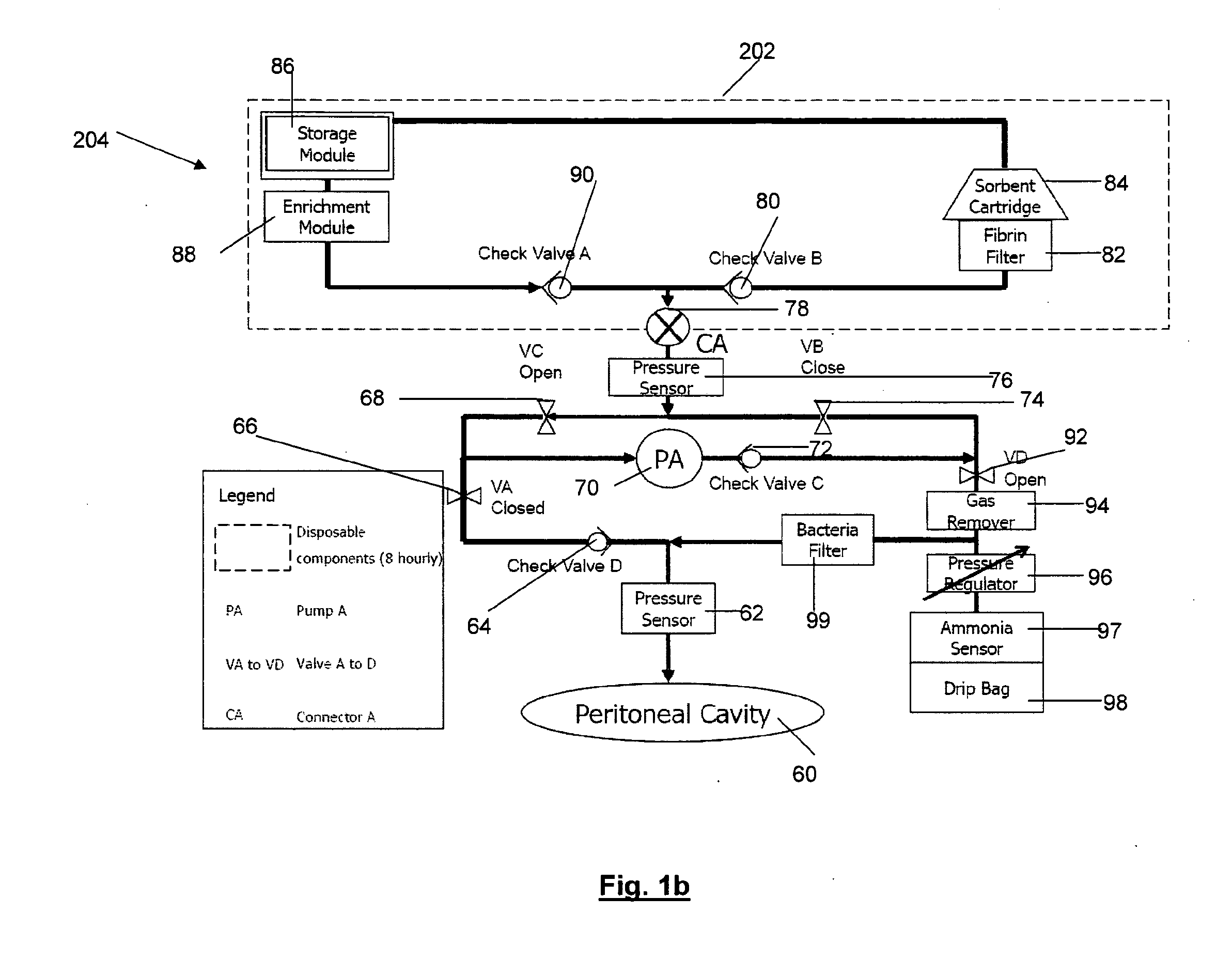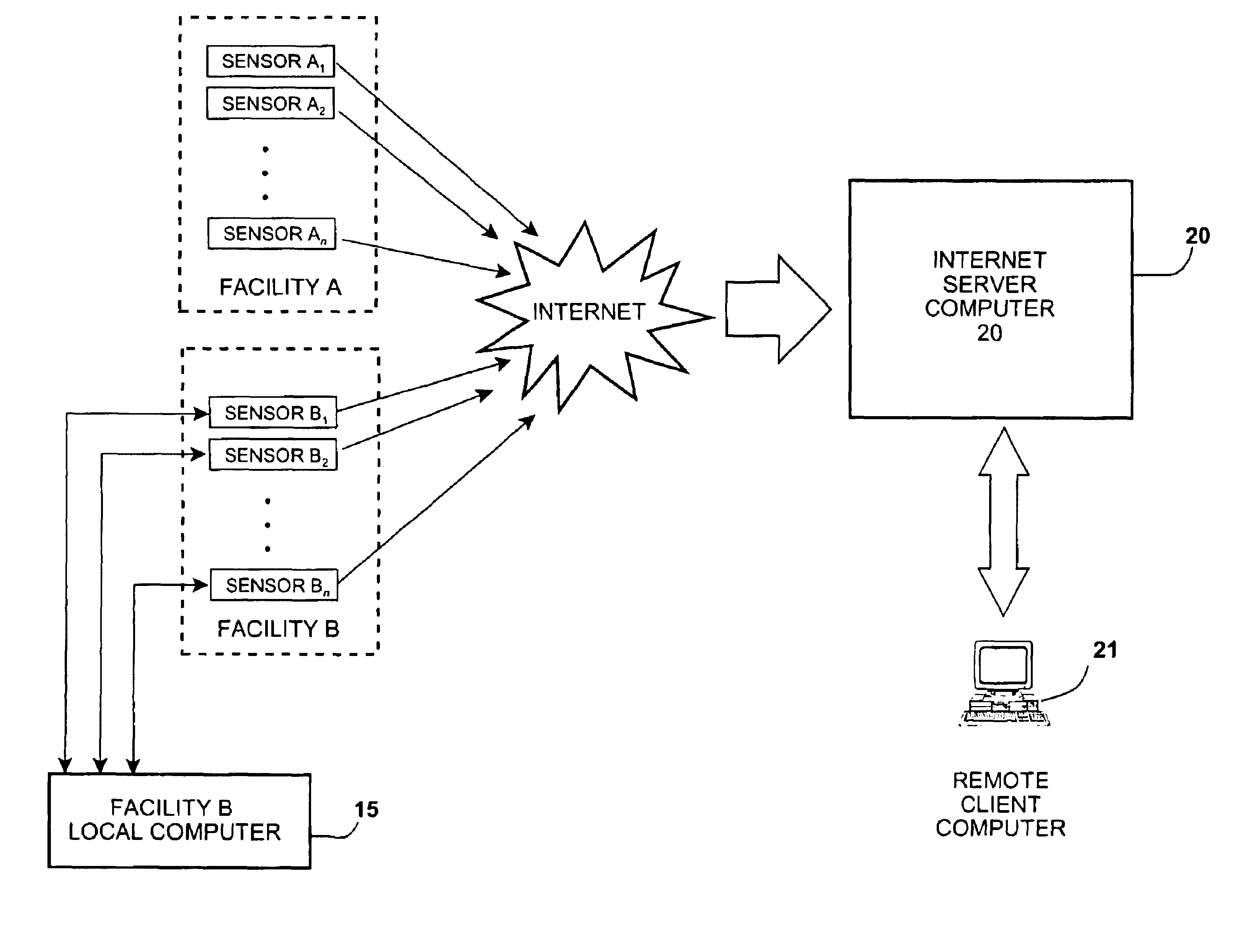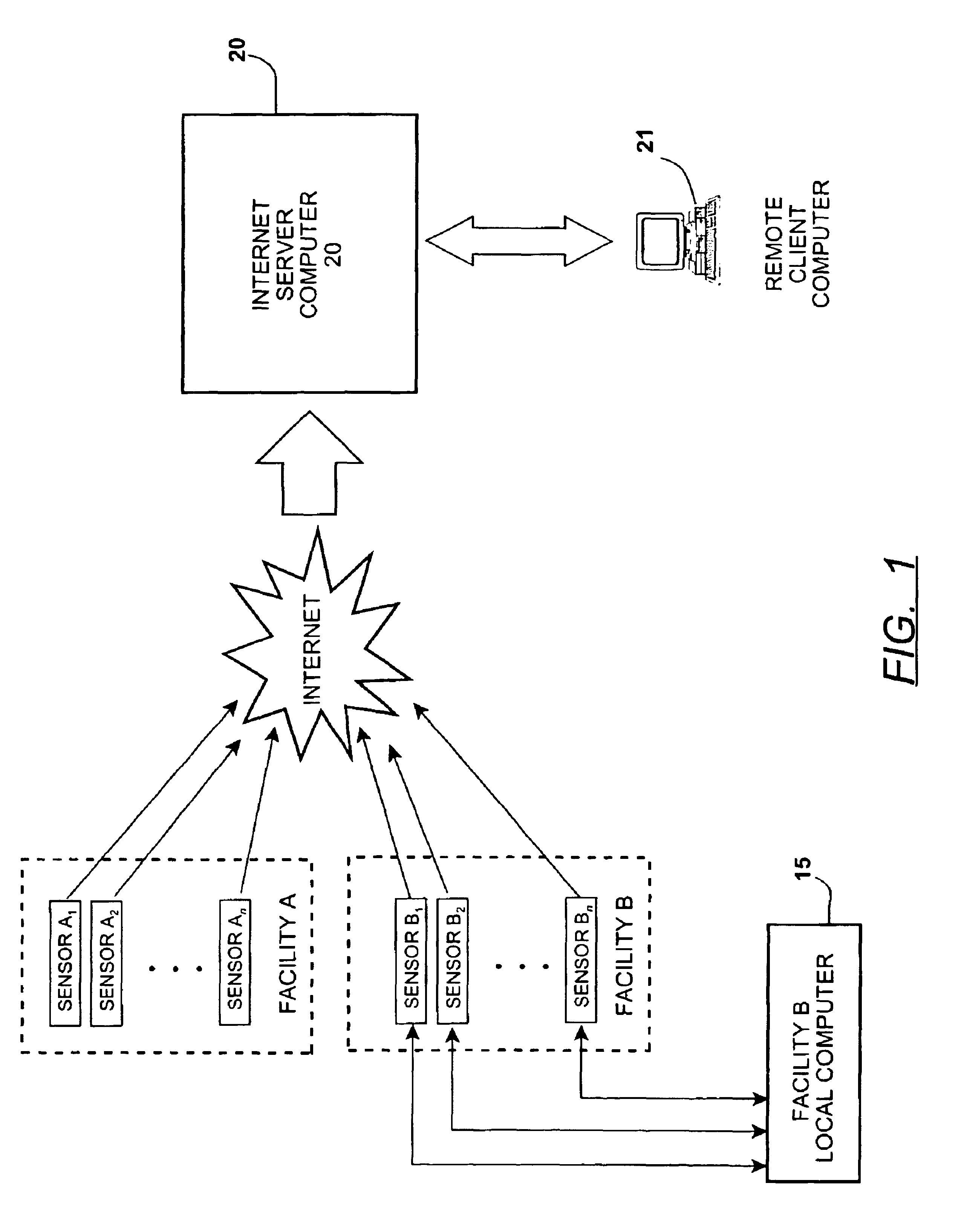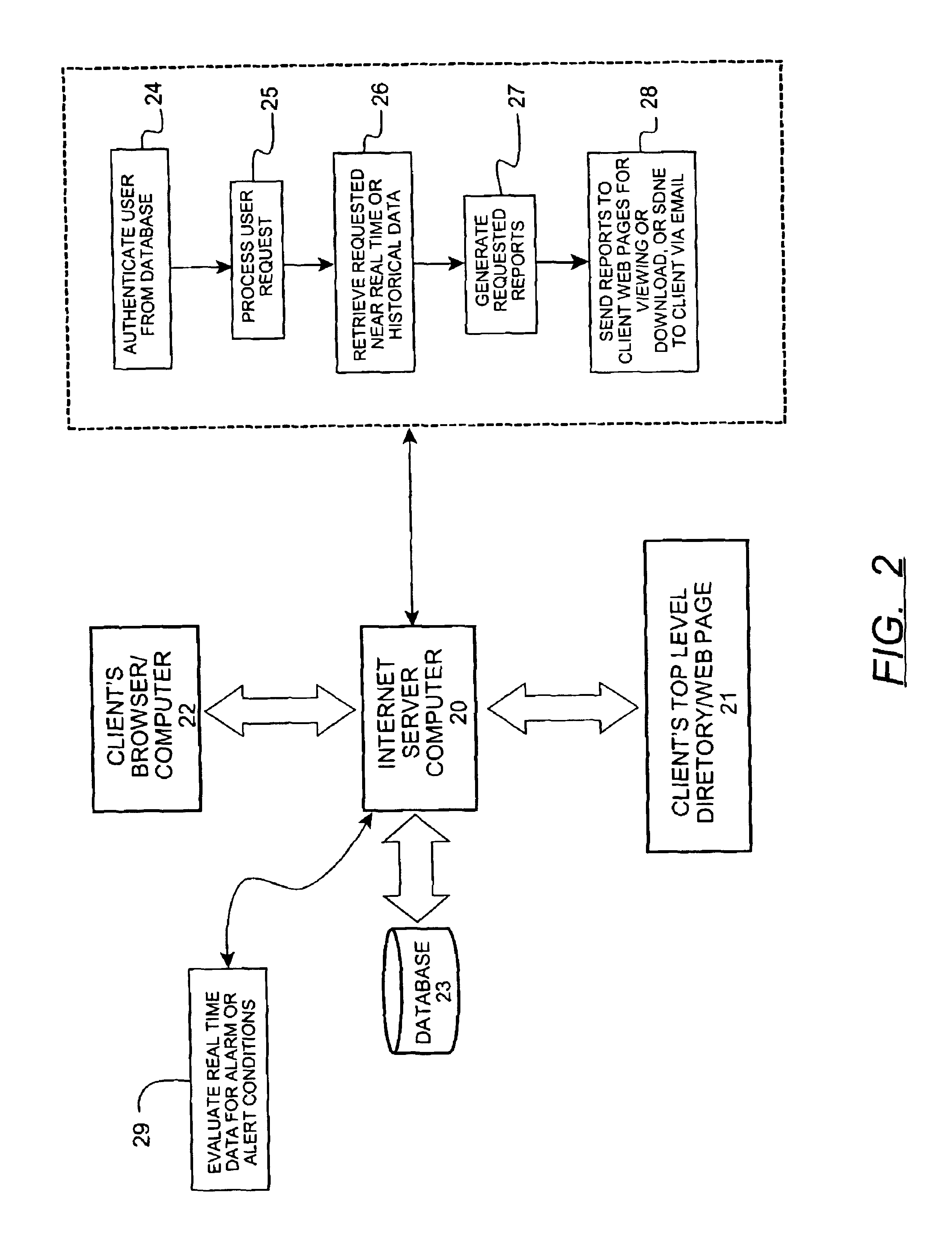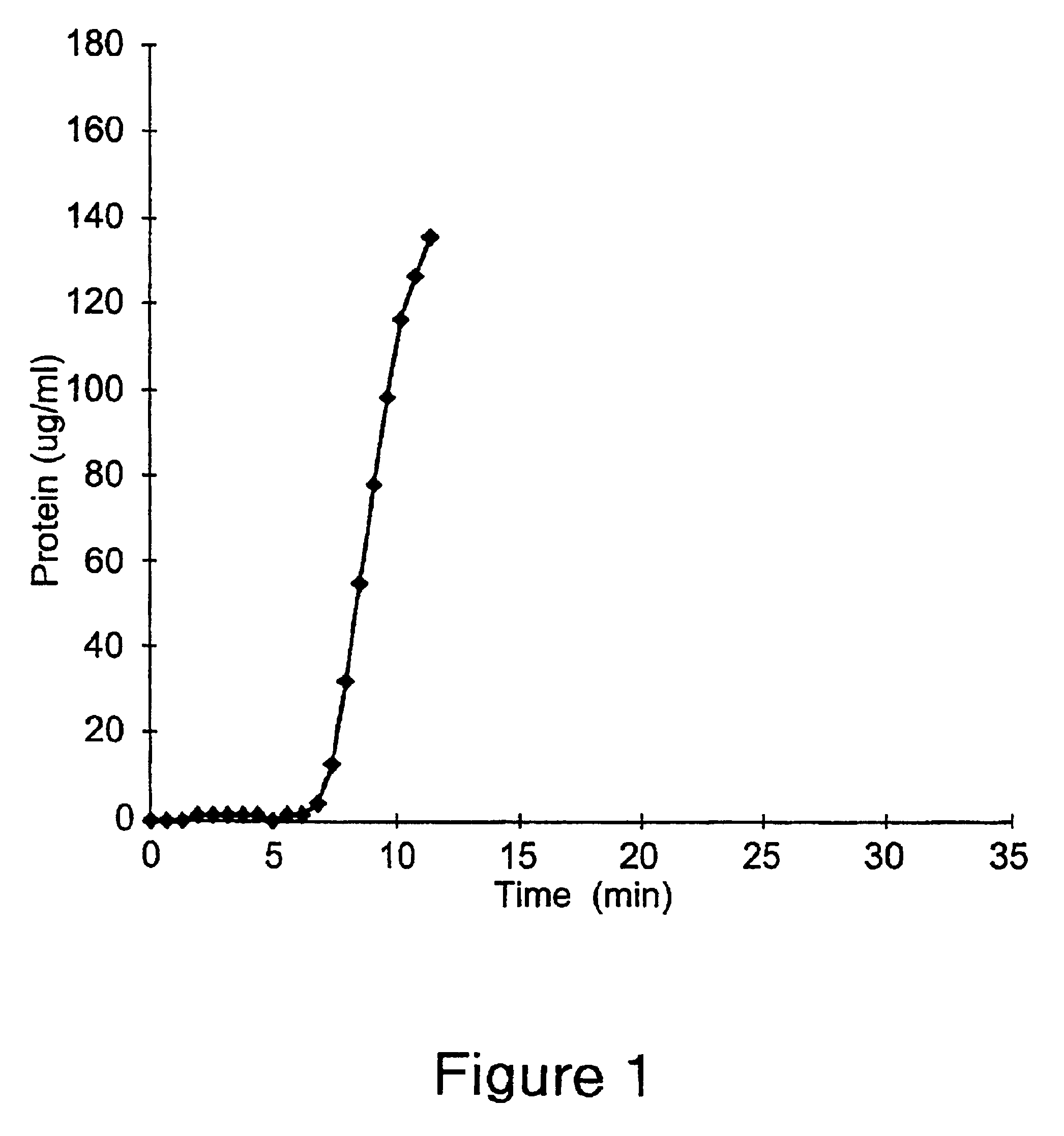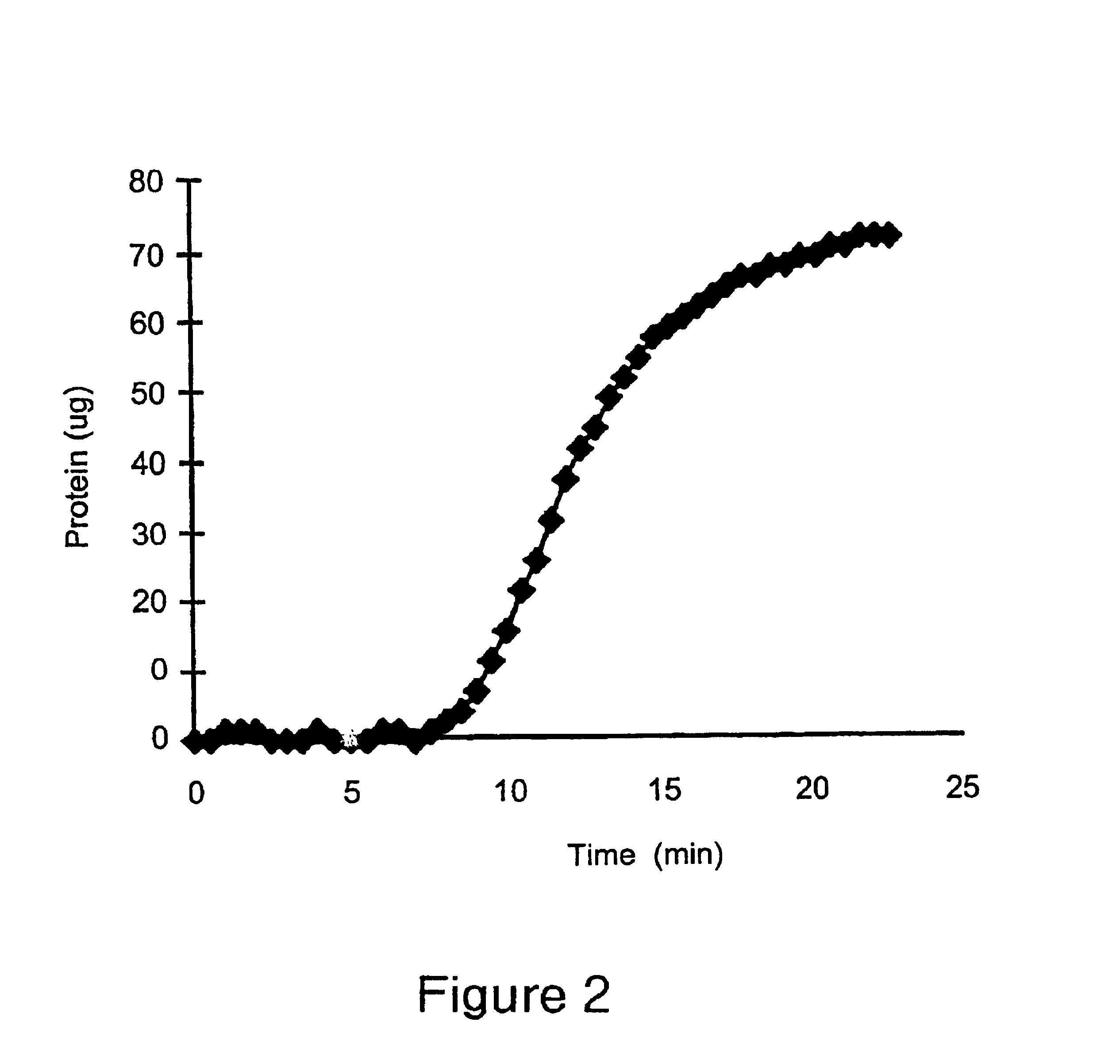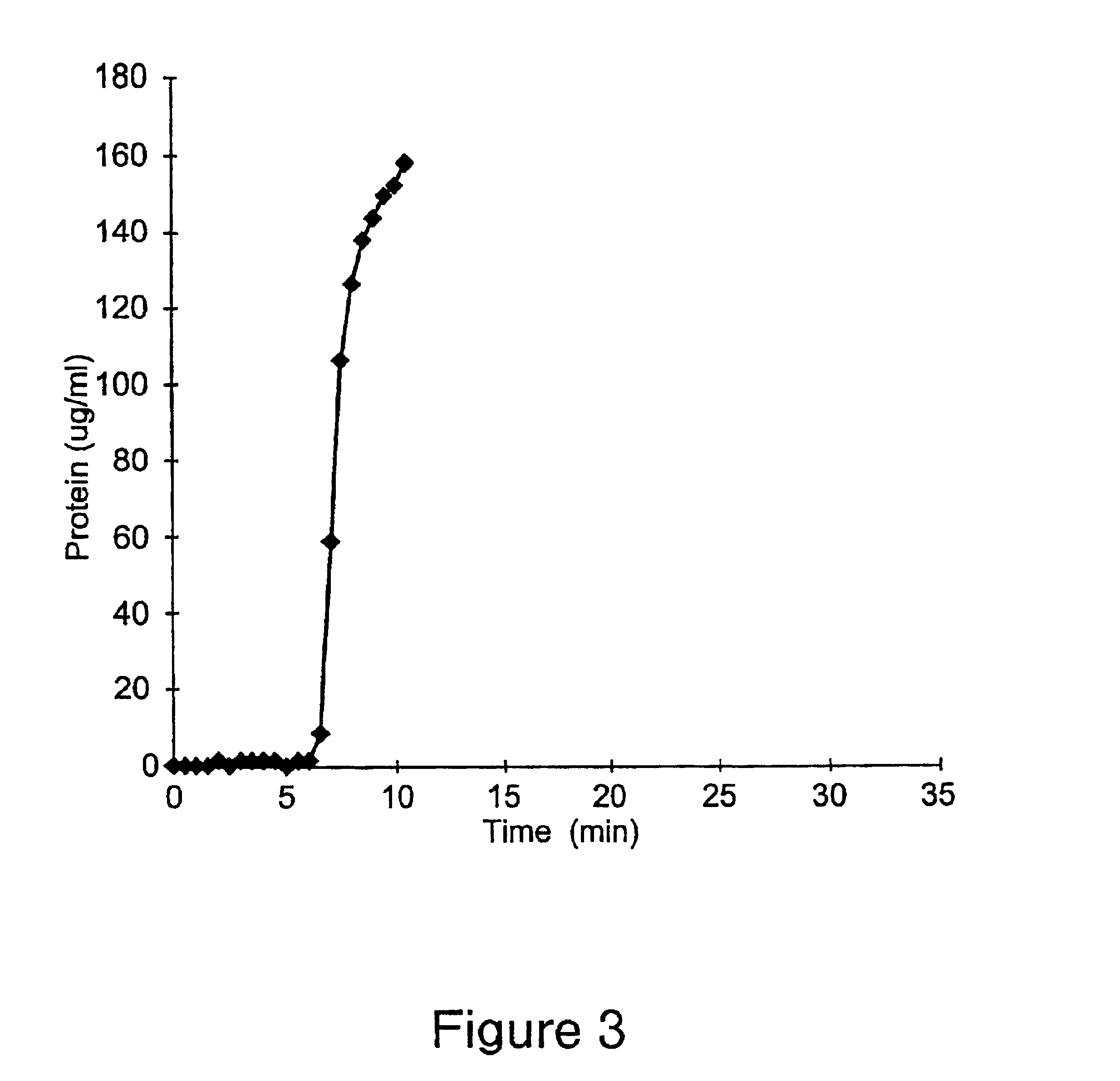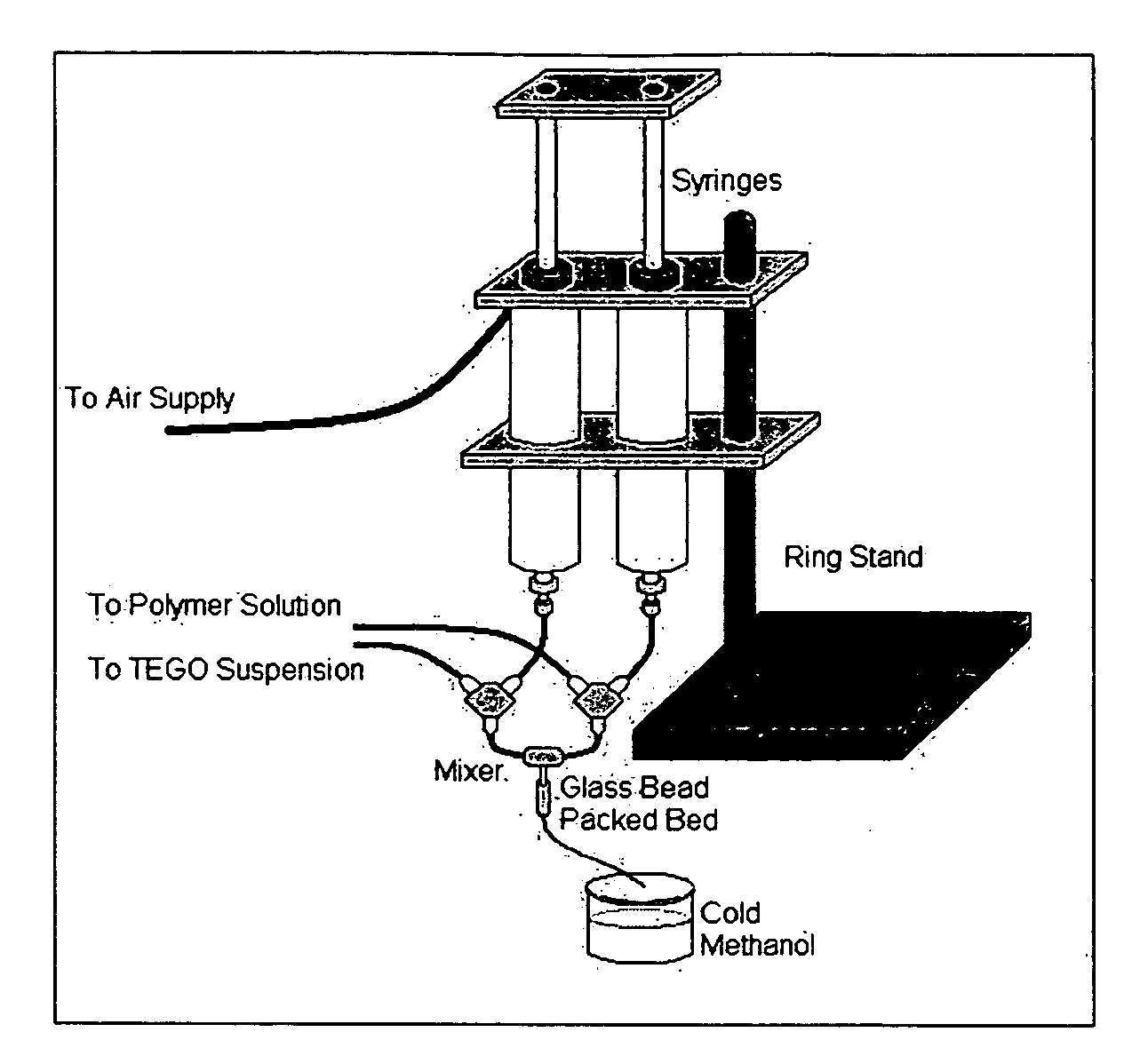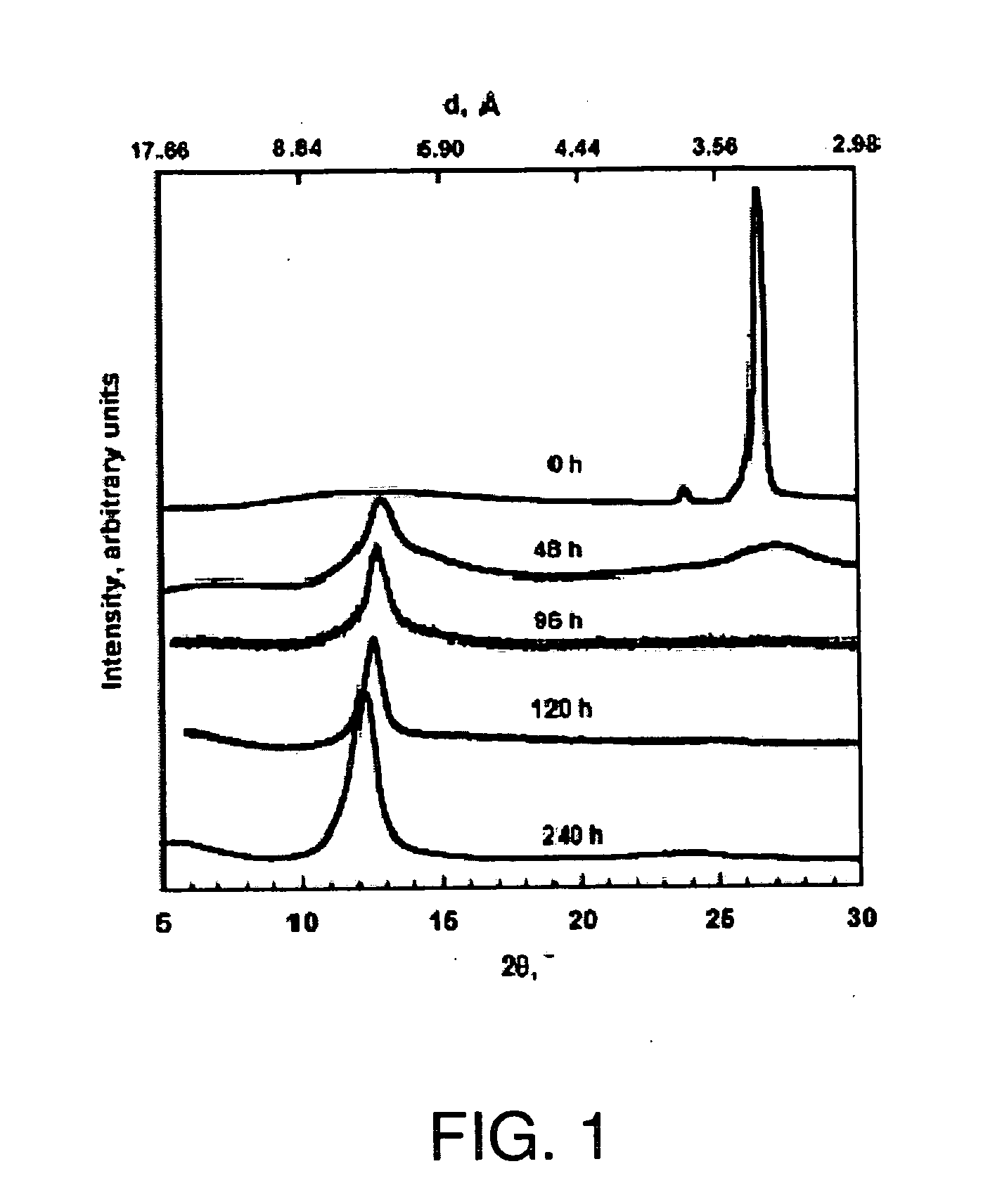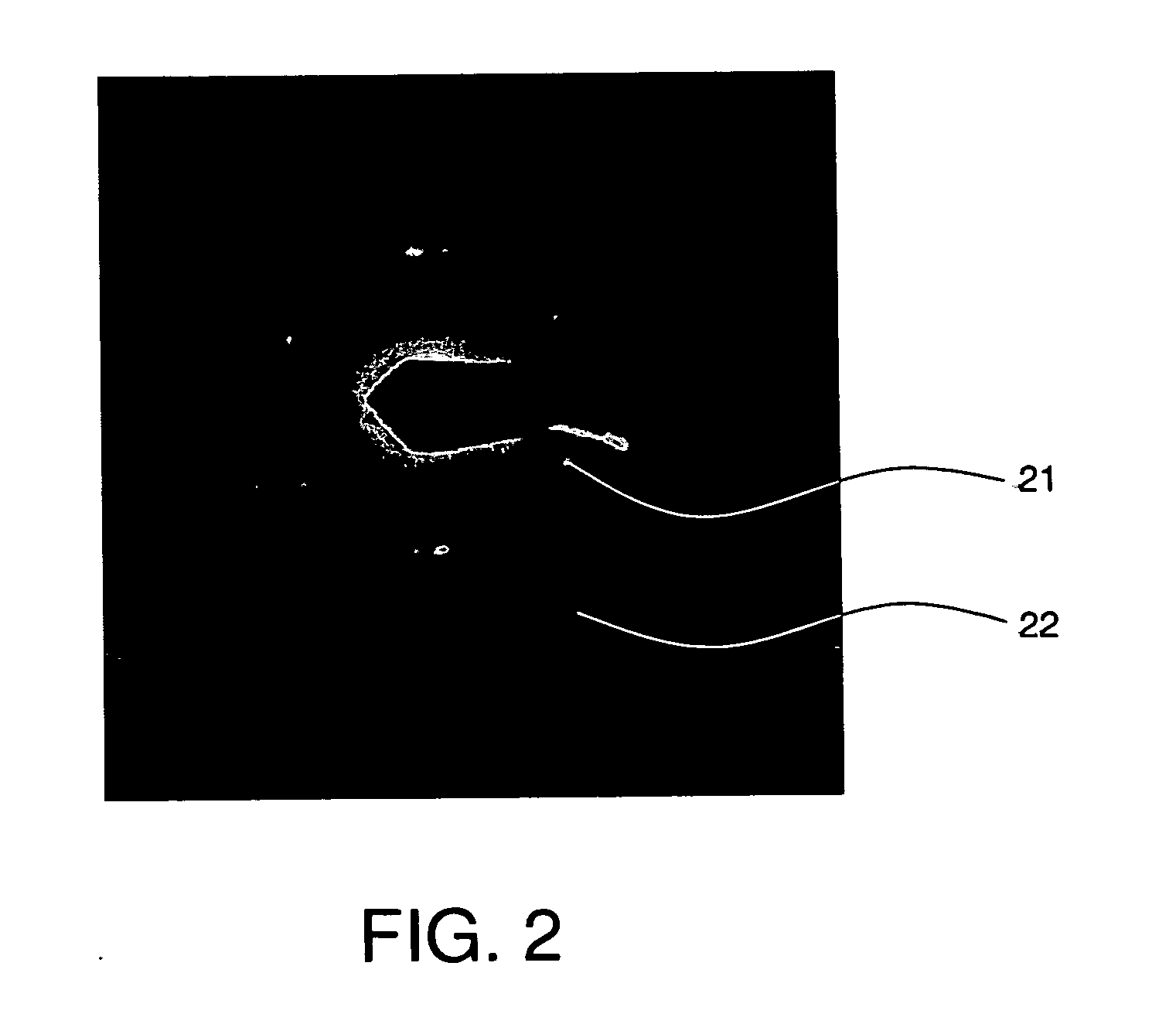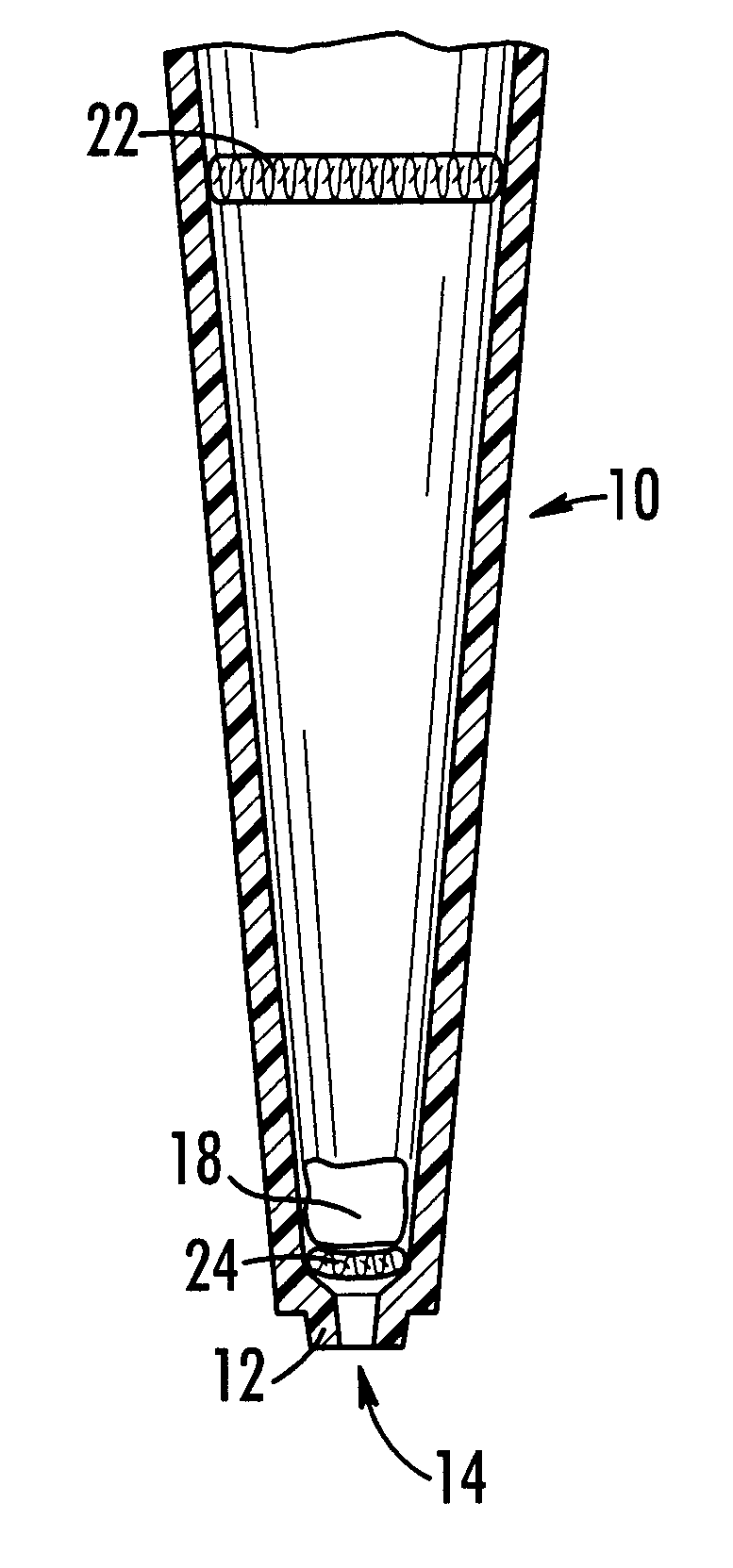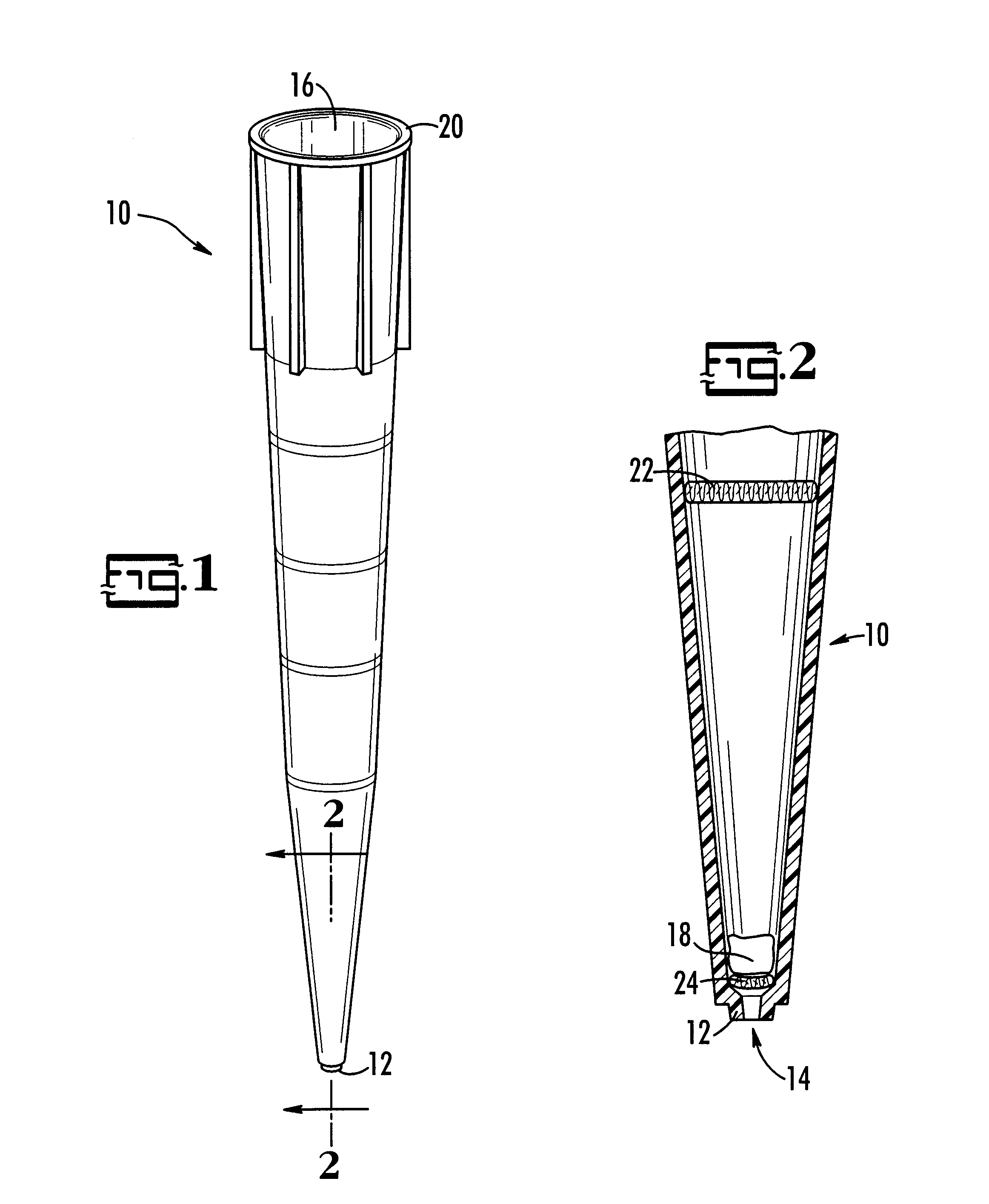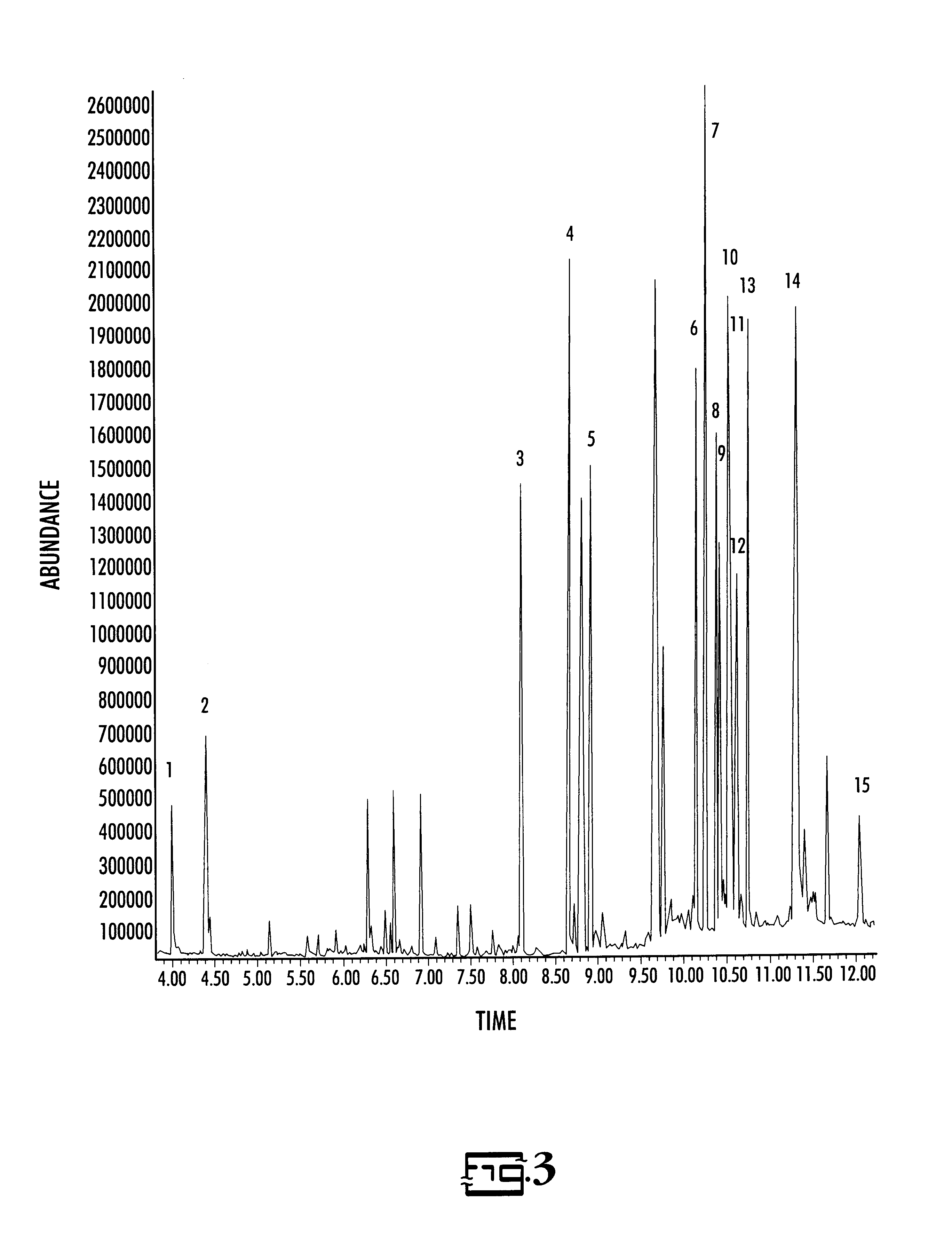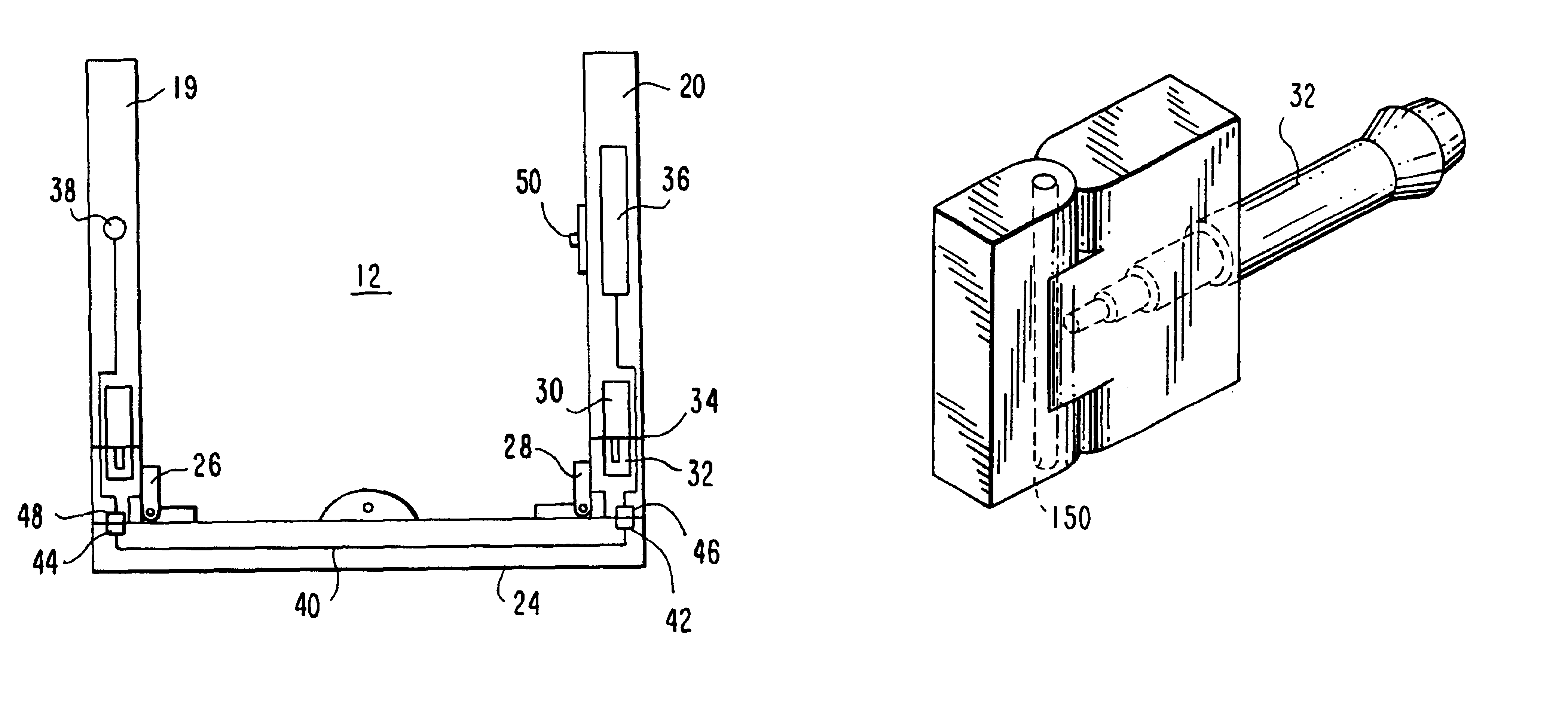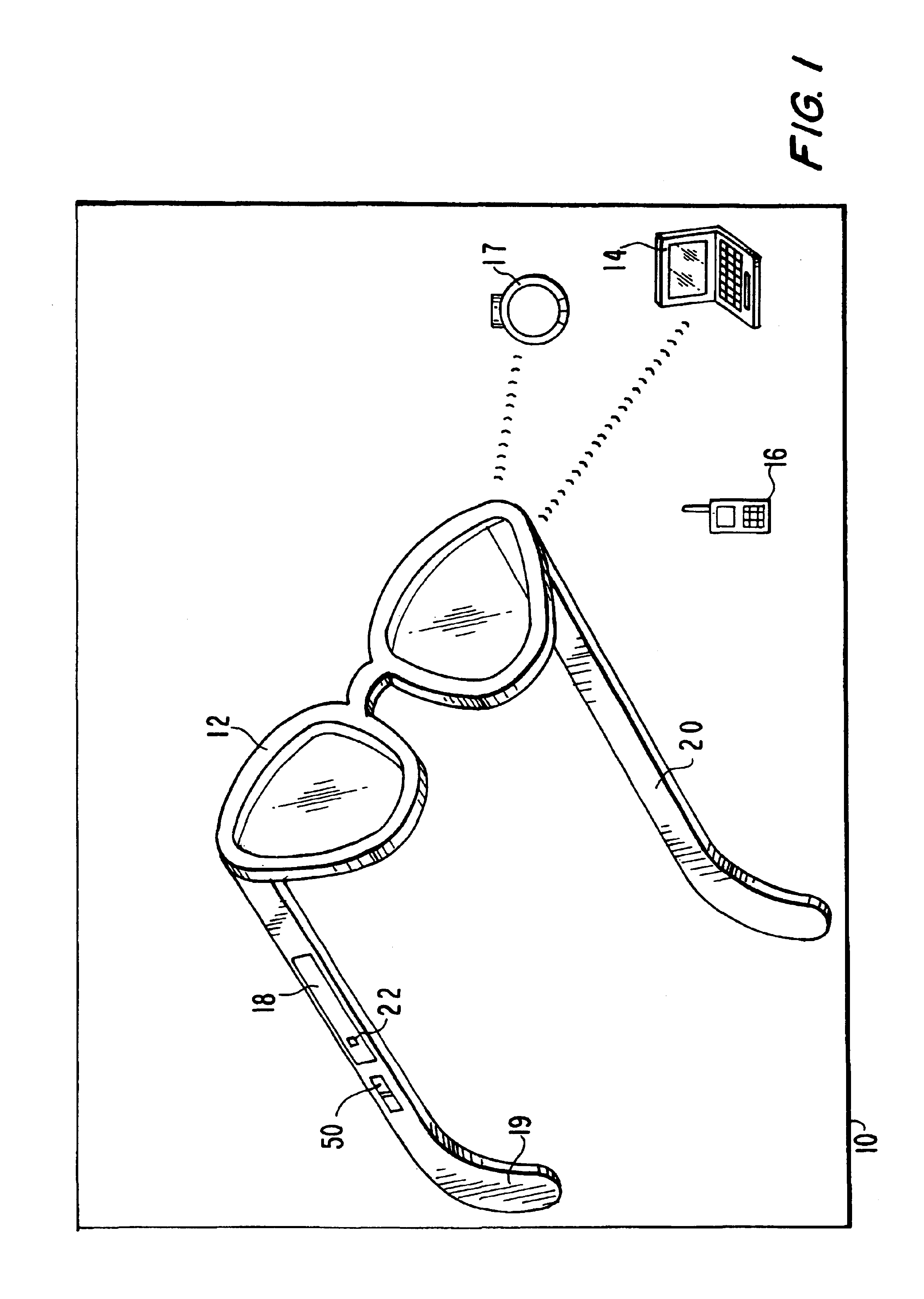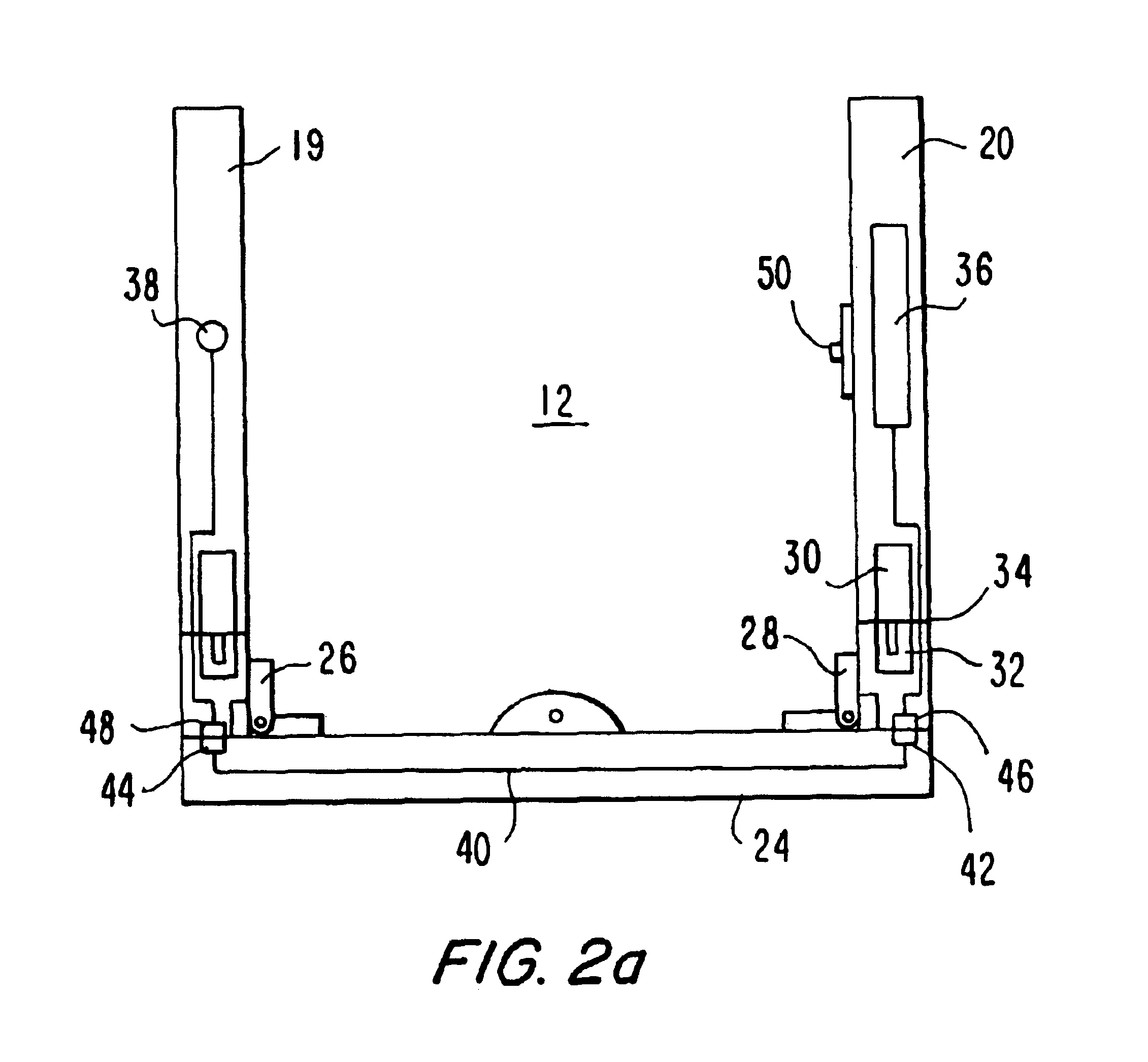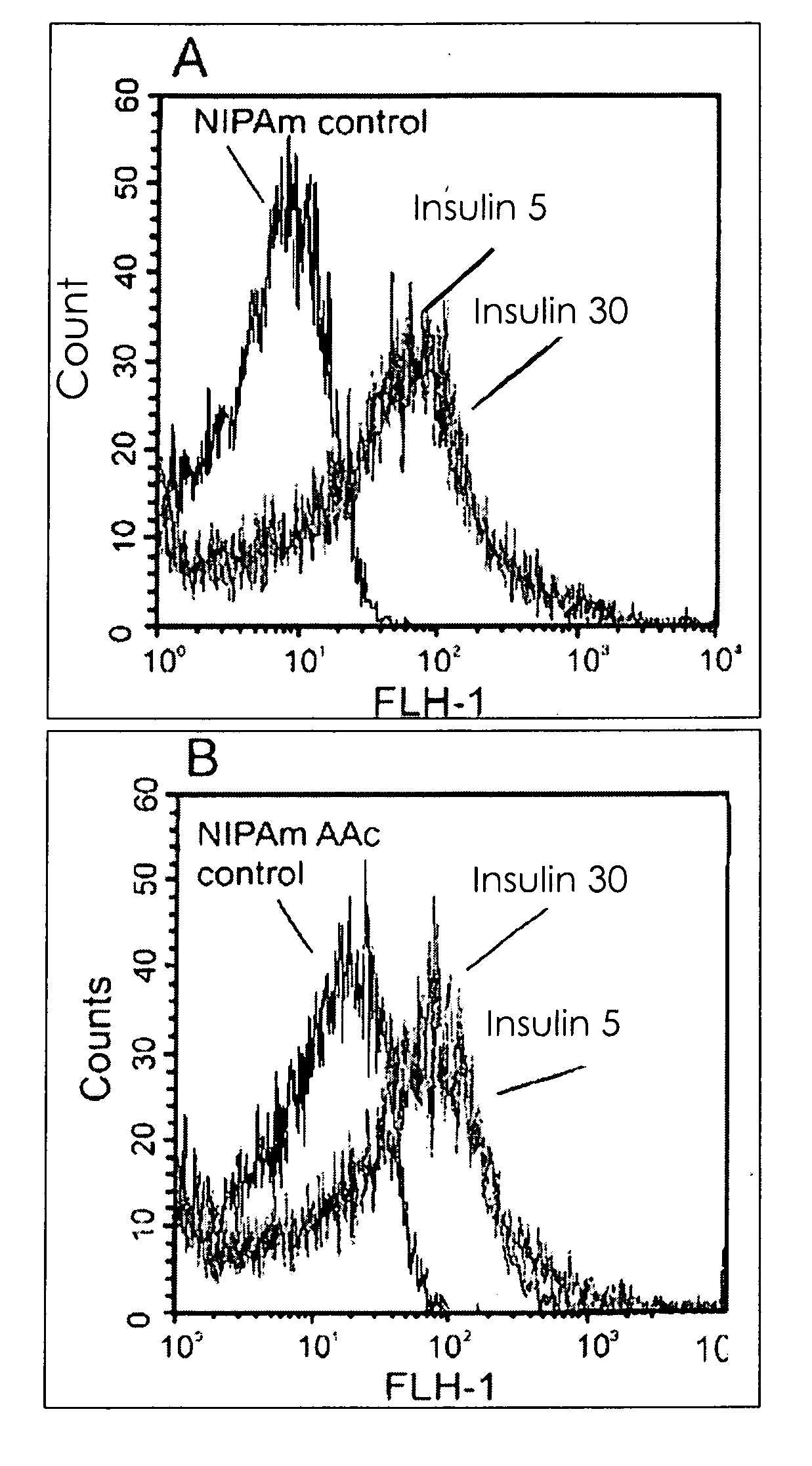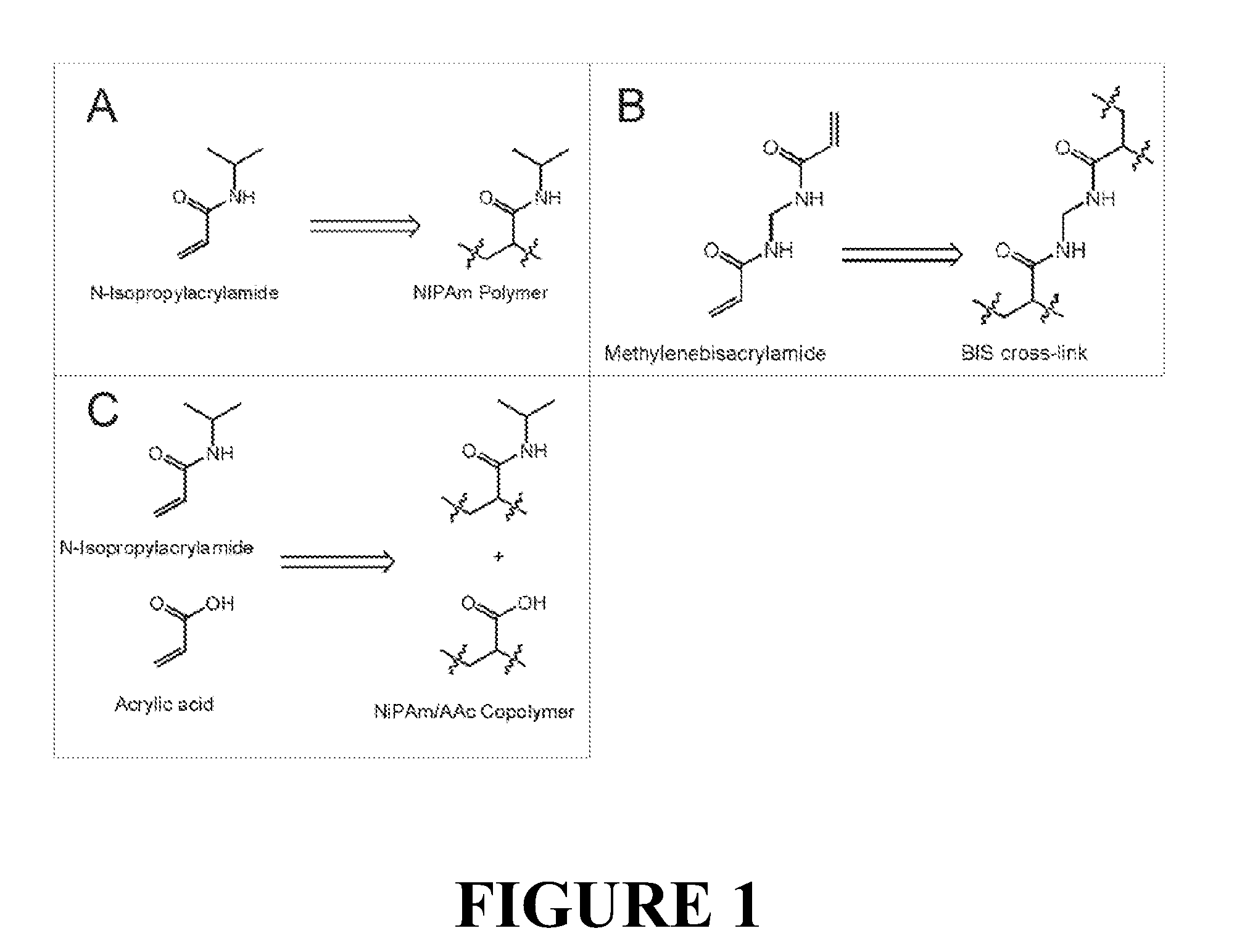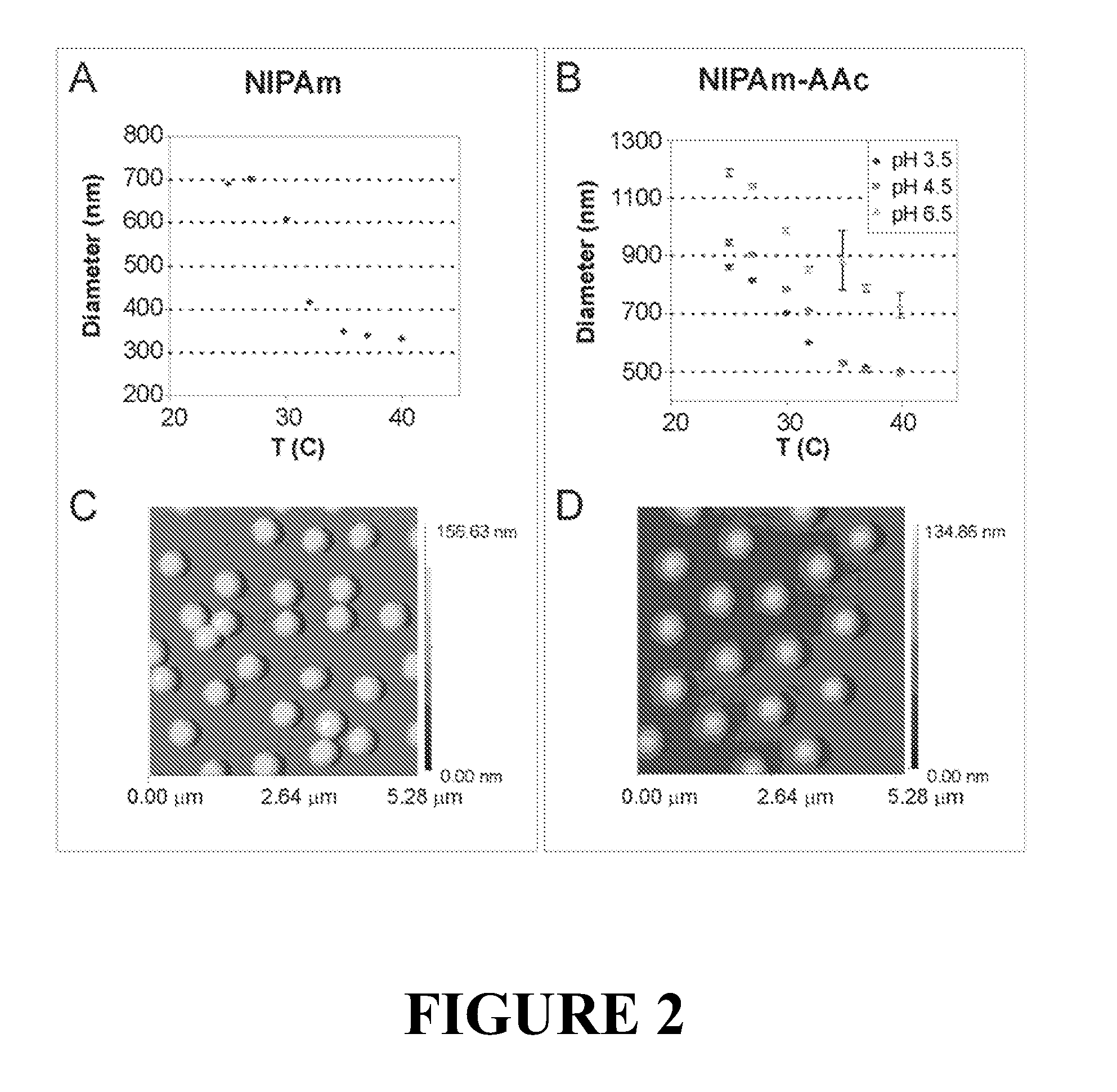Patents
Literature
11436results about "Solid sorbent liquid separation" patented technology
Efficacy Topic
Property
Owner
Technical Advancement
Application Domain
Technology Topic
Technology Field Word
Patent Country/Region
Patent Type
Patent Status
Application Year
Inventor
Support for high performance affinity chromatography and other uses
Multilayered particulate materials are formed by coating a particulate substrate with a metal and adsorbing an organic layer comprising a recognition moiety onto the metal film. The recognition moiety interacts with an analyte of interest allowing for its detection, purification, etc. Suitable recognition moieties can be selected from a range of species including, small molecules, polymers and biomolecules and the like. The novel particulate materials of the invention can be utilized in an array of methods including, ion-exchange, ion-selective ion-exchange, assays, affinity dialysis, size exclusion dialysis, as supports in solid phase synthesis, combinatorial synthesis and screening of compound libraries and the like.
Owner:RGT UNIV OF CALIFORNIA
Nanoparticles for manipulation of biopolymers and methods of thereof
InactiveUS20060177855A1Material nanotechnologyMicrobiological testing/measurementCrystallographyNanoparticle
Matrices for manipulation of biopolymers, including the separation, purification, bilization and archival storage of biopolymers is disclosed.
Owner:ARGYLLA TECH
Methods and systems for improved dosing of a chemical treatment, such as chlorine dioxide, into a fluid stream, such as a wastewater stream
InactiveUS6949196B2Reduce consumptionQuantity minimizationWater treatment parameter controlOther chemical processesChemical treatmentChlorine dioxide
The invention is directed to methods, apparatuses, and systems for treatment of a liquid flow comprising addition of a chemical treatment at at least two locations along a side stream of a main flow of said liquid, in which the dosing by such additions is sufficient to treat the entire main flow upon return of the side stream to the main flow. Algorithms are utilized to control the additions at the locations of addition of chemical treatments. In a typical embodiment, one chemical addition is principally proportional to the flow rate of the liquid flow, and the other chemical addition is principally adjusted based on signals from a primary measuring device that measures a parameter in the flow after one or both chemical additions. The addition of chlorine dioxide as the chemical treatment, to disinfect wastewater, is discussed.
Owner:FKOS LLC +1
Treating produced waters
InactiveUS20070102359A1Complicate purificationIncrease ratingsUltrafiltrationTreatment involving filtrationEmulsionUnit operation
The present invention is directed to various sets of unit operations for treating aqueous effluents and logic for designing and effecting the treatment. The unit operations include stabilization of subterranean waters, sequential oxidation steps to alter selected target materials, oxidation to break up emulsions prior to removal of the emulsion components, and intense oxidation to break up difficult-to-remove organic target materials.
Owner:HW PROCESS TECH
Filter cartridge assemblies and methods for filtering fluids
Filter cartridge assemblies and housings are provided and include a tubular housing having an inner wall, an outer wall, a first end, and a second end. The housings include inner walls with shoulders or other radially-inwardly extending flow directors at the intersections of adjacent sections of the tubular body. The assemblies include a plurality of filter media sections within the housing, and each of the plurality of filter media sections preferably has a different filter media composition. One or more of the filter media sections traverses one or more of the shoulders or other radially-inwardly extending flow directors such that the flow directors evenly direct the flow of fluid through the assembly. The assemblies find particular applicability in dialysis systems.
Owner:RENAL SOLUTIONS
Water treatment process for membranes
InactiveUS6416668B1Effective and safe and reliable to produceCapital and operating costMembranesUltrafiltrationZeta potentialFiltration
This invention discloses a cost-effective process for separating contaminants and a wide-range of fouling material from surface water, ground water and from industrial effluents. Having undergone effective pre-treatment, the water can be purified further by using high-surface area spirally wound micro-filtration (MF), ultra-filtration (UF), nano-filtration (NF) or reverse osmosis (RO) membranes. High-quality potable water free from pathogen and other contaminants is thus produced at low-cost from the pre-treated surface water and ground-water. Conversely, pre-treated industrial effluents are further purified at a relatively low-cost using NF or RO membranes, thus producing water suitable for recycle or surface discharge. The process of this invention uses cationic inorganic and / or polymeric flocculants to coagulate and flocculate the water-borne colloidal matter (e.g. clays, iron hydroxides, naturally occurring matter (NOM's), etc.), followed by filtration using a multi-media filter, charge neutralization and reversal and final filtration using a 5-micron cartridge filter. These pre-treatment steps provides a good quality water having a low Silt Density Index and a significant negative zeta potential, thereby ensuring against irreversible chemical fouling of the spirally-wound membranes.
Owner:AL SAMADI RIAD A
Methods and compositions for extraction and transesterification of biomass components
InactiveUS20090234146A1Fatty oils/acids recovery from wasteFatty acid esterificationTransesterificationBiofuel
Methods and compositions are disclosed for the direct transesterification and extraction of bio-lipids and bio-oils in the production of biofuel, particularly fatty acid methyl ester products.
Owner:UNIV OF HAWAII
Hemodialysis systems and methods
The present invention generally relates to hemodialysis and similar dialysis systems, including a variety of systems and methods that would make hemodialysis more efficient, easier, and / or more affordable. One aspect of the invention is generally directed to new fluid circuits for fluid flow. In one set of embodiments, a hemodialysis system may include a blood flow path and a dialysate flow path, where the dialysate flow path includes one or more of a balancing circuit, a mixing circuit, and / or a directing circuit. Preparation of dialysate by the preparation circuit, in some instances, may be decoupled from patient dialysis. In some cases, the circuits are defined, at least partially, within one or more cassettes, optionally interconnected with conduits, pumps, or the like. In one embodiment, the fluid circuit and / or the various fluid flow paths may be at least partially isolated, spatially and / or thermally, from electrical components of the hemodialysis system. In some cases, a gas supply may be provided in fluid communication with the dialysate flow path and / or the dialyzer that, when activated, is able to urge dialysate to pass through the dialyzer and urge blood in the blood flow path back to the patient. Such a system may be useful, for example, in certain emergency situations (e.g., a power failure) where it is desirable to return as much blood to the patient as possible. The hemodialysis system may also include, in another aspect of the invention, one or more fluid handling devices, such as pumps, valves, mixers, or the like, which can be actuated using a control fluid, such as air. In some cases, the control fluid may be delivered to the fluid handling devices using an external pump or other device, which may be detachable in certain instances. In one embodiment, one or more of the fluid handling devices may be generally rigid (e.g., having a spheroid shape), optionally with a diaphragm contained within the device, dividing it into first and second compartments.
Owner:DEKA PROD LLP
Water purifier and method of making and using the same
ActiveUS20050139530A1Fully removedGeneral water supply conservationTreatment involving filtrationHigh concentrationPurification methods
A method of producing safe drinking water from virtually any water source utilizing a water purification system is disclosed. The method includes a combination of water purification methods with a control system that evaluates water quality and functional processing parameters, such as pressure and flow. The control system determines what water processing methods to utilize and how most efficiently to operate them. The system is capable of treating highly contaminated water to the necessary degree to produce safe drinking water. Furthermore, the system regulates and cleans itself to maintain functionality despite receiving high concentrations of various contaminants from the feed water source.
Owner:HEISS CHRISTOPHER
Ethanol distillation process
InactiveUS7572353B1Shorten the timeLess rapidlyFermented solutions distillation/rectificationOrganic compound preparationDistillationEvaporation
Owner:ICM
Microfluidic Chemical Reaction Circuits
InactiveUS20080281090A1Shaking/oscillating/vibrating mixersTransportation and packagingChemical reactionCompound (substance)
Owner:CALIFORNIA INST OF TECH +3
Covalently Immobilized Enzyme and Method To Make The Same
ActiveUS20100078381A1Avoid disadvantagesRetain activityMembranesOther chemical processesPolymerMacromolecule
A composition of enzyme, polymer, and crosslinker forms a network of covalently bound macromolecules. The covalently immobilized enzyme preparation has enzymatic activity, and retains stable activity when dried and stored at ambient conditions. Methods for preparing an immobilized enzyme and methods for using the enzyme are disclosed.
Owner:FRESENIUS MEDICAL CARE HLDG INC
Method and composition for removing uremic toxins in dialysis processes
ActiveUS7241272B2Improved dialysis procedureReduce impurityOther chemical processesOther blood circulation devicesToxinUrease
Owner:BAXTER INT INC
Osmotic desalination process
InactiveUS20050145568A1High yieldImprove concentrationSolvent extractionGeneral water supply conservationPresent methodDesalination
An energy efficient desalination process that does not produce waste products involves the extraction of water from a first solution, such as seawater, by using a second concentrated solution to draw the water from the first solution across a semi-permeable membrane. By manipulating the equilibrium of the soluble and insoluble species of solute within the second solution in favor of the soluble species of the solute, a saturated second solution can be used to generate osmotic pressure on the first solution. Also, by adjusting the equilibrium in favor of the less soluble species after the water has been drawn from the first solution, a portion of the solute can easily be precipitated out. Heating the second solution decomposes the solute into its constituent gasses. The constituent gasses and precipitated solute may be recycled through the process to affect the changes in equilibrium and eliminate waste products. Additionally, by using the waste steam from industrial sources and a heat pump to effectively distribute heat through the present method, the present method exhibits greater energy efficiency than prior art methods.
Owner:YALE UNIV
Membranes with controlled permeability to polar and apolar molecules in solution and methods of making same
A membrane for use in an implantable glucose sensor including at least one crosslinked substantially hydrophobic polymer and at least one crosslinked substantially hydrophilic polymer; wherein the first and second polymers are different polymers and substantially form an interpenetrating polymer network, semi- interpenetrating polymer network, polymer blend, or copolymer. The membranes are generally characterized by providing a permeability ratio of oxygen to glucose of about 1 to about 1000 in units of (mg / dl glucose) per (mmHg oxygen). Three methods of making membranes from hydrophobic and hydrophilic monomers formed into polymer networks are provided, wherein according to at least two of the methods, the monomers may be substantially immiscible with one another.
Owner:RGT UNIV OF CALIFORNIA
Sorbent composition, process for producing same and use in desulfurization
A particulate adsorbent composition comprising a mixture of zinc oxide, silica, alumina and substantially reduced valence cobalt for use in desulfurizing a cracked gasoline or diesel fuel feed stream in a desulfurization zone by: The desulfurization zone contacts the feed stream, then separates the resulting low sulfur content stream and the sulfurized adsorbent, regenerates and activates the separated adsorbent, and then returns to the desulfurization zone.
Owner:CHINA PETROLEUM & CHEM CORP
Superabsorbent surface-treated carboxyalkylated polysaccharides and process for producing same
Owner:ARCHER DANIELS MIDLAND CO
Point-of-use water purification system with a cascade ion exchange option
InactiveUS6080313AHigh purityEasy to install and replaceSolid sorbent liquid separationLoose filtering material filtersFiltrationIon exchange
A modular water treatment and purification system, suitable for home use, is connected to a water supply and contains a closed fluid treatment circuit extending to a water outlet. The closed fluid circuit flows through a plurality of replaceable water treatment modules each having a specific water treatment function, such as the removal of a particular material from the water by the use of filtration, carbon adsorption, ion exchange or the addition of a chemical to balance the desired water conditions. Preferably the circuit also includes traversing a radiation device, for example an ultra violet light, for the purpose of sanitizing the water.
Owner:KELADA MAHER I
Method for Preparing Flavorful and Aromatic Compounds
InactiveUS20100037903A1Add flavorIncrease aromaTobacco treatmentSolid sorbent liquid separationMaillard reactionPyrazine
The invention provides a method of preparing a purified, pyrazine-containing aqueous composition by mixing a reducing sugar, a base, and an amino acid in water to produce a mixture; heating the mixture for a time and under conditions conducive to Maillard reactions such that a flavorful and aromatic aqueous solution is formed, the aqueous solution comprising a plurality of pyrazines and a first 4-methylimidazole concentration; distilling the aqueous solution to produce an aqueous distillate comprising a plurality of pyrazines and having a second 4-methylimidazole concentration lower than the first 4-methylimidazole concentration; and collecting the aqueous distillate. The invention also includes flavorful and aromatic aqueous compositions formed by this inventive method, as well as tobacco products (e.g., smokable materials, smoking articles, and smokeless tobacco) incorporating the flavorful and aromatic composition.
Owner:R J REYNOLDS TOBACCO COMPANY
Reduction of migration shift assay interference
ActiveUS20050170362A1Easy to separateReduce distractionsComponent separationMicrobiological testing/measurementHigh concentrationAssay
This invention provides methods and compositions, e.g., to reduce interference from non-specific binding sample constituents in a migration shift assay. Interference due to non-specific binding of sample constituents to an affinity substance (e.g., an affinity molecule or a conjugate of an affinity molecule and a charged carrier molecule) is prevented by, e.g., binding the constituents to charged polymers such as heparin sulfate. The present invention also provides methods to concentrate an analyte of interest with high concentration and to detect the analyte with high sensitivity, and further to optimize the reaction conditions for easily concentrating the analyte. Such objects of the present invention are attained, for example, by concentrating a complex of the analyte and a conjugate which is formed by contacting the analyte in a sample with an affinity molecule bound to a charged carrier molecule such as DNA.
Owner:CAPLIPER LIFE SCI INC +1
Method for continuous particle separation using obstacle arrays asymmetrically aligned to fields
The present invention relates to methods and devices for separating particles according to size. More specifically, the present invention relates to a microfluidic method and device for the separation of particles according to size using an array comprising a network of gaps, wherein the field flux from each gap divides unequally into subsequent gaps. In one embodiment, the array comprises an ordered array of obstacles in a microfluidic channel, in which the obstacle array is asymmetric with respect to the direction of an applied field.
Owner:THE TRUSTEES FOR PRINCETON UNIV
Zirconium Phosphate Particles Having Improved Adsorption Capacity and Method Of Synthesizing The Same
InactiveUS20100084330A1Avoid disadvantagesHigh porosityPhosphatesDialysis systemsPhosphoric acidOxygen
Zirconium phosphate particles are synthesized by providing a solution of zirconium oxychloride in an aqueous solvent, adding at least one low molecular weight, oxygen containing, monofunctional, organic additive to the solution, and combining this solution with heated phosphoric acid or a phosphoric acid salt to obtain zirconium phosphate particles by sol gel precipitation.
Owner:FRESENIUS MEDICAL CARE HLDG INC
Flow system of a dialysis device and a portable dialysis device
ActiveUS20110184340A1Prevent leakagePrevent spillageSolid sorbent liquid separationAnion exchangersCatheterPeritoneal cavity
There is provided a flow system of a dialysis device including a dialysate conduit which is capable of being in fluid communication with the peritoneal cavity of a patient's body and of being in fluid communication with a flow path, the flow path allowing dialysate to flow from a patient's body to a sorbent capable of removing contaminants within the dialysate in an outflow mode and in an inflow mode returning the dialysate substantially free of contaminants to the patient's body. The device also includes a pump for moving the dialysate along the flow path in both the outflow mode and inflow mode and a plurality of valves disposed along the flow path. There is also provided a portable dialysis device.
Owner:TEMASEK POLYTECHNIC
Method for remote monitoring of water treatment systems
InactiveUS6954701B2Rule out the possibilityNegating human error or tamperingUltrafiltrationSolid sorbent liquid separationWater treatment systemQuality assurance
A method of monitoring the daily operating performance parameters for water treatment processes through the collection of localized data. The data is manipulated to generate preconfigured performance, maintenance, and quality assurance reports and further provide automatic submission of data as required for regulatory review of certain water treatment systems such as potable water treatment. The data is collected from sensors located at an equipment site and transferred to a remote computer located by use of the Internet, further all data received and used for generation of reports is also accessible by Internet connection and be delivered directly to the regulatory agency without additional process.
Owner:WATEREYE +1
Positively charged membrane
InactiveUS6780327B1High rateHigh charge densityCation exchanger materialsIon-exchanger regenerationPorous substrateFiltration
The present invention provides a positively charged microporous membrane having a protein binding capacity about 25 mg / ml or greater comprising a hydrophilic porous substrate and a crosslinked coating that provides a fixed positive charge to the membrane. The present invention further provides a positively charged microporous membrane comprising a porous substrate and a crosslinked coating comprising pendant cationic groups. The membranes of the present invention find use in a variety of applications including ion-exchange chromatography, macromolecular transfer, as well as detection, filtration and purification of biomolecules such as proteins, nucleic acids, endotoxins, and the like.
Owner:PALL CORP
Functional graphene-polymer nanocomposites for gas barrier applications
InactiveUS20100096595A1Excellent gas barrier performanceImprove suppression propertiesMaterial nanotechnologyNanostructure manufactureNano compositesX-ray
Owner:THE TRUSTEES FOR PRINCETON UNIV
Disposable pipette extraction
Owner:BREWER WILLIAM E
Eyewear with exchangeable temples housing bluetooth enable apparatus
InactiveUS6929365B2Increase power consumptionSmall sizeComponent separationFramesTransceiverHand held
A wireless ad hoc pico network is formed by eyewear and other devices such as a computer, a bracelet and a telephone having similar transceivers mounted on them. Master slave relationships are configurable. Other devices, such as a radio, a CD player, a hand held global positioning satellite system and a heart rate monitor, having similar transceivers, can also be connected with the transceiver of the eyewear. The transceivers operate on globally available, unlicensed radio band, 2.45 gigahertz (GHz) and conforms to the Bluetooth standard. The power consumption of Bluetooth enabled devices is less than three percent of the power consumption of a mobile phone. The eyewear includes a frame and connected to the frame are two temples. Temples are connected to frame via hinges. Temples have a male portion of a connector incorporated in them. Female portion of the connector is made integral with the hinges. When the male portion is inserted in the female portion the temple is attached to the frame. The temples can be removed by pulling the connector apart, and a temple with different apparatus within it can be inserted in place of the removed temples. The temple may have co-molded within its body, an apparatus such as an audio device, a camera, a speaker, and a microphone, and a display device such as liquid crystal or an alarm. In another embodiment, eyewear constitutes a distance alarm to monitor the movement of, for example, a child. A device in form of, for example, a bracelet is worn by the child. The transceivers in the eyewear and the bracelet form a small-range wireless network, i.e., piconet, wherein the eyewear and the bracelet communicate using signals conforming to the Bluetooth technology. The transceiver in the eyewear is configured to generate an alarm when the bracelet exceeds a predetermined distance from eyewear.
Owner:III HLDG 4
Smart hydrogel particles for biomarker harvesting
ActiveUS20090148961A1Bioreactor/fermenter combinationsBiological substance pretreatmentsAnalyteSmart hydrogels
Capture particles for harvesting analytes from solution and methods for using them are described. The capture particles are made up of a polymeric matrix having pore size that allows for the analytes to enter the capture particles. The pore size of the capture particles may be changeable upon application of a stimulus to the particles, allowing the pore size of the particles to be changed so that analytes of interest remain sequestered inside the particles. The polymeric matrix of the capture particles may be made of co-polymeric materials having a structural monomer and an affinity monomer, the affinity monomer having properties that attract the analyte to the capture particle. The capture particles may be used to isolate and identify analytes present in a mixture. They may also be used to protect analytes which are typically subject to degradation upon harvesting and to concentrate low an analyte in low abundance in a fluid.
Owner:INST SUPERIORE DI SANITA +1
Isolation of proteins
InactiveUS20050176122A1Other chemical processesSolid sorbent liquid separationSpecial classCarboxylic acid
Owner:UPFRONT CHROMATOGRAPHY
Popular searches
Features
- R&D
- Intellectual Property
- Life Sciences
- Materials
- Tech Scout
Why Patsnap Eureka
- Unparalleled Data Quality
- Higher Quality Content
- 60% Fewer Hallucinations
Social media
Patsnap Eureka Blog
Learn More Browse by: Latest US Patents, China's latest patents, Technical Efficacy Thesaurus, Application Domain, Technology Topic, Popular Technical Reports.
© 2025 PatSnap. All rights reserved.Legal|Privacy policy|Modern Slavery Act Transparency Statement|Sitemap|About US| Contact US: help@patsnap.com
